2025-07-14 20:17:00
Diana Engelmann
Filip Shatlan
Gainesville, Florida , United States
United States
NOAA-15
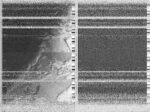
2025-07-14 23:18:00
Foto Colectania
Hangar
Ràdio Web MACBA
Barcelona, Spain
Spain
NOAA-19

2025-07-14 11:19:00
Zack Wettstein
Seattle, United States
United States
NOAA-19
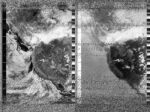
2025-07-14 20:05:00
Svalbard
Longyearbyen, Svalbard
Svalbard
NOAA-19

2025-07-14 12:24:00
Diana Engelmann
Filip Shatlan
Gainesville, Florida , United States
United States
NOAA-18

2025-07-14 21:21:00
Oppressive Heat Project
Phnom Penh, Cambodia
Cambodia
NOAA-19
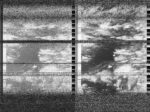
2025-07-14 09:03:00
Maufox
Mauritius, Mauritius
Mauritius
NOAA-19

2025-07-13 23:56:00
Diana Engelmann
Filip Shatlan
Gainesville, Florida , United States
United States
NOAA-18

2025-07-13 19:30:00
Zack Wettstein
Seattle, United States
United States
NOAA-15
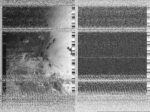
2025-07-13 12:37:00
Diana Engelmann
Filip Shatlan
Gainesville, Florida , United States
United States
NOAA-18

2025-07-13 11:08:00
Gilboa, New York
Gilboa, New York, United States
United States
NOAA-19
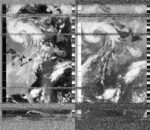
2025-07-13 16:54:00
Svalbard
Longyearbyen, Svalbard
Svalbard
NOAA-15

2025-07-13 12:04:00
Foto Colectania
Hangar
Ràdio Web MACBA
Barcelona, Spain
Spain
NOAA-19

2025-07-13 09:16:00
Maufox
Mauritius, Mauritius
Mauritius
NOAA-19

2025-07-12 22:45:00
Diana Engelmann
Filip Shatlan
Gainesville, Florida , United States
United States
NOAA-19
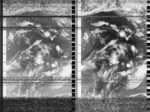
2025-07-13 07:08:00
Oppressive Heat Project
Phnom Penh, Cambodia
Cambodia
NOAA-15
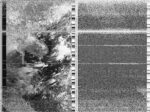
2025-07-12 19:32:00
Gilboa, New York
Gilboa, New York, United States
United States
NOAA-15
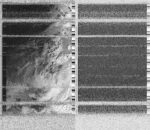
2025-07-12 11:44:00
Zack Wettstein
Seattle, United States
United States
NOAA-19
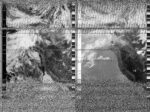
2025-07-12 11:25:00
Diana Engelmann
Filip Shatlan
Gainesville, Florida , United States
United States
NOAA-19
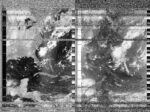
2025-07-12 21:46:00
Oppressive Heat Project
Phnom Penh, Cambodia
Cambodia
NOAA-19
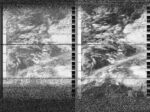
2025-07-12 13:48:00
Svalbard
Longyearbyen, Svalbard
Svalbard
NOAA-19

2025-07-12 12:17:00
Foto Colectania
Hangar
Ràdio Web MACBA
Barcelona, Spain
Spain
NOAA-19

2025-07-12 09:28:00
Maufox
Mauritius, Mauritius
Mauritius
NOAA-19

2025-07-11 22:57:00
Diana Engelmann
Filip Shatlan
Gainesville, Florida , United States
United States
NOAA-19
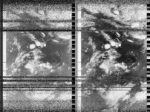
2025-07-11 08:59:00
Zack Wettstein
Seattle, United States
United States
NOAA-15
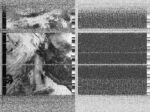
2025-07-11 11:38:00
Diana Engelmann
Filip Shatlan
Gainesville, Florida , United States
United States
NOAA-19
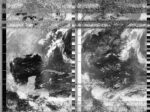
2025-07-11 08:38:00
Gilboa, New York
Gilboa, New York, United States
United States
NOAA-15
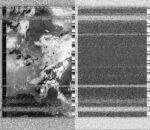
2025-07-11 19:04:00
Oppressive Heat Project
Phnom Penh, Cambodia
Cambodia
NOAA-15
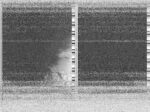
2025-07-11 11:07:00
Svalbard
Longyearbyen, Svalbard
Svalbard
NOAA-15

2025-07-11 09:37:00
Foto Colectania
Hangar
Ràdio Web MACBA
Barcelona, Spain
Spain
NOAA-15

2025-07-11 09:41:00
Maufox
Mauritius, Mauritius
Mauritius
NOAA-19

2025-07-10 21:58:00
Zack Wettstein
Seattle, United States
United States
NOAA-19

2025-07-10 23:10:00
Diana Engelmann
Filip Shatlan
Gainesville, Florida , United States
United States
NOAA-19
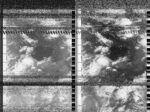
2025-07-10 20:22:00
Diana Engelmann
Filip Shatlan
Gainesville, Florida , United States
United States
NOAA-15
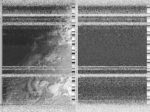
2025-07-10 19:15:00
Svalbard
Longyearbyen, Svalbard
Svalbard
NOAA-19

2025-07-10 11:46:00
Gilboa, New York
Gilboa, New York, United States
United States
NOAA-19
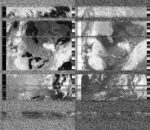
2025-07-10 12:43:00
Foto Colectania
Hangar
Ràdio Web MACBA
Barcelona, Spain
Spain
NOAA-19

2025-07-10 09:53:00
Maufox
Mauritius, Mauritius
Mauritius
NOAA-19

2025-07-09 22:11:00
Zack Wettstein
Seattle, United States
United States
NOAA-19

2025-07-09 23:23:00
Diana Engelmann
Filip Shatlan
Gainesville, Florida , United States
United States
NOAA-19
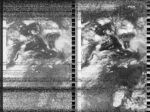
2025-07-10 06:47:00
Oppressive Heat Project
Phnom Penh, Cambodia
Cambodia
NOAA-15
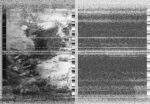
2025-07-09 19:11:00
Gilboa, New York
Gilboa, New York, United States
United States
NOAA-15
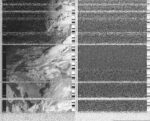
2025-07-09 20:09:00
Foto Colectania
Hangar
Ràdio Web MACBA
Barcelona, Spain
Spain
NOAA-15

2025-07-09 19:28:00
Svalbard
Longyearbyen, Svalbard
Svalbard
NOAA-19

2025-07-09 12:03:00
Diana Engelmann
Filip Shatlan
Gainesville, Florida , United States
United States
NOAA-19
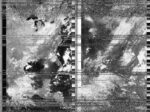
2025-07-09 10:06:00
Maufox
Mauritius, Mauritius
Mauritius
NOAA-19

2025-07-09 08:10:00
Cyprus Amateur Radio Society
Nicosia , Cyprus
Cyprus
NOAA-15

2025-07-08 23:21:00
Diana Engelmann
Filip Shatlan
Gainesville, Florida , United States
United States
NOAA-18

2025-07-08 21:57:00
Gilboa, New York
Gilboa, New York, United States
United States
NOAA-19

2025-07-09 07:13:00
Oppressive Heat Project
Phnom Penh, Cambodia
Cambodia
NOAA-15
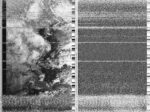
2025-07-08 22:09:00
Cyprus Amateur Radio Society
Nicosia , Cyprus
Cyprus
NOAA-19

2025-07-08 12:01:00
Diana Engelmann
Filip Shatlan
Gainesville, Florida , United States
United States
NOAA-18

2025-07-08 08:38:00
Zack Wettstein
Seattle, United States
United States
NOAA-15
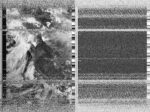
2025-07-08 10:46:00
Svalbard
Longyearbyen, Svalbard
Svalbard
NOAA-15

2025-07-08 09:16:00
Foto Colectania
Hangar
Ràdio Web MACBA
Barcelona, Spain
Spain
NOAA-15

2025-07-08 10:19:00
Maufox
Mauritius, Mauritius
Mauritius
NOAA-19

2025-07-08 09:46:00
Oppressive Heat Project
Phnom Penh, Cambodia
Cambodia
NOAA-19
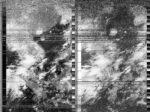
2025-07-07 22:10:00
Gilboa, New York
Gilboa, New York, United States
United States
NOAA-19

2025-07-07 20:00:00
Diana Engelmann
Filip Shatlan
Gainesville, Florida , United States
United States
NOAA-15
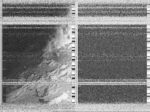
2025-07-07 23:06:00
Foto Colectania
Hangar
Ràdio Web MACBA
Barcelona, Spain
Spain
NOAA-19

2025-07-07 09:04:00
Zack Wettstein
Seattle, United States
United States
NOAA-15
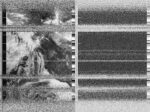
2025-07-07 08:47:00
Diana Engelmann
Filip Shatlan
Gainesville, Florida , United States
United States
NOAA-15
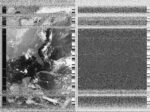
2025-07-07 11:12:00
Svalbard
Longyearbyen, Svalbard
Svalbard
NOAA-15

2025-07-07 10:59:00
Cyprus Amateur Radio Society
Nicosia , Cyprus
Cyprus
NOAA-19

2025-07-07 10:32:00
Maufox
Mauritius, Mauritius
Mauritius
NOAA-19

2025-07-07 09:59:00
Oppressive Heat Project
Phnom Penh, Cambodia
Cambodia
NOAA-19
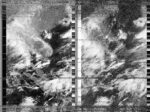
2025-07-06 22:23:00
Gilboa, New York
Gilboa, New York, United States
United States
NOAA-19

2025-07-06 23:18:00
Foto Colectania
Hangar
Ràdio Web MACBA
Barcelona, Spain
Spain
NOAA-19

2025-07-06 11:19:00
Zack Wettstein
Seattle, United States
United States
NOAA-19
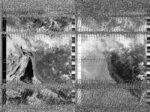
2025-07-06 16:37:00
Svalbard
Longyearbyen, Svalbard
Svalbard
NOAA-15

2025-07-06 21:22:00
Oppressive Heat Project
Phnom Penh, Cambodia
Cambodia
NOAA-19

2025-07-06 11:12:00
Cyprus Amateur Radio Society
Nicosia , Cyprus
Cyprus
NOAA-19

2025-07-06 09:04:00
Maufox
Mauritius, Mauritius
Mauritius
NOAA-19

2025-07-05 11:32:00
Zack Wettstein
Seattle, United States
United States
NOAA-19
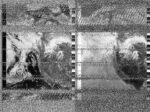
2025-07-05 11:09:00
Gilboa, New York
Gilboa, New York, United States
United States
NOAA-19
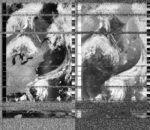
2025-07-05 17:03:00
Svalbard
Longyearbyen, Svalbard
Svalbard
NOAA-15

2025-07-05 21:34:00
Oppressive Heat Project
Phnom Penh, Cambodia
Cambodia
NOAA-19
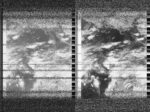
2025-07-05 12:05:00
Foto Colectania
Hangar
Ràdio Web MACBA
Barcelona, Spain
Spain
NOAA-19

2025-07-05 09:16:00
Maufox
Mauritius, Mauritius
Mauritius
NOAA-19

2025-07-05 08:15:00
Cyprus Amateur Radio Society
Nicosia , Cyprus
Cyprus
NOAA-15

2025-07-04 20:17:00
Svalbard
Longyearbyen, Svalbard
Svalbard
NOAA-18

2025-07-04 08:43:00
Zack Wettstein
Seattle, United States
United States
NOAA-15
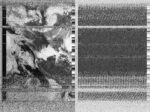
2025-07-04 08:21:00
Gilboa, New York
Gilboa, New York, United States
United States
NOAA-15
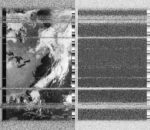
2025-07-04 18:47:00
Oppressive Heat Project
Phnom Penh, Cambodia
Cambodia
NOAA-15
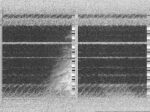
2025-07-04 12:18:00
Foto Colectania
Hangar
Ràdio Web MACBA
Barcelona, Spain
Spain
NOAA-19

2025-07-04 08:41:00
Cyprus Amateur Radio Society
Nicosia , Cyprus
Cyprus
NOAA-15

2025-07-04 09:29:00
Maufox
Mauritius, Mauritius
Mauritius
NOAA-19

2025-07-03 21:32:00
Cyprus Amateur Radio Society
Nicosia , Cyprus
Cyprus
NOAA-19

2025-07-03 20:30:00
Svalbard
Longyearbyen, Svalbard
Svalbard
NOAA-18

2025-07-03 09:09:00
Zack Wettstein
Seattle, United States
United States
NOAA-15
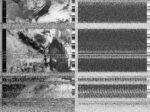
2025-07-03 08:47:00
Gilboa, New York
Gilboa, New York, United States
United States
NOAA-15
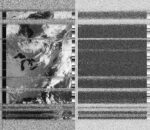
2025-07-03 19:13:00
Oppressive Heat Project
Phnom Penh, Cambodia
Cambodia
NOAA-15
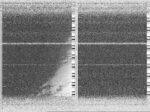
2025-07-03 12:31:00
Foto Colectania
Hangar
Ràdio Web MACBA
Barcelona, Spain
Spain
NOAA-19

2025-07-03 09:41:00
Maufox
Mauritius, Mauritius
Mauritius
NOAA-19
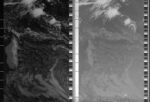
2025-07-02 21:59:00
Zack Wettstein
Seattle, United States
United States
NOAA-19
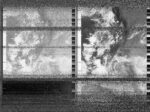
2025-07-02 23:11:00
Diana Engelmann
Filip Shatlan
Gainesville, Florida , United States
United States
NOAA-19
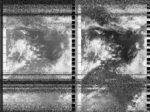
2025-07-02 19:16:00
Svalbard
Longyearbyen, Svalbard
Svalbard
NOAA-19

2025-07-02 19:10:00
Cyprus Amateur Radio Society
Nicosia , Cyprus
Cyprus
NOAA-15

2025-07-02 11:52:00
Diana Engelmann
Filip Shatlan
Gainesville, Florida , United States
United States
NOAA-19
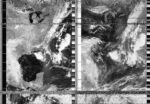
2025-07-02 11:47:00
Gilboa, New York
Gilboa, New York, United States
United States
NOAA-19
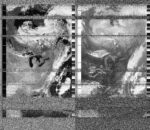
2025-07-02 11:45:00
Goownown Growers
The Seaweed Institute
CAST, Helston, Cornwall, United Kingdom
United Kingdom
NOAA-19
2025-07-02 12:43:00
Foto Colectania
Hangar
Ràdio Web MACBA
Barcelona, Spain
Spain
NOAA-19

2025-07-02 09:54:00
Maufox
Mauritius, Mauritius
Mauritius
NOAA-19

2025-07-01 22:11:00
Zack Wettstein
Seattle, United States
United States
NOAA-19

2025-07-02 06:56:00
Oppressive Heat Project
Phnom Penh, Cambodia
Cambodia
NOAA-15
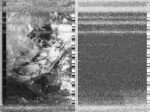
2025-07-01 19:20:00
Gilboa, New York
Gilboa, New York, United States
United States
NOAA-15
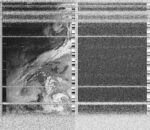
2025-07-01 20:19:00
Foto Colectania
Hangar
Ràdio Web MACBA
Barcelona, Spain
Spain
NOAA-15

2025-07-01 12:04:00
Diana Engelmann
Filip Shatlan
Gainesville, Florida , United States
United States
NOAA-19
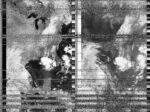
2025-07-01 17:08:00
Svalbard
Longyearbyen, Svalbard
Svalbard
NOAA-15

2025-07-01 11:58:00
Goownown Growers
The Seaweed Institute
CAST, Helston, Cornwall, United Kingdom
United Kingdom
NOAA-19
2025-07-01 10:07:00
Maufox
Mauritius, Mauritius
Mauritius
NOAA-19

2025-07-01 08:20:00
Cyprus Amateur Radio Society
Nicosia , Cyprus
Cyprus
NOAA-15

2025-06-30 23:23:00
Diana Engelmann
Filip Shatlan
Gainesville, Florida , United States
United States
NOAA-18

2025-07-01 07:22:00
Oppressive Heat Project
Phnom Penh, Cambodia
Cambodia
NOAA-15
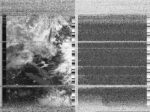
2025-06-30 23:28:00
Goownown Growers
The Seaweed Institute
CAST, Helston, Cornwall, United Kingdom
United Kingdom
NOAA-18
2025-06-30 22:10:00
Cyprus Amateur Radio Society
Nicosia , Cyprus
Cyprus
NOAA-19

2025-06-30 08:31:00
Diana Engelmann
Filip Shatlan
Gainesville, Florida , United States
United States
NOAA-15
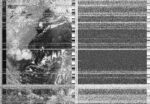
2025-06-30 08:26:00
Gilboa, New York
Gilboa, New York, United States
United States
NOAA-15
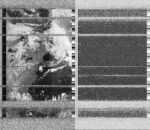
2025-06-30 10:55:00
Svalbard
Longyearbyen, Svalbard
Svalbard
NOAA-15

2025-06-30 09:25:00
Foto Colectania
Hangar
Ràdio Web MACBA
Barcelona, Spain
Spain
NOAA-15

2025-06-30 10:20:00
Maufox
Mauritius, Mauritius
Mauritius
NOAA-19

2025-06-30 09:47:00
Oppressive Heat Project
Phnom Penh, Cambodia
Cambodia
NOAA-19
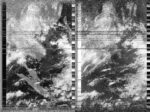
2025-06-29 22:11:00
Gilboa, New York
Gilboa, New York, United States
United States
NOAA-19
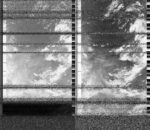
2025-06-29 20:10:00
Diana Engelmann
Filip Shatlan
Gainesville, Florida , United States
United States
NOAA-15
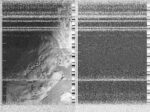
2025-06-29 22:13:00
Goownown Growers
The Seaweed Institute
CAST, Helston, Cornwall, United Kingdom
United Kingdom
NOAA-19
2025-06-29 23:07:00
Foto Colectania
Hangar
Ràdio Web MACBA
Barcelona, Spain
Spain
NOAA-19

2025-06-29 08:56:00
Diana Engelmann
Filip Shatlan
Gainesville, Florida , United States
United States
NOAA-15
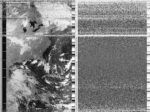
2025-06-29 11:00:00
Cyprus Amateur Radio Society
Nicosia , Cyprus
Cyprus
NOAA-19

2025-06-29 10:33:00
Maufox
Mauritius, Mauritius
Mauritius
NOAA-19

2025-06-28 23:49:00
Diana Engelmann
Filip Shatlan
Gainesville, Florida , United States
United States
NOAA-18

2025-06-29 10:00:00
Oppressive Heat Project
Phnom Penh, Cambodia
Cambodia
NOAA-19
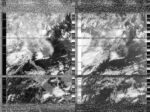
2025-06-28 22:26:00
Goownown Growers
The Seaweed Institute
CAST, Helston, Cornwall, United Kingdom
United Kingdom
NOAA-19
2025-06-28 12:29:00
Diana Engelmann
Filip Shatlan
Gainesville, Florida , United States
United States
NOAA-18

2025-06-28 19:14:00
Cyprus Amateur Radio Society
Nicosia , Cyprus
Cyprus
NOAA-15

2025-06-28 10:57:00
Gilboa, New York
Gilboa, New York, United States
United States
NOAA-19
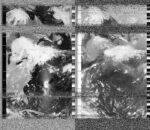
2025-06-28 14:52:00
Svalbard
Longyearbyen, Svalbard
Svalbard
NOAA-18

2025-06-28 11:53:00
Foto Colectania
Hangar
Ràdio Web MACBA
Barcelona, Spain
Spain
NOAA-19

2025-06-28 09:05:00
Maufox
Mauritius, Mauritius
Mauritius
NOAA-19

2025-06-27 22:34:00
Diana Engelmann
Filip Shatlan
Gainesville, Florida , United States
United States
NOAA-19
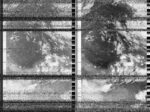
2025-06-28 07:01:00
Oppressive Heat Project
Phnom Penh, Cambodia
Cambodia
NOAA-15
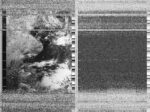
2025-06-27 19:24:00
Gilboa, New York
Gilboa, New York, United States
United States
NOAA-15
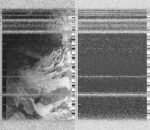
2025-06-27 12:42:00
Diana Engelmann
Filip Shatlan
Gainesville, Florida , United States
United States
NOAA-18

2025-06-27 21:35:00
Oppressive Heat Project
Phnom Penh, Cambodia
Cambodia
NOAA-19
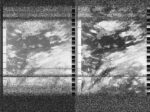
2025-06-27 12:36:00
Goownown Growers
The Seaweed Institute
CAST, Helston, Cornwall, United Kingdom
United Kingdom
NOAA-18
2025-06-27 12:06:00
Foto Colectania
Hangar
Ràdio Web MACBA
Barcelona, Spain
Spain
NOAA-19

2025-06-27 08:24:00
Cyprus Amateur Radio Society (CY)
Nicosia , Cyprus
Cyprus
NOAA-15

2025-06-27 09:17:00
Maufox
Mauritius, Mauritius
Mauritius
NOAA-19

2025-06-26 22:46:00
Diana Engelmann
Filip Shatlan
Gainesville, Florida , United States
United States
NOAA-19
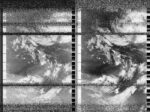
2025-06-26 11:26:00
Diana Engelmann
Filip Shatlan
Gainesville, Florida , United States
United States
NOAA-19
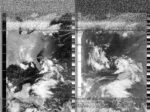
2025-06-26 18:56:00
Oppressive Heat Project (KH)
Phnom Penh, Cambodia
Cambodia
NOAA-15
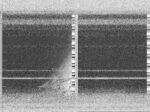
2025-06-26 12:49:00
Goownown Growers
The Seaweed Institute
CAST, Helston, Cornwall, United Kingdom
United Kingdom
NOAA-18
2025-06-26 12:19:00
Foto Colectania
Hangar
Ràdio Web MACBA
Barcelona, Spain
Spain
NOAA-19

2025-06-26 09:29:00
Foto Colectania
Hangar
Ràdio Web MACBA
Barcelona, Spain
Spain
NOAA-15

2025-06-26 08:50:00
Cyprus Amateur Radio Society (CY)
Nicosia , Cyprus
Cyprus
NOAA-15

2025-06-26 09:30:00
Maufox (MU)
Mauritius, Mauritius
Mauritius
NOAA-19

2025-06-25 22:59:00
Diana Engelmann
Filip Shatlan
Gainesville, Florida , United States
United States
NOAA-19
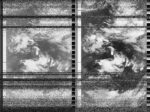
2025-06-25 20:14:00
Diana Engelmann
Filip Shatlan
Gainesville, Florida , United States
United States
NOAA-15
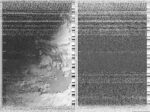
2025-06-25 23:45:00
Foto Colectania
Hangar
Ràdio Web MACBA
Barcelona, Spain
Spain
NOAA-18

2025-06-25 21:56:00
JHB (SA)
Roodepoort, Johannesburg, South Africa
South Africa
NOAA-19

2025-06-25 21:33:00
Cyprus Amateur Radio Society (CY)
Nicosia , Cyprus
Cyprus
NOAA-19

2025-06-25 22:01:00
Oppressive Heat Project (KH)
Phnom Penh, Cambodia
Cambodia
NOAA-19

2025-06-25 13:02:00
Goownown Growers
The Seaweed Institute
CAST, Helston, Cornwall, United Kingdom
United Kingdom
NOAA-18
2025-06-24 23:12:00
Diana Engelmann
Filip Shatlan
Gainesville, Florida , United States
United States
NOAA-19
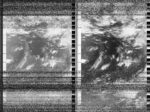
2025-06-24 23:58:00
Foto Colectania
Hangar
Ràdio Web MACBA
Barcelona, Spain
Spain
NOAA-18

2025-06-24 19:18:00
Cyprus Amateur Radio Society (CY)
Nicosia , Cyprus
Cyprus
NOAA-15

2025-06-24 11:52:00
Diana Engelmann
Filip Shatlan
Gainesville, Florida , United States
United States
NOAA-19
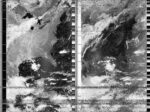
2025-06-24 22:13:00
Oppressive Heat Project (KH)
Phnom Penh, Cambodia
Cambodia
NOAA-19
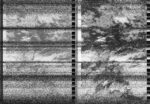
2025-06-24 11:46:00
Goownown Growers
The Seaweed Institute
CAST, Helston, Cornwall, United Kingdom
United Kingdom
NOAA-19
2025-06-24 11:52:00
Cyprus Amateur Radio Society (CY)
Nicosia , Cyprus
Cyprus
NOAA-18

2025-06-24 10:51:00
Oppressive Heat Project (KH)
Phnom Penh, Cambodia
Cambodia
NOAA-18

2025-06-23 23:25:00
Diana Engelmann
Filip Shatlan
Gainesville, Florida , United States
United States
NOAA-19
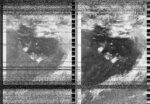
2025-06-23 23:08:00
Tsonami Arte Sonoro (CL)
Valparaiso, Chile
Chile
NOAA-19

2025-06-23 22:57:00
Tsonami Arte Sonoro (CL)
Valparaiso, Chile
Chile
NOAA-18

2025-06-23 20:51:00
Tsonami Arte Sonoro (CL)
Valparaiso, Chile
Chile
NOAA-15

2025-06-23 21:58:00
Cyprus Amateur Radio Society (CY)
Nicosia , Cyprus
Cyprus
NOAA-19

2025-06-23 20:28:00
Foto Colectania
Hangar
Ràdio Web MACBA
Barcelona, Spain
Spain
NOAA-15

2025-06-23 12:05:00
Diana Engelmann
Filip Shatlan
Gainesville, Florida , United States
United States
NOAA-19
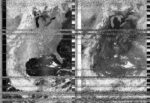
2025-06-23 18:49:00
Maufox (MU)
Mauritius, Mauritius
Mauritius
NOAA-15

2025-06-23 11:58:00
Goownown Growers
The Seaweed Institute
CAST, Helston, Cornwall, United Kingdom
United Kingdom
NOAA-19
2025-06-23 10:08:00
Maufox (MU)
Mauritius, Mauritius
Mauritius
NOAA-19

2025-06-23 11:05:00
Oppressive Heat Project (KH)
Phnom Penh, Cambodia
Cambodia
NOAA-18

2025-06-23 06:23:00
Maufox (MU)
Mauritius, Mauritius
Mauritius
NOAA-15

2025-06-22 19:53:00
Diana Engelmann
Filip Shatlan
Gainesville, Florida , United States
United States
NOAA-15
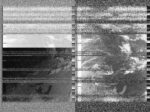
2025-06-22 23:30:00
Goownown Growers
The Seaweed Institute
CAST, Helston, Cornwall, United Kingdom
United Kingdom
NOAA-18
2025-06-22 08:40:00
Diana Engelmann
Filip Shatlan
Gainesville, Florida , United States
United States
NOAA-15
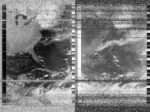
2025-06-22 19:01:00
Oppressive Heat Project (KH)
Phnom Penh, Cambodia
Cambodia
NOAA-15
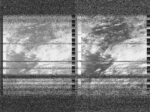
2025-06-22 12:57:00
Foto Colectania
Hangar
Ràdio Web MACBA
Barcelona, Spain
Spain
NOAA-18

2025-06-22 10:48:00
Cyprus Amateur Radio Society (CY)
Nicosia , Cyprus
Cyprus
NOAA-19

2025-06-22 10:21:00
Maufox (MU)
Mauritius, Mauritius
Mauritius
NOAA-19

2025-06-22 09:47:00
Oppressive Heat Project (KH)
Phnom Penh, Cambodia
Cambodia
NOAA-19
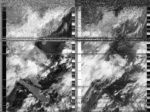
2025-06-21 23:07:00
Foto Colectania
Hangar
Ràdio Web MACBA
Barcelona, Spain
Spain
NOAA-19

2025-06-21 22:39:00
Oppressive Heat Project (KH)
Phnom Penh, Cambodia
Cambodia
NOAA-18

2025-06-21 10:34:00
Maufox (MU)
Mauritius, Mauritius
Mauritius
NOAA-19

2025-06-20 23:51:00
Diana Engelmann
Filip Shatlan
Gainesville, Florida , United States
United States
NOAA-18

2025-06-20 23:04:00
Iterable pueyrredon (AR)
Cordoba , Argentina
Argentina
NOAA-19

2025-06-20 21:28:00
Iterable pueyrredon (AR)
Cordoba , Argentina
Argentina
NOAA-15
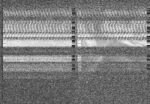
2025-06-20 19:49:00
Iterable pueyrredon (AR)
Cordoba , Argentina
Argentina
NOAA-15

2025-06-20 12:32:00
Diana Engelmann
Filip Shatlan
Gainesville, Florida , United States
United States
NOAA-18

2025-06-20 11:53:00
Foto Colectania
Hangar
Ràdio Web MACBA
Barcelona, Spain
Spain
NOAA-19

2025-06-20 09:06:00
Maufox (MU)
Mauritius, Mauritius
Mauritius
NOAA-19

2025-06-19 08:33:00
Cyprus Amateur Radio Society (CY)
Nicosia , Cyprus
Cyprus
NOAA-15

2025-06-19 09:18:00
Maufox (MU)
Mauritius, Mauritius
Mauritius
NOAA-19

2025-06-18 22:47:00
Diana Engelmann
Filip Shatlan
Gainesville, Florida , United States
United States
NOAA-19
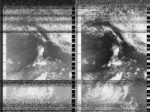
2025-06-18 23:29:00
Iterable pueyrredon (AR)
Cordoba , Argentina
Argentina
NOAA-19

2025-06-18 20:40:00
Iterable pueyrredon (AR)
Cordoba , Argentina
Argentina
NOAA-15

2025-06-18 22:50:00
Cyprus Amateur Radio Society (CY)
Nicosia , Cyprus
Cyprus
NOAA-18

2025-06-18 11:27:00
Diana Engelmann
Filip Shatlan
Gainesville, Florida , United States
United States
NOAA-19
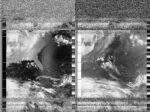
2025-06-18 11:23:00
Gilboa, New York (US)
Gilboa, New York, United States
United States
NOAA-19
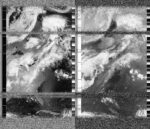
2025-06-06 06:51:00
Louis Potgieter
Roodepoort, Johannesburg, South Africa
South Africa
NOAA-15

2025-06-05 19:39:00
Louis Potgieter
Roodepoort, Johannesburg, South Africa
South Africa
NOAA-15

2025-06-15 22:10:00
Louis Potgieter
Roodepoort, Johannesburg, South Africa
South Africa
NOAA-19

2025-06-18 19:05:00
Oppressive Heat Project (KH)
Phnom Penh, Cambodia
Cambodia
NOAA-15

2025-06-18 12:47:00
Goownown Growers
The Seaweed Institute
CAST, Helston, Cornwall, United Kingdom
United Kingdom
NOAA-18

2025-06-18 08:20:00
Iterable pueyrredon (AR)
Cordoba , Argentina
Argentina
NOAA-15

2025-06-18 12:19:00
Foto Colectania
Hangar
Ràdio Web MACBA
Barcelona, Spain
Spain
NOAA-19

2025-06-17 23:18:00
Zack Wettstein (US)
Seattle, United States
United States
NOAA-18

2025-06-18 09:30:00
Maufox (MU)
Mauritius, Mauritius
Mauritius
NOAA-19

2025-06-17 22:59:00
Diana Engelmann
Filip Shatlan
Gainesville, Florida , United States
United States
NOAA-19
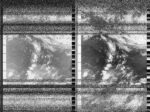
2025-06-17 22:51:00
Gilboa, New York (US)
Gilboa, New York, United States
United States
NOAA-18

2025-06-17 23:42:00
Iterable pueyrredon (AR)
Cordoba , Argentina
Argentina
NOAA-19
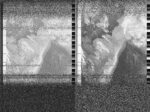
2025-06-17 21:06:00
Iterable pueyrredon (AR)
Cordoba , Argentina
Argentina
NOAA-15

2025-06-17 23:47:00
Foto Colectania
Hangar
Ràdio Web MACBA
Barcelona, Spain
Spain
NOAA-18

2025-06-17 23:03:00
Cyprus Amateur Radio Society (CY)
Nicosia , Cyprus
Cyprus
NOAA-18

2025-06-17 11:40:00
Diana Engelmann
Filip Shatlan
Gainesville, Florida , United States
United States
NOAA-19
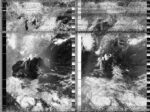
2025-06-17 11:05:00
Iterable pueyrredon (AR)
Cordoba , Argentina
Argentina
NOAA-18

2025-06-17 09:03:00
Goownown Growers
The Seaweed Institute
CAST, Helston, Cornwall, United Kingdom
United Kingdom
NOAA-15

2025-06-17 09:43:00
Maufox (MU)
Mauritius, Mauritius
Mauritius
NOAA-19

2025-06-17 10:41:00
Oppressive Heat Project (KH)
Phnom Penh, Cambodia
Cambodia
NOAA-18

2025-06-16 23:12:00
Diana Engelmann
Filip Shatlan
Gainesville, Florida , United States
United States
NOAA-19
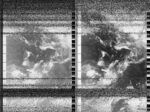
2025-06-16 23:05:00
Gilboa, New York (US)
Gilboa, New York, United States
United States
NOAA-18

2025-06-16 22:56:00
Tsonami Arte Sonoro (CL)
Valparaiso, Chile
Chile
NOAA-19

2025-06-16 23:55:00
Iterable pueyrredon (AR)
Cordoba , Argentina
Argentina
NOAA-19

2025-06-16 22:47:00
Tsonami Arte Sonoro (CL)
Valparaiso, Chile
Chile
NOAA-18

2025-06-16 19:37:00
Zack Wettstein (US)
Seattle, United States
United States
NOAA-15

2025-06-17 10:13:00
Jo Pollitt
Rumen Rachev
Perth , Australia
Australia
NOAA-18

2025-06-16 21:35:00
Gilboa, New York (US)
Gilboa, New York, United States
United States
NOAA-19

2025-06-16 20:34:00
Tsonami Arte Sonoro (CL)
Valparaiso, Chile
Chile
NOAA-15

2025-06-16 19:13:00
Gilboa, New York (US)
Gilboa, New York, United States
United States
NOAA-15
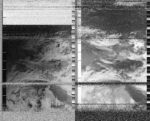
2025-06-16 20:11:00
Foto Colectania
Hangar
Ràdio Web MACBA
Barcelona, Spain
Spain
NOAA-15

2025-06-16 19:28:00
Cyprus Amateur Radio Society (CY)
Nicosia , Cyprus
Cyprus
NOAA-15

2025-06-16 12:01:00
Tsonami Arte Sonoro (CL)
Valparaiso, Chile
Chile
NOAA-18

2025-06-16 11:53:00
Diana Engelmann
Filip Shatlan
Gainesville, Florida , United States
United States
NOAA-19
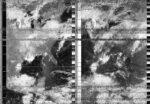
2025-06-16 11:18:00
Iterable pueyrredon (AR)
Cordoba , Argentina
Argentina
NOAA-18

2025-06-16 11:42:00
Goownown Growers
The Seaweed Institute
CAST, Helston, Cornwall, United Kingdom
United Kingdom
NOAA-19

2025-06-16 07:33:00
Iterable pueyrredon (AR)
Cordoba , Argentina
Argentina
NOAA-15

2025-06-16 09:56:00
Maufox (MU)
Mauritius, Mauritius
Mauritius
NOAA-19

2025-06-15 22:14:00
Zack Wettstein (US)
Seattle, United States
United States
NOAA-19

2025-06-15 23:17:00
Gilboa, New York (US)
Gilboa, New York, United States
United States
NOAA-18

2025-06-15 23:00:00
Tsonami Arte Sonoro (CL)
Valparaiso, Chile
Chile
NOAA-18

2025-06-15 23:57:00
Iterable pueyrredon (AR)
Cordoba , Argentina
Argentina
NOAA-18

2025-06-16 10:25:00
Jo Pollitt
Rumen Rachev
Perth , Australia
Australia
NOAA-18

2025-06-15 21:00:00
Tsonami Arte Sonoro (CL)
Valparaiso, Chile
Chile
NOAA-15


Son las 11 de la noche y cae la lluvia más intensa del año sobre Valparaíso. Desde mi ventana veo las colinas del cerro del frente y una calle inundada con un río de agua bajando la quebrada. Una bruma acompaña el ruido uniforme de la lluvia, iluminada por los faroles de la calle. La ciudad está silente y vacía, tomada por el agua que cae y su suave sonido.
2025-06-16 07:14:00
Oppressive Heat Project (KH)
Phnom Penh, Cambodia
Cambodia
NOAA-15

2025-06-15 19:38:00
Gilboa, New York (US)
Gilboa, New York, United States
United States
NOAA-15
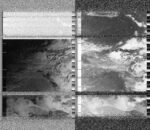
2025-06-15 12:15:00
Zack Wettstein (US)
Seattle, United States
United States
NOAA-18

2025-06-15 21:59:00
Cyprus Amateur Radio Society (CY)
Nicosia , Cyprus
Cyprus
NOAA-19


It was a typical warm June day with a clear sky. The temperature high was around 37 degrees celcius. In general it was a good day. At the time the picture was taken a couple kids could be heard having fun in their backyard. A couple of neighbours ware also observed taking a late afternoon walk, as the temperature had subsided to about 24 degrees celcius.
2025-06-15 20:37:00
Foto Colectania
Hangar
Ràdio Web MACBA
Barcelona, Spain
Spain
NOAA-15

2025-06-15 12:06:00
Diana Engelmann
Filip Shatlan
Gainesville, Florida , United States
United States
NOAA-19
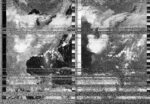
2025-06-15 08:40:00
Zack Wettstein (US)
Seattle, United States
United States
NOAA-15

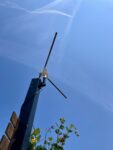
This morning pass of NOAA-15 captured by the Seattle AGS highlights the clear skies above the Puget Sound region, where we've experienced a few days of respite after a record-setting heat wave in early June. The high pressure system that is currently contributing to the comfortable temperature and cloudless skies is also helping keep the Canadian wildfire smoke at bay and out of the region for the most part, which cannot be said for the Midwest and Eastern US where the plumes and particulate have been blowing for weeks.
2025-06-15 11:31:00
Iterable pueyrredon (AR)
Cordoba , Argentina
Argentina
NOAA-18

2025-06-15 08:23:00
Diana Engelmann
Filip Shatlan
Gainesville, Florida , United States
United States
NOAA-15
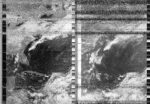
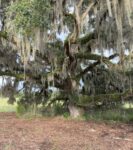



It was a truly remarkable day in my neighborhood this Sunday, as if the weather itself knew that NOAA 18 and 19 would send their final signals. We had our first summer storm since Friday in a typical central Florida pattern - sunshine and heat, followed by sudden clouds and patches of rain.
I love summer storms in Gainesville because they feel the same as summer storms on the island of Hvar in Croatia. As shown in these photos, one begins to walk down the street under perfect blue sky, and just thirty minutes later, the first innocent puffs of white clouds travel above, followed soon by their older, grayer and heavier companions. And then, for a brief moment, all the birds and cicadas are suddenly quiet, before the first sounds of thunder in the distance. Ancient oaks with their Spanish moss lace and tall pines among patiently wait for the first drops of rain.
2025-06-15 08:18:00
Gilboa, New York (US)
Gilboa, New York, United States
United States
NOAA-15
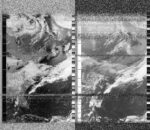
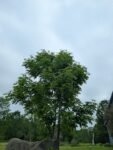
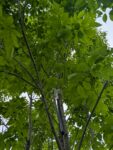

Misty day today. Atmospheric and cozy, though I do find myself wanting to see into the distance and the open sky. Antenna tree is fully leafy now here in late spring. Is the antenna a sort of imposter leaf, handling a different part of the EM spectrum from the tree leaves?
2025-06-15 18:44:00
Oppressive Heat Project (KH)
Phnom Penh, Cambodia
Cambodia
NOAA-15
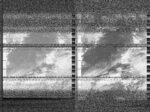
2025-06-15 07:59:00
Iterable pueyrredon (AR)
Cordoba , Argentina
Argentina
NOAA-15

2025-06-15 11:55:00
Goownown Growers
The Seaweed Institute
CAST, Helston, Cornwall, United Kingdom
United Kingdom
NOAA-19

2025-06-15 11:52:00
Hospitalfield (UK)
Arbroath, Scotland
Scotland
NOAA-19
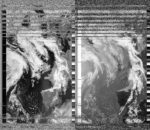
2025-06-14 23:58:00
Zack Wettstein (US)
Seattle, United States
United States
NOAA-18

2025-06-15 10:09:00
Maufox (MU)
Mauritius, Mauritius
Mauritius
NOAA-19

2025-06-14 22:26:00
Zack Wettstein (US)
Seattle, United States
United States
NOAA-19

2025-06-14 23:32:00
Gilboa, New York (US)
Gilboa, New York, United States
United States
NOAA-18

2025-06-15 10:38:00
Jo Pollitt
Rumen Rachev
Perth , Australia
Australia
NOAA-18

what to do with disappearance . . ... > when white noise is pervasive, skies are unshared, what of this repeated body of noise, resonant, insistent, what of this resistance / / . . . } - /\
2025-06-14 22:01:00
Gilboa, New York (US)
Gilboa, New York, United States
United States
NOAA-19

2025-06-14 18:50:00
Zack Wettstein (US)
Seattle, United States
United States
NOAA-15

2025-06-14 20:07:00
Gilboa, New York (US)
Gilboa, New York, United States
United States
NOAA-15

2025-06-14 20:03:00
Diana Engelmann
Filip Shatlan
Gainesville, Florida , United States
United States
NOAA-15
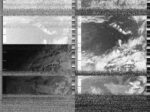
2025-06-14 20:45:00
Iterable pueyrredon (AR)
Cordoba , Argentina
Argentina
NOAA-15

2025-06-14 23:29:00
Goownown Growers
The Seaweed Institute
CAST, Helston, Cornwall, United Kingdom
United Kingdom
NOAA-18

2025-06-14 21:58:00
Hospitalfield (UK)
Arbroath, Scotland
Scotland
NOAA-19
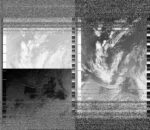
2025-06-14 12:28:00
Zack Wettstein (US)
Seattle, United States
United States
NOAA-18

2025-06-14 22:11:00
Cyprus Amateur Radio Society (CY)
Nicosia , Cyprus
Cyprus
NOAA-19

2025-06-14 22:30:00
Oppressive Heat Project (KH)
Phnom Penh, Cambodia
Cambodia
NOAA-18

2025-06-14 23:18:00
Jo Pollitt
Rumen Rachev
Perth , Australia
Australia
NOAA-18

2025-06-14 11:43:00
Iterable pueyrredon (AR)
Cordoba , Argentina
Argentina
NOAA-18

2025-06-14 10:13:00
Iterable pueyrredon (AR)
Cordoba , Argentina
Argentina
NOAA-19
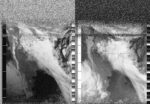
2025-06-14 08:49:00
Diana Engelmann
Filip Shatlan
Gainesville, Florida , United States
United States
NOAA-15
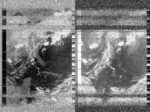
2025-06-14 13:00:00
Foto Colectania
Hangar
Ràdio Web MACBA
Barcelona, Spain
Spain
NOAA-18

2025-06-14 10:22:00
Maufox (MU)
Mauritius, Mauritius
Mauritius
NOAA-19

2025-06-13 22:52:00
Iterable pueyrredon (AR)
Cordoba , Argentina
Argentina
NOAA-19
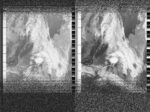
2025-06-13 23:08:00
Foto Colectania
Hangar
Ràdio Web MACBA
Barcelona, Spain
Spain
NOAA-19

2025-06-13 12:40:00
Zack Wettstein (US)
Seattle, United States
United States
NOAA-18

2025-06-13 12:22:00
Diana Engelmann
Filip Shatlan
Gainesville, Florida , United States
United States
NOAA-18

2025-06-13 22:42:00
Oppressive Heat Project (KH)
Phnom Penh, Cambodia
Cambodia
NOAA-18

2025-06-13 23:30:00
Jo Pollitt
Rumen Rachev
Perth , Australia
Australia
NOAA-18

2025-06-13 11:56:00
Iterable pueyrredon (AR)
Cordoba , Argentina
Argentina
NOAA-18

2025-06-13 10:25:00
Iterable pueyrredon (AR)
Cordoba , Argentina
Argentina
NOAA-19

2025-06-13 09:07:00
Goownown Growers
The Seaweed Institute
CAST, Helston, Cornwall, United Kingdom
United Kingdom
NOAA-15

2025-06-13 09:04:00
Hospitalfield (UK)
Arbroath, Scotland
Scotland
NOAA-15
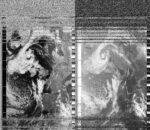
2025-06-13 11:01:00
Cyprus Amateur Radio Society (CY)
Nicosia , Cyprus
Cyprus
NOAA-19

2025-06-13 10:35:00
Maufox (MU)
Mauritius, Mauritius
Mauritius
NOAA-19

2025-06-12 23:05:00
Iterable pueyrredon (AR)
Cordoba , Argentina
Argentina
NOAA-19

2025-06-13 09:33:00
Jo Pollitt
Rumen Rachev
Perth , Australia
Australia
NOAA-19

2025-06-12 19:18:00
Gilboa, New York (US)
Gilboa, New York, United States
United States
NOAA-15

2025-06-12 22:23:00
Goownown Growers
The Seaweed Institute
CAST, Helston, Cornwall, United Kingdom
United Kingdom
NOAA-19

2025-06-12 11:22:00
Zack Wettstein (US)
Seattle, United States
United States
NOAA-19

2025-06-12 19:18:00
Hospitalfield (UK)
Arbroath, Scotland
Scotland
NOAA-15
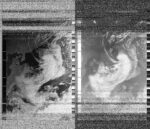
2025-06-12 12:34:00
Diana Engelmann
Filip Shatlan
Gainesville, Florida , United States
United States
NOAA-18

2025-06-12 10:38:00
Iterable pueyrredon (AR)
Cordoba , Argentina
Argentina
NOAA-19
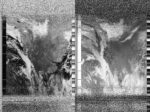
2025-06-12 07:38:00
Iterable pueyrredon (AR)
Cordoba , Argentina
Argentina
NOAA-15

2025-06-12 11:54:00
Foto Colectania
Hangar
Ràdio Web MACBA
Barcelona, Spain
Spain
NOAA-19

2025-06-12 08:16:00
Cyprus Amateur Radio Society (CY)
Nicosia , Cyprus
Cyprus
NOAA-15

2025-06-12 09:06:00
Maufox (MU)
Mauritius, Mauritius
Mauritius
NOAA-19

2025-06-12 10:24:00
Asmit Rai
Cosmos Astronomy Club
Pune, India
India
NOAA-19

2025-06-11 22:35:00
Diana Engelmann
Filip Shatlan
Gainesville, Florida , United States
United States
NOAA-19
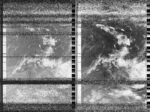
2025-06-11 23:17:00
Iterable pueyrredon (AR)
Cordoba , Argentina
Argentina
NOAA-19

2025-06-12 07:19:00
Oppressive Heat Project (KH)
Phnom Penh, Cambodia
Cambodia
NOAA-15

2025-06-11 22:40:00
Cyprus Amateur Radio Society (CY)
Nicosia , Cyprus
Cyprus
NOAA-18

2025-06-11 19:44:00
Goownown Growers
The Seaweed Institute
CAST, Helston, Cornwall, United Kingdom
United Kingdom
NOAA-15

2025-06-11 08:45:00
Zack Wettstein (US)
Seattle, United States
United States
NOAA-15

2025-06-11 11:11:00
Gilboa, New York (US)
Gilboa, New York, United States
United States
NOAA-19

2025-06-11 21:36:00
Oppressive Heat Project (KH)
Phnom Penh, Cambodia
Cambodia
NOAA-19
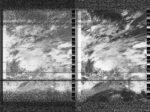
2025-06-11 10:51:00
Iterable pueyrredon (AR)
Cordoba , Argentina
Argentina
NOAA-19

2025-06-11 19:37:00
Jo Pollitt
Rumen Rachev
Perth , Australia
Australia
NOAA-15





2025-06-11 12:33:00
Hospitalfield (UK)
Arbroath, Scotland
Scotland
NOAA-18

2025-06-11 08:03:00
Iterable pueyrredon (AR)
Cordoba , Argentina
Argentina
NOAA-15

2025-06-11 12:07:00
Foto Colectania
Hangar
Ràdio Web MACBA
Barcelona, Spain
Spain
NOAA-19

2025-06-10 23:08:00
Zack Wettstein
Seattle, United States
United States
NOAA-18

2025-06-11 09:19:00
Maufox (MU)
Mauritius, Mauritius
Mauritius
NOAA-19

2025-06-10 22:31:00
Tsonami Arte Sonoro
Valparaiso, Chile
Chile
NOAA-19

2025-06-10 23:30:00
Iterable pueyrredon
Cordoba , Argentina
Argentina
NOAA-19

2025-06-11 07:54:00
Cosmos Astronomy Club MIT WPU
Pune, India
India
NOAA-15

2025-06-10 20:49:00
Iterable pueyrredon
Cordoba , Argentina
Argentina
NOAA-15

2025-06-10 22:53:00
Cyprus Amateur Radio Society
Nicosia , Cyprus
Cyprus
NOAA-18

2025-06-10 22:03:00
Cosmos Astronomy Club MIT WPU
Pune, India
India
NOAA-19

2025-06-10 11:25:00
Heidi Neilson
Gilboa, New York, United States
United States
NOAA-19
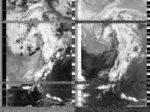
2025-06-10 21:49:00
Oppressive Heat Project
Phnom Penh, Cambodia
Cambodia
NOAA-19

2025-06-10 11:03:00
Iterable pueyrredon
Cordoba , Argentina
Argentina
NOAA-19

2025-06-10 08:54:00
Filip Shatlan and Diana Engelmann
Gainesville, Florida , United States
United States
NOAA-15

2025-06-10 12:50:00
Goownown Growers
The Seaweed Institute
CAST, Helston, Cornwall, United Kingdom
United Kingdom
NOAA-18

2025-06-10 12:46:00
Hospitalfield
Arbroath, Scotland
Scotland
NOAA-18

2025-06-10 12:20:00
Foto Colectania
Hangar
Ràdio Web MACBA
Barcelona, Spain
Spain
NOAA-19

2025-06-09 23:21:00
Zack Wettstein
Seattle, United States
United States
NOAA-18

2025-06-09 23:00:00
Filip Shatlan and Diana Engelmann
Gainesville, Florida , United States
United States
NOAA-19
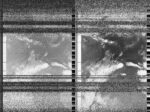
2025-06-09 22:55:00
Heidi Neilson
Gilboa, New York, United States
United States
NOAA-18

2025-06-09 23:43:00
Iterable pueyrredon
Cordoba , Argentina
Argentina
NOAA-19
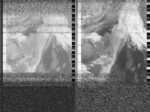
2025-06-09 20:16:00
Tsonami Arte Sonoro
Valparaiso, Chile
Chile
NOAA-15

2025-06-09 21:16:00
Iterable pueyrredon
Cordoba , Argentina
Argentina
NOAA-15

2025-06-09 23:50:00
Foto Colectania
Hangar
Ràdio Web MACBA
Barcelona, Spain
Spain
NOAA-18

2025-06-09 23:06:00
Cyprus Amateur Radio Society
Nicosia , Cyprus
Cyprus
NOAA-18

2025-06-09 22:15:00
Cosmos Astronomy Club MIT WPU
Pune, India
India
NOAA-19
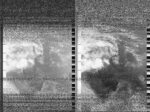
2025-06-09 11:08:00
Iterable pueyrredon
Cordoba , Argentina
Argentina
NOAA-18

2025-06-09 09:12:00
Goownown Growers
The Seaweed Institute
CAST, Helston, Cornwall, United Kingdom
United Kingdom
NOAA-15

2025-06-09 09:09:00
Hospitalfield
Arbroath, Scotland
Scotland
NOAA-15
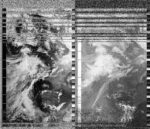
2025-06-09 09:44:00
Maufox
Mauritius, Mauritius
Mauritius
NOAA-19

2025-06-09 10:43:00
Oppressive Heat Project
Phnom Penh, Cambodia
Cambodia
NOAA-18

2025-06-08 23:08:00
Heidi Neilson
Gilboa, New York, United States
United States
NOAA-18

2025-06-08 23:56:00
Iterable pueyrredon
Cordoba , Argentina
Argentina
NOAA-19
2025-06-08 23:48:00
Iterable pueyrredon
Cordoba , Argentina
Argentina
NOAA-18
2025-06-08 19:46:00
Zack Wettstein
Seattle, United States
United States
NOAA-15

2025-06-08 21:43:00
Iterable pueyrredon
Cordoba , Argentina
Argentina
NOAA-15
2025-06-08 19:23:00
Hospitalfield
Arbroath, Scotland
Scotland
NOAA-15
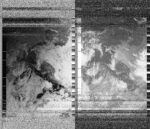
2025-06-08 20:20:00
Foto Colectania
Hangar
Ràdio Web MACBA
Barcelona, Spain
Spain
NOAA-15

2025-06-08 11:54:00
Filip Shatlan and Diana Engelmann
Gainesville, Florida , United States
United States
NOAA-19
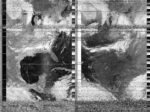
2025-06-08 11:43:00
Goownown Growers
The Seaweed Institute
CAST, Helston, Cornwall, United Kingdom
United Kingdom
NOAA-19

2025-06-08 09:56:00
Maufox
Mauritius, Mauritius
Mauritius
NOAA-19

2025-06-08 08:21:00
Cyprus Amateur Radio Society
Nicosia , Cyprus
Cyprus
NOAA-15

2025-06-07 22:14:00
Zack Wettstein
Seattle, United States
United States
NOAA-19

2025-06-08 10:56:00
Oppressive Heat Project
Phnom Penh, Cambodia
Cambodia
NOAA-18

2025-06-08 07:33:00
Cosmos Astronomy Club MIT WPU
Pune, India
India
NOAA-15

2025-06-07 23:18:00
Goownown Growers
The Seaweed Institute
CAST, Helston, Cornwall, United Kingdom
United Kingdom
NOAA-18

2025-06-07 21:59:00
Cyprus Amateur Radio Society
Nicosia , Cyprus
Cyprus
NOAA-19

2025-06-07 11:33:00
Iterable pueyrredon
Cordoba , Argentina
Argentina
NOAA-18

2025-06-07 08:32:00
Filip Shatlan and Diana Engelmann
Gainesville, Florida , United States
United States
NOAA-15
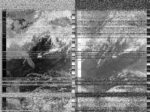
2025-06-07 08:29:00
Heidi Neilson
Gilboa, New York, United States
United States
NOAA-15
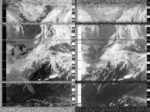
2025-06-07 18:53:00
Oppressive Heat Project
Phnom Penh, Cambodia
Cambodia
NOAA-15

2025-06-07 08:08:00
Iterable pueyrredon
Cordoba , Argentina
Argentina
NOAA-15

2025-06-07 11:52:00
Hospitalfield
Arbroath, Scotland
Scotland
NOAA-19
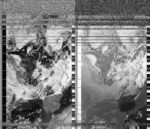
2025-06-07 09:27:00
Foto Colectania
Hangar
Ràdio Web MACBA
Barcelona, Spain
Spain
NOAA-15

2025-06-07 10:09:00
Maufox
Mauritius, Mauritius
Mauritius
NOAA-19

2025-06-07 11:19:00
Cosmos Astronomy Club MIT WPU
Pune, India
India
NOAA-18

2025-06-06 19:55:00
Tsonami Arte Sonoro
Valparaiso, Chile
Chile
NOAA-15

2025-06-06 20:54:00
Iterable pueyrredon
Cordoba , Argentina
Argentina
NOAA-15
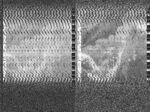
2025-06-06 23:31:00
Goownown Growers
The Seaweed Institute
CAST, Helston, Cornwall, United Kingdom
United Kingdom
NOAA-18

2025-06-06 21:59:00
Hospitalfield
Arbroath, Scotland
Scotland
NOAA-19
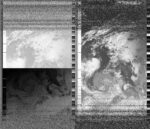
2025-06-06 12:31:00
Zack Wettstein
Seattle, United States
United States
NOAA-18

2025-06-06 22:46:00
Cosmos Astronomy Club MIT WPU
Pune, India
India
NOAA-18
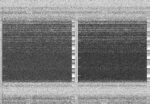
2025-06-06 12:07:00
Heidi Neilson
Gilboa, New York, United States
United States
NOAA-18
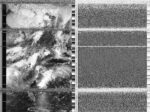
2025-06-06 11:46:00
Iterable pueyrredon
Cordoba , Argentina
Argentina
NOAA-18

2025-06-06 10:13:00
Iterable pueyrredon
Cordoba , Argentina
Argentina
NOAA-19

2025-06-06 13:03:00
Foto Colectania
Hangar
Ràdio Web MACBA
Barcelona, Spain
Spain
NOAA-18

2025-06-06 10:49:00
Cyprus Amateur Radio Society
Nicosia , Cyprus
Cyprus
NOAA-19

2025-06-06 10:14:00
Maufox
Mauritius, Mauritius
Mauritius
NOAA-18

2025-06-06 11:32:00
Cosmos Astronomy Club MIT WPU
Pune, India
India
NOAA-18

2025-06-06 09:49:00
Oppressive Heat Project
Phnom Penh, Cambodia
Cambodia
NOAA-19
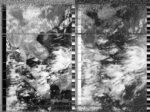
2025-06-05 19:25:00
Zack Wettstein
Seattle, United States
United States
NOAA-15


It's only appropriate that just as the first heat wave strikes Seattle this summer, the life of 1 of only 3 remaining NOAA polar-orbiting satellites in operation has unexpectedly come to an end. Thanks to the unprecedented agency funding cuts in the current presidential administration, NOAA has ended support for this satellite program. While our skies are becoming smokier and hotter, we are losing more instruments to observe and document these changes. This image of static is the first pass decoded at the Seattle AGS after NOAA 18 was decommissioned. Rest in peaceful orbit...
2025-06-05 22:53:00
Iterable pueyrredon
Cordoba , Argentina
Argentina
NOAA-19

2025-06-05 20:22:00
Tsonami Arte Sonoro
Valparaiso, Chile
Chile
NOAA-15

2025-06-05 22:11:00
Goownown Growers
The Seaweed Institute
CAST, Helston, Cornwall, United Kingdom
United Kingdom
NOAA-19

2025-06-05 23:08:00
Foto Colectania
Hangar
Ràdio Web MACBA
Barcelona, Spain
Spain
NOAA-19

2025-06-05 22:59:00
Cosmos Astronomy Club MIT WPU
Pune, India
India
NOAA-18
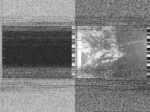
2025-06-05 12:24:00
Filip Shatlan and Diana Engelmann
Gainesville, Florida , United States
United States
NOAA-18
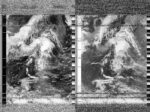
2025-06-05 12:20:00
Heidi Neilson
Gilboa, New York, United States
United States
NOAA-18

2025-06-05 11:59:00
Iterable pueyrredon
Cordoba , Argentina
Argentina
NOAA-18

2025-06-05 10:26:00
Iterable pueyrredon
Cordoba , Argentina
Argentina
NOAA-19

2025-06-05 09:13:00
Hospitalfield
Arbroath, Scotland
Scotland
NOAA-15
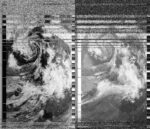
2025-06-05 11:02:00
Cyprus Amateur Radio Society
Nicosia , Cyprus
Cyprus
NOAA-19

2025-06-05 10:27:00
Maufox
Mauritius, Mauritius
Mauritius
NOAA-18

2025-06-04 23:56:00
Filip Shatlan and Diana Engelmann
Gainesville, Florida , United States
United States
NOAA-18
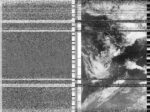
2025-06-04 23:06:00
Iterable pueyrredon
Cordoba , Argentina
Argentina
NOAA-19
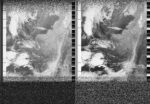
2025-06-05 07:02:00
Oppressive Heat
Phnom Penh, Cambodia
Cambodia
NOAA-15
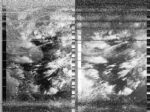
2025-06-04 19:27:00
Heidi Neilson
Gilboa, New York, United States
United States
NOAA-15
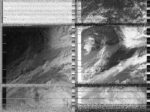
2025-06-04 22:24:00
Goownown Growers
The Seaweed Institute
CAST, Helston, Cornwall, United Kingdom
United Kingdom
NOAA-19

2025-06-04 19:27:00
Hospitalfield
Arbroath, Scotland
Scotland
NOAA-15
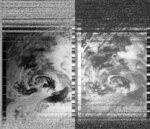
2025-06-04 20:25:00
Foto Colectania
Hangar
Ràdio Web MACBA
Barcelona, Spain
Spain
NOAA-15

2025-06-04 11:23:00
Zack Wettstein
Seattle, United States
United States
NOAA-19

2025-06-04 11:14:00
Tsonami Arte Sonoro
Valparaiso, Chile
Chile
NOAA-18

2025-06-04 21:24:00
Oppressive Heat
Phnom Penh, Cambodia
Cambodia
NOAA-19
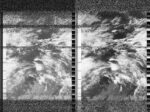
2025-06-04 10:39:00
Iterable pueyrredon
Cordoba , Argentina
Argentina
NOAA-19

2025-06-04 07:47:00
Iterable pueyrredon
Cordoba , Argentina
Argentina
NOAA-15
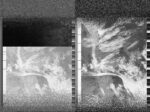
2025-06-04 10:40:00
Maufox
Mauritius, Mauritius
Mauritius
NOAA-18

2025-06-04 08:26:00
Cyprus Amateur Radio Society
Nicosia , Cyprus
Cyprus
NOAA-15

2025-06-04 09:07:00
Maufox
Mauritius, Mauritius
Mauritius
NOAA-19

2025-06-04 10:24:00
Cosmos Astronomy Club MIT WPU
Pune, India
India
NOAA-19

2025-06-04 08:01:00
Maufox
Mauritius, Mauritius
Mauritius
NOAA-15

2025-06-04 06:20:00
Maufox
Mauritius, Mauritius
Mauritius
NOAA-15

2025-06-03 23:13:00
Iterable pueyrredon
Cordoba , Argentina
Argentina
NOAA-18

2025-06-03 20:33:00
Iterable pueyrredon
Cordoba , Argentina
Argentina
NOAA-15

2025-06-03 22:43:00
Cyprus Amateur Radio Society
Nicosia , Cyprus
Cyprus
NOAA-18

2025-06-03 23:26:00
Maufox
Mauritius, Mauritius
Mauritius
NOAA-18

2025-06-03 21:52:00
Maufox
Mauritius, Mauritius
Mauritius
NOAA-19

2025-06-03 21:51:00
Cosmos Astronomy Club MIT WPU
Pune, India
India
NOAA-19

2025-06-03 08:54:00
Zack Wettstein
Seattle, United States
United States
NOAA-15

2025-06-03 08:33:00
Heidi Neilson
Gilboa, New York, United States
United States
NOAA-15
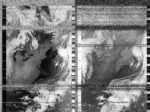
2025-06-03 18:58:00
Oppressive Heat
Phnom Penh, Cambodia
Cambodia
NOAA-15
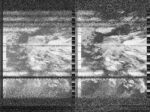
2025-06-03 12:39:00
Goownown Growers
The Seaweed Institute
CAST, Helston, Cornwall, United Kingdom
United Kingdom
NOAA-18

2025-06-03 12:36:00
Hospitalfield
Arbroath, Scotland
Scotland
NOAA-18
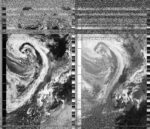
2025-06-03 12:08:00
Foto Colectania
Hangar
Ràdio Web MACBA
Barcelona, Spain
Spain
NOAA-19

2025-06-02 23:10:00
Zack Wettstein
Seattle, United States
United States
NOAA-18
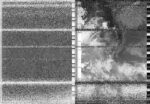
2025-06-02 22:49:00
Filip Shatlan and Diana Engelmann
Gainesville, Florida , United States
United States
NOAA-19
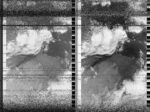
2025-06-02 22:32:00
Tsonami Arte Sonoro
Valparaiso, Chile
Chile
NOAA-19

2025-06-02 23:32:00
Iterable pueyrredon
Cordoba , Argentina
Argentina
NOAA-19

2025-06-02 21:00:00
Iterable pueyrredon
Cordoba , Argentina
Argentina
NOAA-15

2025-06-02 22:56:00
Cyprus Amateur Radio Society
Nicosia , Cyprus
Cyprus
NOAA-18

2025-06-02 23:39:00
Maufox
Mauritius, Mauritius
Mauritius
NOAA-18

2025-06-02 22:04:00
Cosmos Astronomy Club MIT WPU
Pune, India
India
NOAA-19

2025-06-02 11:25:00
Heidi Neilson
Gilboa, New York, United States
United States
NOAA-19
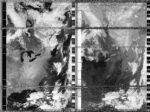
2025-06-02 21:49:00
Oppressive Heat
Phnom Penh, Cambodia
Cambodia
NOAA-19
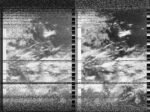
2025-06-02 12:52:00
Goownown Growers
The Seaweed Institute
CAST, Helston, Cornwall, United Kingdom
United Kingdom
NOAA-18

2025-06-02 12:49:00
Hospitalfield
Arbroath, Scotland
Scotland
NOAA-18
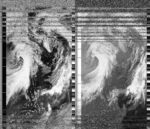
2025-06-02 12:20:00
Foto Colectania
Hangar
Ràdio Web MACBA
Barcelona, Spain
Spain
NOAA-19


2025-06-01 22:58:00
Heidi Neilson
Gilboa, New York, United States
United States
NOAA-18
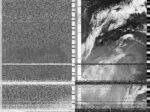
2025-06-01 23:39:00
Iterable pueyrredon
Cordoba , Argentina
Argentina
NOAA-18

2025-06-01 19:29:00
Zack Wettstein
Seattle, United States
United States
NOAA-15

2025-06-01 22:55:00
Hospitalfield
Arbroath, Scotland
Scotland
NOAA-18

2025-06-01 23:53:00
Foto Colectania
Hangar
Ràdio Web MACBA
Barcelona, Spain
Spain
NOAA-18

2025-06-01 23:52:00
Maufox
Mauritius, Mauritius
Mauritius
NOAA-18

2025-06-01 23:51:00
Cosmos Astronomy Club MIT WPU
Pune, India
India
NOAA-18

2025-06-01 11:41:00
Filip Shatlan and Diana Engelmann
Gainesville, Florida , United States
United States
NOAA-19

2025-06-01 11:31:00
Goownown Growers
The Seaweed Institute
CAST, Helston, Cornwall, United Kingdom
United Kingdom
NOAA-19
2025-06-01 11:46:00
Cyprus Amateur Radio Society
Nicosia , Cyprus
Cyprus
NOAA-18
2025-05-31 22:02:00
Zack Wettstein
Seattle, United States
United States
NOAA-19
2025-05-31 19:32:00
Heidi Neilson
Gilboa, New York, United States
United States
NOAA-15

2025-05-31 20:12:00
Iterable pueyrredon
Cordoba , Argentina
Argentina
NOAA-15

2025-06-01 00:05:00
Maufox
Mauritius, Mauritius
Mauritius
NOAA-18

2025-05-31 20:30:00
Foto Colectania
Hangar
Ràdio Web MACBA
Barcelona, Spain
Spain
NOAA-15

2025-05-31 11:55:00
Filip Shatlan and Diana Engelmann
Gainesville, Florida , United States
United States
NOAA-19
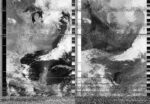
2025-05-31 11:44:00
Goownown Growers
The Seaweed Institute
CAST, Helston, Cornwall, United Kingdom
United Kingdom
NOAA-19

2025-05-31 11:40:00
Hospitalfield
Arbroath, Scotland
Scotland
NOAA-19
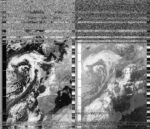
2025-05-31 11:59:00
Cyprus Amateur Radio Society
Nicosia , Cyprus
Cyprus
NOAA-18

2025-05-30 22:15:00
Zack Wettstein
Seattle, United States
United States
NOAA-19

2025-05-31 07:42:00
Cosmos Astronomy Club MIT WPU
Pune, India
India
NOAA-15

2025-05-30 23:21:00
Goownown Growers
The Seaweed Institute
CAST, Helston, Cornwall, United Kingdom
United Kingdom
NOAA-18

2025-05-30 22:00:00
Cyprus Amateur Radio Society
Nicosia , Cyprus
Cyprus
NOAA-19

2025-05-30 22:37:00
Maufox
Mauritius, Mauritius
Mauritius
NOAA-18

2025-05-30 08:42:00
Filip Shatlan and Diana Engelmann
Gainesville, Florida , United States
United States
NOAA-15
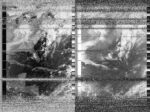
2025-05-30 08:37:00
Heidi Neilson
Gilboa, New York, United States
United States
NOAA-15
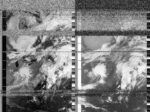
2025-05-30 08:18:00
Iterable pueyrredon
Cordoba , Argentina
Argentina
NOAA-15
2025-05-30 11:53:00
Hospitalfield
Arbroath, Scotland
Scotland
NOAA-19
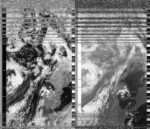
2025-05-30 09:36:00
Foto Colectania
Hangar
Ràdio Web MACBA
Barcelona, Spain
Spain
NOAA-15

2025-05-30 11:22:00
Cosmos Astronomy Club MIT WPU
Pune, India
India
NOAA-18

2025-05-29 22:02:00
Heidi Neilson
Gilboa, New York, United States
United States
NOAA-19
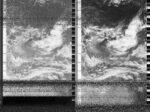
2025-05-29 22:42:00
Iterable pueyrredon
Cordoba , Argentina
Argentina
NOAA-19
2025-05-29 20:21:00
Filip Shatlan and Diana Engelmann
Gainesville, Florida , United States
United States
NOAA-15
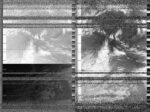
2025-05-29 21:04:00
Iterable pueyrredon
Cordoba , Argentina
Argentina
NOAA-15
2025-05-29 21:59:00
Hospitalfield
Arbroath, Scotland
Scotland
NOAA-19
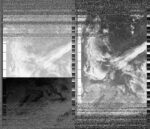
2025-05-29 12:33:00
Zack Wettstein
Seattle, United States
United States
NOAA-18

2025-05-29 22:49:00
Maufox
Mauritius, Mauritius
Mauritius
NOAA-18

2025-05-29 22:48:00
Cosmos Astronomy Club MIT WPU
Pune, India
India
NOAA-18
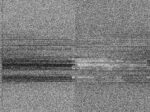
2025-05-29 11:50:00
Iterable pueyrredon
Cordoba , Argentina
Argentina
NOAA-18
2025-05-29 10:15:00
Iterable pueyrredon
Cordoba , Argentina
Argentina
NOAA-19
2025-05-29 13:05:00
Foto Colectania
Hangar
Ràdio Web MACBA
Barcelona, Spain
Spain
NOAA-18

2025-05-29 09:00:00
Goownown Growers
The Seaweed Institute
CAST, Helston, Cornwall, United Kingdom
United Kingdom
NOAA-15

2025-05-28 23:46:00
Filip Shatlan and Diana Engelmann
Gainesville, Florida , United States
United States
NOAA-18
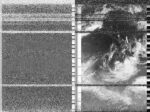
2025-05-28 19:34:00
Zack Wettstein
Seattle, United States
United States
NOAA-15

2025-05-28 22:15:00
Heidi Neilson
Gilboa, New York, United States
United States
NOAA-19

2025-05-28 22:53:00
Iterable pueyrredon
Cordoba , Argentina
Argentina
NOAA-18
2025-05-28 21:31:00
Iterable pueyrredon
Cordoba , Argentina
Argentina
NOAA-15
2025-05-28 20:30:00
Tsonami Arte Sonoro
Valparaiso, Chile
Chile
NOAA-15

2025-05-28 19:51:00
Iterable pueyrredon
Cordoba , Argentina
Argentina
NOAA-15
2025-05-28 22:12:00
Goownown Growers
The Seaweed Institute
CAST, Helston, Cornwall, United Kingdom
United Kingdom
NOAA-19

2025-05-28 23:09:00
Foto Colectania
Hangar
Ràdio Web MACBA
Barcelona, Spain
Spain
NOAA-19

2025-05-28 23:02:00
Maufox
Mauritius, Mauritius
Mauritius
NOAA-18

2025-05-28 19:10:00
Hospitalfield
Arbroath, Scotland
Scotland
NOAA-15
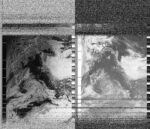
2025-05-28 23:02:00
Cosmos Astronomy Club MIT WPU
Pune, India
India
NOAA-18

2025-05-28 19:25:00
Cyprus Amateur Radio Society
Nicosia , Cyprus
Cyprus
NOAA-15

2025-05-28 10:28:00
Iterable pueyrredon
Cordoba , Argentina
Argentina
NOAA-19
2025-05-28 07:31:00
Iterable pueyrredon
Cordoba , Argentina
Argentina
NOAA-15
2025-05-27 23:42:00
Tsonami Arte Sonoro
Valparaiso, Chile
Chile
NOAA-18

2025-05-27 23:04:00
Iterable pueyrredon
Cordoba , Argentina
Argentina
NOAA-18
2025-05-28 07:13:00
Oppressive Heat
Phnom Penh, Cambodia
Cambodia
NOAA-15

2025-05-27 19:37:00
Heidi Neilson
Gilboa, New York, United States
United States
NOAA-15

2025-05-27 20:17:00
Iterable pueyrredon
Cordoba , Argentina
Argentina
NOAA-15
2025-05-27 22:24:00
Goownown Growers
The Seaweed Institute
CAST, Helston, Cornwall, United Kingdom
United Kingdom
NOAA-19

2025-05-27 23:15:00
Maufox
Mauritius, Mauritius
Mauritius
NOAA-18

2025-05-27 19:37:00
Hospitalfield
Arbroath, Scotland
Scotland
NOAA-15
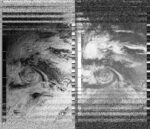
2025-05-27 20:34:00
Foto Colectania
Hangar
Ràdio Web MACBA
Barcelona, Spain
Spain
NOAA-15

2025-05-27 11:23:00
Zack Wettstein
Seattle, United States
United States
NOAA-19

2025-05-27 23:14:00
Cosmos Astronomy Club MIT WPU
Pune, India
India
NOAA-18
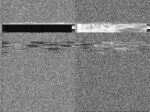
2025-05-27 21:26:00
Oppressive Heat
Phnom Penh, Cambodia
Cambodia
NOAA-19

2025-05-27 10:40:00
Iterable pueyrredon
Cordoba , Argentina
Argentina
NOAA-19
2025-05-27 07:57:00
Iterable pueyrredon
Cordoba , Argentina
Argentina
NOAA-15
2025-05-26 23:56:00
Tsonami Arte Sonoro
Valparaiso, Chile
Chile
NOAA-18

2025-05-26 23:20:00
Iterable pueyrredon
Cordoba , Argentina
Argentina
NOAA-19
2025-05-26 23:16:00
Iterable pueyrredon
Cordoba , Argentina
Argentina
NOAA-18
2025-05-26 23:28:00
Maufox
Mauritius, Mauritius
Mauritius
NOAA-18

2025-05-26 11:36:00
Zack Wettstein
Seattle, United States
United States
NOAA-19

2025-05-26 11:13:00
Heidi Neilson
Gilboa, New York, United States
United States
NOAA-19
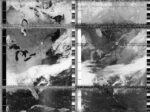
2025-05-26 21:38:00
Oppressive Heat
Phnom Penh, Cambodia
Cambodia
NOAA-19

2025-05-26 10:53:00
Iterable pueyrredon
Cordoba , Argentina
Argentina
NOAA-19
2025-05-26 12:42:00
Goownown Growers
The Seaweed Institute
CAST, Helston, Cornwall, United Kingdom
United Kingdom
NOAA-18

2025-05-26 12:39:00
Hospitalfield
Arbroath, Scotland
Scotland
NOAA-18
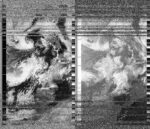
2025-05-26 08:23:00
Iterable pueyrredon
Cordoba , Argentina
Argentina
NOAA-15
2025-05-26 12:08:00
Foto Colectania
Hangar
Ràdio Web MACBA
Barcelona, Spain
Spain
NOAA-19

2025-05-25 23:13:00
Zack Wettstein
Seattle, United States
United States
NOAA-18

2025-05-25 22:49:00
Filip Shatlan and Diana Engelmann
Gainesville, Florida , United States
United States
NOAA-19
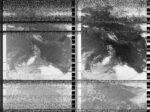
2025-05-25 22:48:00
Heidi Neilson
Gilboa, New York, United States
United States
NOAA-18
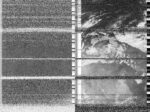
2025-05-25 23:33:00
Iterable pueyrredon
Cordoba , Argentina
Argentina
NOAA-19

2025-05-25 20:09:00
Tsonami Arte Sonoro
Valparaiso, Chile
Chile
NOAA-15

2025-05-25 21:09:00
Iterable pueyrredon
Cordoba , Argentina
Argentina
NOAA-15

2025-05-25 22:58:00
Cyprus Amateur Radio Society
Nicosia , Cyprus
Cyprus
NOAA-18

2025-05-25 23:41:00
Maufox
Mauritius, Mauritius
Mauritius
NOAA-18

2025-05-25 22:04:00
Cosmos Astronomy Club MIT WPU
Pune, India
India
NOAA-19
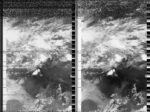
2025-05-25 11:25:00
Heidi Neilson
Gilboa, New York, United States
United States
NOAA-19
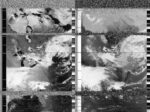
2025-05-25 11:01:00
Iterable pueyrredon
Cordoba , Argentina
Argentina
NOAA-18

2025-05-25 12:55:00
Goownown Growers
The Seaweed Institute
CAST, Helston, Cornwall, United Kingdom
United Kingdom
NOAA-18

2025-05-25 12:21:00
Foto Colectania
Hangar
Ràdio Web MACBA
Barcelona, Spain
Spain
NOAA-19

2025-05-25 09:01:00
Hospitalfield
Arbroath, Scotland
Scotland
NOAA-15
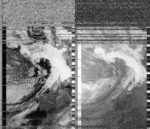
2025-05-25 10:37:00
Oppressive Heat
Phnom Penh, Cambodia
Cambodia
NOAA-18

2025-05-24 23:00:00
Heidi Neilson
Gilboa, New York, United States
United States
NOAA-18

2025-05-24 23:41:00
Iterable pueyrredon
Cordoba , Argentina
Argentina
NOAA-18

2025-05-24 19:39:00
Zack Wettstein
Seattle, United States
United States
NOAA-15

2025-05-24 22:58:00
Hospitalfield
Arbroath, Scotland
Scotland
NOAA-18
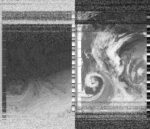
A marked change in pressure. Cool breeze gone. Muggy close heat where before warmth from direct sun. Clear skies replaced by a full array of clouds. Low billowing cumulous and streaky mare's tails above. First rain last night, enough to just wet the ground. A deep inhale of the scent before bed. Train to Dundee along the coast in the morning, the haze is thick over the sea. Tensions run high. There's a far right rally in Dundee (and across Scotland) – well countered and outnumbered but more than anticipated. Union jacks and saltire flags, one that just says 'Jesus' and placards for Reform. They only have rage, we have joy on our side, songs and poems. Our chants ring across the square, louder. Refugees are welcome here. This is what community looks like. This is what solidarity looks like. The crowd breaks up as the student 'revel' begins, ceilidhing in costume as gods and stones and filling the square with messages of peace and love. Whose square? Our square. Crowded and sweaty train home, more factions and colours, but the fans are just happy and sunburnt in their red strips – Aberdeen won the cup.
2025-05-24 23:55:00
Foto Colectania
Hangar
Ràdio Web MACBA
Barcelona, Spain
Spain
NOAA-18

2025-05-24 23:55:00
Maufox
Mauritius, Mauritius
Mauritius
NOAA-18

2025-05-24 19:30:00
Cyprus Amateur Radio Society
Nicosia , Cyprus
Cyprus
NOAA-15

2025-05-24 11:42:00
Filip Shatlan and Diana Engelmann
Gainesville, Florida , United States
United States
NOAA-19
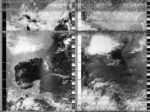
2025-05-24 22:04:00
Oppressive Heat
Phnom Penh, Cambodia
Cambodia
NOAA-19

2025-05-24 11:14:00
Iterable pueyrredon
Cordoba , Argentina
Argentina
NOAA-18

2025-05-24 07:36:00
Iterable pueyrredon
Cordoba , Argentina
Argentina
NOAA-15

2025-05-24 11:32:00
Goownown Growers
The Seaweed Institute
CAST, Helston, Cornwall, United Kingdom
United Kingdom
NOAA-19

2025-05-23 23:14:00
Heidi Neilson
Gilboa, New York, United States
United States
NOAA-18

2025-05-23 23:53:00
Iterable pueyrredon
Cordoba , Argentina
Argentina
NOAA-18

2025-05-23 20:22:00
Iterable pueyrredon
Cordoba , Argentina
Argentina
NOAA-15

2025-05-23 22:31:00
Maufox
Mauritius, Mauritius
Mauritius
NOAA-19

2025-05-23 22:30:00
Cosmos Astronomy Club MIT WPU
Pune, India
India
NOAA-19
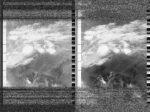
2025-05-23 11:55:00
Filip Shatlan and Diana Engelmann
Gainesville, Florida , United States
United States
NOAA-19
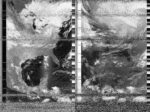
2025-05-23 11:27:00
Iterable pueyrredon
Cordoba , Argentina
Argentina
NOAA-18

2025-05-23 08:02:00
Iterable pueyrredon
Cordoba , Argentina
Argentina
NOAA-15

2025-05-23 11:44:00
Goownown Growers
The Seaweed Institute
CAST, Helston, Cornwall, United Kingdom
United Kingdom
NOAA-19

2025-05-23 11:41:00
Hospitalfield
Arbroath, Scotland
Scotland
NOAA-19
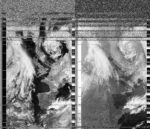
2025-05-23 12:02:00
Cyprus Amateur Radio Society
Nicosia , Cyprus
Cyprus
NOAA-18

2025-05-23 09:19:00
Foto Colectania
Hangar
Ràdio Web MACBA
Barcelona, Spain
Spain
NOAA-15

2025-05-22 22:15:00
Zack Wettstein
Seattle, United States
United States
NOAA-19

2025-05-22 20:48:00
Iterable pueyrredon
Cordoba , Argentina
Argentina
NOAA-15
2025-05-23 06:06:00
Oppressive Heat
Phnom Penh, Cambodia
Cambodia
NOAA-15

2025-05-22 23:23:00
Goownown Growers
The Seaweed Institute
CAST, Helston, Cornwall, United Kingdom
United Kingdom
NOAA-18


Today we had to collect washed up seaweeds for a craft workshop on seaweed pressing. We love the pressing process as a way to engage people with seaweeds.
The day is perfect and I had more time than I usually do to collect. The seaweeds best for pressing are red seaweed that tend to grow at the bottom or below the intertidal zone. When they become dislodged from their holdfasts, dying, they wash up. A northerly wind blew from the land, making the nearshore water calm – it was bliss.
Over the last half a year we have been trying to learn a little how to interpret these beautiful satellite images of familiar landmasses and unfamiliar cloudmasses, not often sure what exactly we are looking at. One thing has been certain over the last few months- it’s been mostly warm and dry. We have seen many clear outlines of the cornish coast send down to us via audio file from the satellites.
It feels sadly fitting to have spent these months with our ground station, thinking more about weather, whilst the coast our work focuses on is current experiencing the warmest heat waves since records began.
Throughout April and May we have seen an ‘unprecedented’ marine heatwave in the northeastern Atlantic. The Met Office has described this heatwave as being unusual in its intensity and persistence.
The last time this was observed was in 2023, at the time the most severe marine heatwave recorded in this part of the ocean. Then, both Ruth and I were working harvesting seaweed at every low tide on The Lizard peninsular. Unaware of the data being gathered that summer, we anecdotally saw a large bleaching and dieback of our favourite seaweed Dulse. We worried about its recovery after this local marine heatwave and we wondered what data was being gathered on the effect of heat on the very shallow waters of the intertide. The Dulse seemed to recover well but we couldn’t help wonder how many of these events the ecosystem could withstand. Now working less physically close to this ecosystem, seeing more extreme marine heatwaves, we are left even more concerned for their future.
Today, whilst the tide is metres above most species, I swim in the unseasonably warm waters and gather dead floating seaweeds, a tool to teach people about the ecosystem. I wonder how many of them have died prematurely due to heat or if this is just the normal natural lifecycle.
2025-05-22 22:01:00
Cyprus Amateur Radio Society
Nicosia , Cyprus
Cyprus
NOAA-19

2025-05-22 22:39:00
Maufox
Mauritius, Mauritius
Mauritius
NOAA-18

2025-05-22 11:59:00
Heidi Neilson
Gilboa, New York, United States
United States
NOAA-18
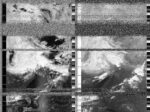
2025-05-22 22:25:00
Oppressive Heat
Phnom Penh, Cambodia
Cambodia
NOAA-18

2025-05-22 11:39:00
Iterable pueyrredon
Cordoba , Argentina
Argentina
NOAA-18
2025-05-22 10:03:00
Iterable pueyrredon
Cordoba , Argentina
Argentina
NOAA-19
2025-05-22 08:50:00
Filip Shatlan and Diana Engelmann
Gainesville, Florida , United States
United States
NOAA-15
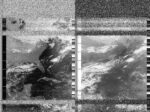
2025-05-22 08:28:00
Iterable pueyrredon
Cordoba , Argentina
Argentina
NOAA-15

2025-05-22 12:55:00
Foto Colectania
Hangar
Ràdio Web MACBA
Barcelona, Spain
Spain
NOAA-18

2025-05-22 11:53:00
Hospitalfield
Arbroath, Scotland
Scotland
NOAA-19
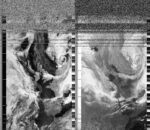
2025-05-21 23:36:00
Filip Shatlan and Diana Engelmann
Gainesville, Florida , United States
United States
NOAA-18
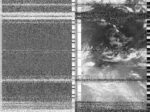
2025-05-21 21:14:00
Iterable pueyrredon
Cordoba , Argentina
Argentina
NOAA-15
2025-05-22 06:30:00
Oppressive Heat
Phnom Penh, Cambodia
Cambodia
NOAA-15

2025-05-21 22:00:00
Hospitalfield
Arbroath, Scotland
Scotland
NOAA-19
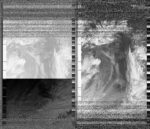




I’ve been saying it’s not rained for a month for a while now. It must be longer. It gives me a sense of unease. Scorched grass. Arid dune-scapes. A feeling that there’s dust hanging in the air. The BBC reports the driest spring in 60 years. Getting frustrated by sprinklers on pristine university lawns, while there’s advice from Scottish Water to take short showers. According to SEPA my area has ‘moderate scarcity’ of water, one step below ‘significant’.
I’ve headed over to Hospitalfield today to check on the Automatic Ground Station. The cool of the inside of the building gives me the feeling of being in my mum’s school classroom during the holidays. It’s quiet, lots of the staff are away on a trip down south. I tell Veronika I’m going up the tower, just for safety. We’ve not received an image in a few days so clearly something is not working. The AGS is housed in the object collections store room, halfway up the spiralling staircase to one of the towers: the antenna on its roof. I have images in my head of the antenna dislodged and dangling down the side of the tower, or the AGS strewn across the floor in bits. Instead when I get to it, nothing has moved and it’s politely telling me what’s wrong on its display screen: Wifi error. After un- and re- plugging the set up it’s back to displaying the time of the next pass (10.00pm) and seems to be working fine. While I wait for the reboot I notice the window is open, and a plump wood pigeon is on the sill, threatening to come inside (it’s clearly been in before). I squeeze past the rail of costumes, and various Victoriana to close it, pushing the window gently into contact with the puffed up bird. It ruffles and quickly drops off, down and away in response.
Out on the roof of the tower I’m drawn again to the bricks, the lichen on the outer walls, and the lightning rod. The antenna has joined this collection of weathering things: as though the tower’s small footprint is some strange elevated plinth. There’s some speckles of patina now on the antenna, and its once-bright copper has dulled somewhat since we installed it: it’s settling in. I have a camera with me to document it in place, and I feel a bit daft as I spin around the tiny area trying to cover all the angles. It’s so bright it’s hard to see if I’m in focus so I blindly snap more than I need. The only cloud is a vague smear on the vast blue sky: like one weak skoosh from a nearly empty can of white spray paint.
From my spinning I notice I can see the water tower from here, on its hill above the pond. It’s sham-medieval, Victorian, and no longer supplies the town with water. I do a quick search on Canmore and find the impetus for its construction: “The drought of 1870 and the increase in housing around Arbroath precipitated the Arbroath Corporation to seek a supplementary water supply.” (Precipitated, ha). Its caverns must still contain gallons and gallons. A few years ago there were plans to turn it into a diver training centre (for offshore workers) but it didn’t come to anything. To the north there’s new housing going up on former grain fields. Peeking through the balustrade (parapet?) I can look over to more of this building’s towers: I know one is an old water tank and the other square one has sundials carved into its sandstone faces.
I head down and outside to find Ross to tell him about the pigeon (and that I’m off the tower). I find him in the back of the walled garden while another small drama is unfolding. Together we watch a man (summoned for this job) very calmly coax a bee colony into a new hive. It’s quite mesmerising to watch the bees drift in the air around us, and the mass of bee-bodies clustered on the elder bush gradually slump into the box. He says there’s four hives nearby, and that these bees are not from those, but he’ll find somewhere for them.
2025-05-21 12:35:00
Zack Wettstein
Seattle, United States
United States
NOAA-18

2025-05-21 22:52:00
Maufox
Mauritius, Mauritius
Mauritius
NOAA-18

2025-05-21 12:12:00
Heidi Neilson
Gilboa, New York, United States
United States
NOAA-18
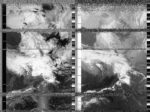
2025-05-21 22:38:00
Oppressive Heat
Phnom Penh, Cambodia
Cambodia
NOAA-18

2025-05-21 23:26:00
Centre for People, Place and Planet
Perth , Australia
Australia
NOAA-18


2025-05-21 11:52:00
Iterable pueyrredon
Cordoba , Argentina
Argentina
NOAA-18
2025-05-21 10:16:00
Iterable pueyrredon
Cordoba , Argentina
Argentina
NOAA-19
2025-05-21 13:08:00
Foto Colectania
Hangar
Ràdio Web MACBA
Barcelona, Spain
Spain
NOAA-18

2025-05-21 09:09:00
Goownown Growers
The Seaweed Institute
CAST, Helston, Cornwall, United Kingdom
United Kingdom
NOAA-15

2025-05-21 10:51:00
Cyprus Amateur Radio Society
Nicosia , Cyprus
Cyprus
NOAA-19

2025-05-20 22:41:00
Zack Wettstein
Seattle, United States
United States
NOAA-19

2025-05-20 23:48:00
Filip Shatlan and Diana Engelmann
Gainesville, Florida , United States
United States
NOAA-18
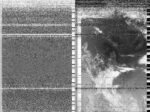
2025-05-20 22:15:00
Heidi Neilson
Gilboa, New York, United States
United States
NOAA-19

2025-05-20 22:56:00
Iterable pueyrredon
Cordoba , Argentina
Argentina
NOAA-19
2025-05-20 22:55:00
Iterable pueyrredon
Cordoba , Argentina
Argentina
NOAA-18
2025-05-20 21:41:00
Iterable pueyrredon
Cordoba , Argentina
Argentina
NOAA-15
2025-05-21 06:56:00
Oppressive Heat
Phnom Penh, Cambodia
Cambodia
NOAA-15

2025-05-20 20:01:00
Iterable pueyrredon
Cordoba , Argentina
Argentina
NOAA-15
2025-05-20 22:13:00
Goownown Growers
The Seaweed Institute
CAST, Helston, Cornwall, United Kingdom
United Kingdom
NOAA-19

2025-05-20 23:10:00
Foto Colectania
Hangar
Ràdio Web MACBA
Barcelona, Spain
Spain
NOAA-19

2025-05-20 23:05:00
Maufox
Mauritius, Mauritius
Mauritius
NOAA-18

2025-05-20 10:28:00
Iterable pueyrredon
Cordoba , Argentina
Argentina
NOAA-19

2025-05-20 07:40:00
Iterable pueyrredon
Cordoba , Argentina
Argentina
NOAA-15

2025-05-20 08:18:00
Cyprus Amateur Radio Society
Nicosia , Cyprus
Cyprus
NOAA-15

2025-05-19 23:08:00
Iterable pueyrredon
Cordoba , Argentina
Argentina
NOAA-19

2025-05-19 23:18:00
Maufox
Mauritius, Mauritius
Mauritius
NOAA-18

2025-05-19 19:46:00
Goownown Growers
The Seaweed Institute
CAST, Helston, Cornwall, United Kingdom
United Kingdom
NOAA-15

2025-05-19 11:24:00
Zack Wettstein
Seattle, United States
United States
NOAA-19

2025-05-19 12:43:00
Filip Shatlan and Diana Engelmann
Gainesville, Florida , United States
United States
NOAA-18
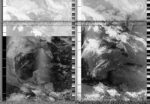
2025-05-19 10:41:00
Iterable pueyrredon
Cordoba , Argentina
Argentina
NOAA-19

2025-05-19 08:25:00
Heidi Neilson
Gilboa, New York, United States
United States
NOAA-15
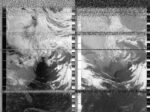
2025-05-19 11:16:00
Cyprus Amateur Radio Society
Nicosia , Cyprus
Cyprus
NOAA-19

2025-05-19 09:24:00
Foto Colectania
Hangar
Ràdio Web MACBA
Barcelona, Spain
Spain
NOAA-15

2025-05-18 20:52:00
Iterable pueyrredon
Cordoba , Argentina
Argentina
NOAA-15

2025-05-18 22:48:00
Cyprus Amateur Radio Society
Nicosia , Cyprus
Cyprus
NOAA-18

2025-05-18 23:31:00
Maufox
Mauritius, Mauritius
Mauritius
NOAA-18

2025-05-18 11:37:00
Zack Wettstein
Seattle, United States
United States
NOAA-19

2025-05-18 11:14:00
Heidi Neilson
Gilboa, New York, United States
United States
NOAA-19
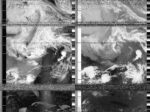
2025-05-18 08:55:00
Filip Shatlan and Diana Engelmann
Gainesville, Florida , United States
United States
NOAA-15
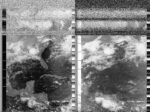
2025-05-18 12:44:00
Goownown Growers
The Seaweed Institute
CAST, Helston, Cornwall, United Kingdom
United Kingdom
NOAA-18

2025-05-18 12:09:00
Foto Colectania
Hangar
Ràdio Web MACBA
Barcelona, Spain
Spain
NOAA-19

2025-05-17 23:16:00
Zack Wettstein
Seattle, United States
United States
NOAA-18

2025-05-18 06:35:00
Oppressive Heat
Phnom Penh, Cambodia
Cambodia
NOAA-15

2025-05-17 23:45:00
Foto Colectania
Hangar
Ràdio Web MACBA
Barcelona, Spain
Spain
NOAA-18

2025-05-17 23:44:00
Maufox
Mauritius, Mauritius
Mauritius
NOAA-18

2025-05-17 22:05:00
Cosmos Astronomy Club MIT WPU
Pune, India
India
NOAA-19
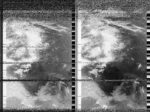
2025-05-17 11:31:00
Filip Shatlan and Diana Engelmann
Gainesville, Florida , United States
United States
NOAA-19
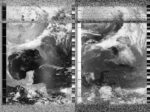
2025-05-17 11:26:00
Heidi Neilson
Gilboa, New York, United States
United States
NOAA-19
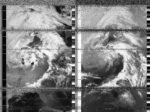
2025-05-17 09:14:00
Goownown Growers
The Seaweed Institute
CAST, Helston, Cornwall, United Kingdom
United Kingdom
NOAA-15

2025-05-16 23:03:00
Heidi Neilson
Gilboa, New York, United States
United States
NOAA-18
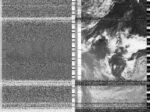
2025-05-16 19:48:00
Zack Wettstein
Seattle, United States
United States
NOAA-15

2025-05-16 22:46:00
Tsonami Arte Sonoro
Valparaiso, Chile
Chile
NOAA-19

2025-05-16 23:57:00
Maufox
Mauritius, Mauritius
Mauritius
NOAA-18

2025-05-16 20:22:00
Foto Colectania
Hangar
Ràdio Web MACBA
Barcelona, Spain
Spain
NOAA-15

2025-05-16 22:17:00
Cosmos Astronomy Club MIT WPU
Pune, India
India
NOAA-19

2025-05-16 11:43:00
Filip Shatlan and Diana Engelmann
Gainesville, Florida , United States
United States
NOAA-19

2025-05-16 11:32:00
Goownown Growers
The Seaweed Institute
CAST, Helston, Cornwall, United Kingdom
United Kingdom
NOAA-19

2025-05-16 11:51:00
Cyprus Amateur Radio Society
Nicosia , Cyprus
Cyprus
NOAA-18

2025-05-15 22:04:00
Zack Wettstein
Seattle, United States
United States
NOAA-19

2025-05-15 23:16:00
Heidi Neilson
Gilboa, New York, United States
United States
NOAA-18

2025-05-15 22:32:00
Maufox
Mauritius, Mauritius
Mauritius
NOAA-19

2025-05-15 08:34:00
Filip Shatlan and Diana Engelmann
Gainesville, Florida , United States
United States
NOAA-15
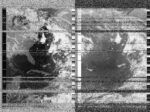
2025-05-15 08:30:00
Heidi Neilson
Gilboa, New York, United States
United States
NOAA-15
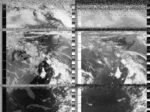
2025-05-15 18:56:00
Oppressive Heat
Phnom Penh, Cambodia
Cambodia
NOAA-15

2025-05-15 11:45:00
Goownown Growers
The Seaweed Institute
CAST, Helston, Cornwall, United Kingdom
United Kingdom
NOAA-19
2025-05-15 11:41:00
Hospitalfield
Arbroath, Scotland
Scotland
NOAA-19
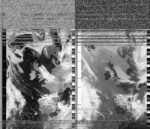
2025-05-15 12:04:00
Cyprus Amateur Radio Society
Nicosia , Cyprus
Cyprus
NOAA-18

2025-05-15 11:38:00
Maufox
Mauritius, Mauritius
Mauritius
NOAA-18

2025-05-15 09:28:00
Foto Colectania
Hangar
Ràdio Web MACBA
Barcelona, Spain
Spain
NOAA-15

2025-05-14 22:16:00
Zack Wettstein
Seattle, United States
United States
NOAA-19

2025-05-14 19:01:00
Zack Wettstein
Seattle, United States
United States
NOAA-15

2025-05-14 20:13:00
Filip Shatlan and Diana Engelmann
Gainesville, Florida , United States
United States
NOAA-15
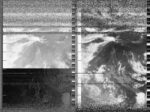
2025-05-15 06:14:00
Oppressive Heat
Phnom Penh, Cambodia
Cambodia
NOAA-15

2025-05-14 23:26:00
Goownown Growers
The Seaweed Institute
CAST, Helston, Cornwall, United Kingdom
United Kingdom
NOAA-18

2025-05-14 12:25:00
Zack Wettstein
Seattle, United States
United States
NOAA-18

2025-05-14 22:02:00
Cyprus Amateur Radio Society
Nicosia , Cyprus
Cyprus
NOAA-19

2025-05-14 09:17:00
Zack Wettstein
Seattle, United States
United States
NOAA-15

2025-05-14 12:02:00
Heidi Neilson
Gilboa, New York, United States
United States
NOAA-18

2025-05-14 22:27:00
Oppressive Heat
Phnom Penh, Cambodia
Cambodia
NOAA-18

2025-05-14 19:34:00
Cosmos Astronomy Club MIT WPU
Pune, India
India
NOAA-15

2025-05-14 11:54:00
Hospitalfield
Arbroath, Scotland
Scotland
NOAA-19

2025-05-13 22:29:00
Zack Wettstein
Seattle, United States
United States
NOAA-19

2025-05-13 23:38:00
Filip Shatlan and Diana Engelmann
Gainesville, Florida , United States
United States
NOAA-18

2025-05-13 19:27:00
Zack Wettstein
Seattle, United States
United States
NOAA-15

2025-05-13 22:03:00
Heidi Neilson
Gilboa, New York, United States
United States
NOAA-19

2025-05-13 20:23:00
Tsonami Arte Sonoro
Valparaiso, Chile
Chile
NOAA-15

2025-05-14 06:39:00
Oppressive Heat Project
Phnom Penh, Cambodia
Cambodia
NOAA-15

2025-05-13 22:57:00
Hangar, Ràdio Web MACBA, Foto Colectania
Barcelona, Spain
Spain
NOAA-19

2025-05-13 12:38:00
Zack Wettstein
Seattle, United States
United States
NOAA-18

2025-05-13 09:18:00
Goownown Growers
The Seaweed Institute
CAST, Helston, Cornwall, United Kingdom
United Kingdom
NOAA-15

2025-05-13 09:15:00
Hospitalfield
Arbroath, Scotland
Scotland
NOAA-15
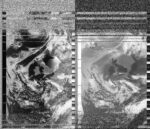
2025-05-13 10:51:00
Cyprus Amateur Radio Society
Nicosia , Cyprus
Cyprus
NOAA-19

2025-05-12 19:53:00
Zack Wettstein
Seattle, United States
United States
NOAA-15

2025-05-12 19:28:00
Heidi Neilson
Gilboa, New York, United States
United States
NOAA-15

2025-05-12 22:13:00
Goownown Growers
The Seaweed Institute
CAST, Helston, Cornwall, United Kingdom
United Kingdom
NOAA-19

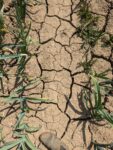
The soil at Goonown Growers is a clay loam so the limited rain over the past month has turned the top layer into a solid crust which cracks. This makes it hard to harvest crops like these leeks without damaging the base, but also cultivate the soil using the hand tools we rely on. We have reprioritised setting up irrigation systems as a result of this dry spring to ensure crop are well watered going into summer, reducing the likelihood of crops going to seed earlier or low yields due to plant stress.
Goonown Growers
2025-05-12 12:51:00
Zack Wettstein
Seattle, United States
United States
NOAA-18

2025-05-12 19:29:00
Hospitalfield
Arbroath, Scotland
Scotland
NOAA-15
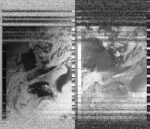
2025-05-12 11:12:00
Zack Wettstein
Seattle, United States
United States
NOAA-19

2025-05-12 23:07:00
Cosmos Astronomy Club MIT WPU
Pune, India
India
NOAA-18
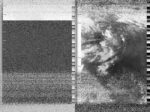
2025-05-12 12:32:00
Filip Shatlan and Diana Engelmann
Gainesville, Florida , United States
United States
NOAA-18

2025-05-12 22:53:00
Oppressive Heat Project
Phnom Penh, Cambodia
Cambodia
NOAA-18





2025-05-11 22:52:00
Zack Wettstein
Seattle, United States
United States
NOAA-18

2025-05-11 19:55:00
Goownown Growers
The Seaweed Institute
CAST, Helston, Cornwall, United Kingdom
United Kingdom
NOAA-15

2025-05-11 11:25:00
Zack Wettstein
Seattle, United States
United States
NOAA-19

2025-05-11 12:45:00
Filip Shatlan and Diana Engelmann
Gainesville, Florida , United States
United States
NOAA-18

2025-05-11 08:56:00
Zack Wettstein
Seattle, United States
United States
NOAA-15

2025-05-11 08:35:00
Heidi Neilson
Gilboa, New York, United States
United States
NOAA-15
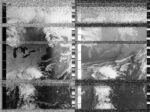
2025-05-11 12:31:00
Hospitalfield
Arbroath, Scotland
Scotland
NOAA-18
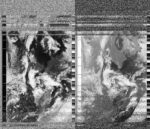
2025-05-11 11:17:00
Cyprus Amateur Radio Society
Nicosia , Cyprus
Cyprus
NOAA-19

2025-05-10 23:05:00
Zack Wettstein
Seattle, United States
United States
NOAA-18

2025-05-10 20:18:00
Filip Shatlan and Diana Engelmann
Gainesville, Florida , United States
United States
NOAA-15

2025-05-10 22:50:00
Cyprus Amateur Radio Society
Nicosia , Cyprus
Cyprus
NOAA-18

2025-05-10 11:37:00
Zack Wettstein
Seattle, United States
United States
NOAA-19

2025-05-10 09:22:00
Zack Wettstein
Seattle, United States
United States
NOAA-15

2025-05-10 11:15:00
Heidi Neilson
Gilboa, New York, United States
United States
NOAA-19

2025-05-10 12:47:00
Goownown Growers
The Seaweed Institute
CAST, Helston, Cornwall, United Kingdom
United Kingdom
NOAA-18

2025-05-10 12:43:00
Hospitalfield
Arbroath, Scotland
Scotland
NOAA-18

2025-05-09 23:18:00
Zack Wettstein
Seattle, United States
United States
NOAA-18

2025-05-09 22:52:00
Heidi Neilson
Gilboa, New York, United States
United States
NOAA-18

2025-05-09 22:51:00
Filip Shatlan and Diana Engelmann
Gainesville, Florida , United States
United States
NOAA-19

2025-05-09 19:31:00
Zack Wettstein
Seattle, United States
United States
NOAA-15

2025-05-09 22:50:00
Hospitalfield
Arbroath, Scotland
Scotland
NOAA-18

2025-05-09 23:03:00
Cyprus Amateur Radio Society
Nicosia , Cyprus
Cyprus
NOAA-18

2025-05-09 11:50:00
Zack Wettstein
Seattle, United States
United States
NOAA-19

2025-05-09 22:05:00
Cosmos Astronomy Club MIT WPU
Pune, India
India
NOAA-19

2025-05-09 13:00:00
Goownown Growers
The Seaweed Institute
CAST, Helston, Cornwall, United Kingdom
United Kingdom
NOAA-18

2025-05-08 23:31:00
Zack Wettstein
Seattle, United States
United States
NOAA-18

2025-05-08 21:51:00
Zack Wettstein
Seattle, United States
United States
NOAA-19

2025-05-08 19:33:00
Heidi Neilson
Gilboa, New York, United States
United States
NOAA-15

2025-05-08 23:02:00
Hospitalfield
Arbroath, Scotland
Scotland
NOAA-18

2025-05-08 11:43:00
Filip Shatlan and Diana Engelmann
Gainesville, Florida , United States
United States
NOAA-19

2025-05-08 08:34:00
Zack Wettstein
Seattle, United States
United States
NOAA-15

2025-05-08 11:33:00
Goownown Growers
The Seaweed Institute
CAST, Helston, Cornwall, United Kingdom
United Kingdom
NOAA-19

2025-05-07 23:44:00
Zack Wettstein
Seattle, United States
United States
NOAA-18

2025-05-07 22:04:00
Zack Wettstein
Seattle, United States
United States
NOAA-19

2025-05-08 07:44:00
Cosmos Astronomy Club MIT WPU
Pune, India
India
NOAA-15
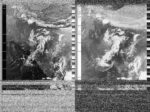
2025-05-08 06:00:00
Oppressive Heat Project
Phnom Penh, Cambodia
Cambodia
NOAA-15
2025-05-07 23:15:00
Goownown Growers
The Seaweed Institute
CAST, Helston, Cornwall, United Kingdom
United Kingdom
NOAA-18

2025-05-07 12:15:00
Zack Wettstein
Seattle, United States
United States
NOAA-18

2025-05-07 21:49:00
Cyprus Amateur Radio Society
Nicosia , Cyprus
Cyprus
NOAA-19

2025-05-07 09:00:00
Zack Wettstein
Seattle, United States
United States
NOAA-15

2025-05-07 19:18:00
Cosmos Astronomy Club MIT WPU
Pune, India
India
NOAA-15
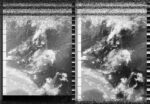
2025-05-07 08:44:00
Filip Shatlan and Diana Engelmann
Gainesville, Florida , United States
United States
NOAA-15

2025-05-07 08:39:00
Heidi Neilson
Gilboa, New York, United States
United States
NOAA-15

2025-05-07 11:42:00
Hospitalfield
Arbroath, Scotland
Scotland
NOAA-19
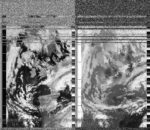
2025-05-06 23:57:00
Zack Wettstein
Seattle, United States
United States
NOAA-18

2025-05-06 22:17:00
Zack Wettstein
Seattle, United States
United States
NOAA-19

2025-05-06 19:10:00
Zack Wettstein
Seattle, United States
United States
NOAA-15

2025-05-06 20:22:00
Filip Shatlan and Diana Engelmann
Gainesville, Florida , United States
United States
NOAA-15

2025-05-07 06:24:00
Oppressive Heat Project
Phnom Penh, Cambodia
Cambodia
NOAA-15

2025-05-06 23:28:00
Goownown Growers
The Seaweed Institute
CAST, Helston, Cornwall, United Kingdom
United Kingdom
NOAA-18

2025-05-06 21:48:00
Hospitalfield
Arbroath, Scotland
Scotland
NOAA-19
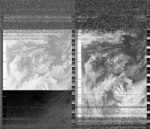
2025-05-06 22:02:00
Cyprus Amateur Radio Society
Nicosia , Cyprus
Cyprus
NOAA-19

2025-05-06 12:05:00
Heidi Neilson
Gilboa, New York, United States
United States
NOAA-18

2025-05-06 12:00:00
Hangar, Ràdio Web MACBA, Foto Colectania
Barcelona, Spain
Spain
NOAA-18


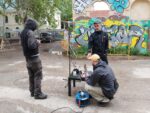
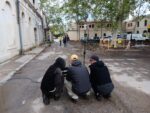

2025-05-06 11:30:00
Cosmos Astronomy Club MIT WPU
Pune, India
India
NOAA-18

2025-05-05 22:29:00
Zack Wettstein
Seattle, United States
United States
NOAA-19

2025-05-05 19:36:00
Zack Wettstein
Seattle, United States
United States
NOAA-15

2025-05-05 22:04:00
Heidi Neilson
Gilboa, New York, United States
United States
NOAA-19
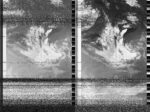
2025-05-06 06:48:00
Oppressive Heat Project
Phnom Penh, Cambodia
Cambodia
NOAA-15

2025-05-05 22:01:00
Goownown Growers
The Seaweed Institute
CAST, Helston, Cornwall, United Kingdom
United Kingdom
NOAA-19

2025-05-05 22:01:00
Hospitalfield
Arbroath, Scotland
Scotland
NOAA-19
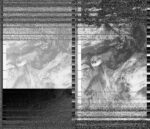
2025-05-05 12:40:00
Zack Wettstein
Seattle, United States
United States
NOAA-18

2025-05-05 22:56:00
Cosmos Astronomy Club MIT WPU
Pune, India
India
NOAA-18

2025-05-05 12:21:00
Filip Shatlan and Diana Engelmann
Gainesville, Florida , United States
United States
NOAA-18

2025-05-04 23:54:00
Filip Shatlan and Diana Engelmann
Gainesville, Florida , United States
United States
NOAA-18
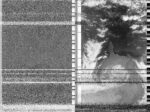
2025-05-04 19:38:00
Heidi Neilson
Gilboa, New York, United States
United States
NOAA-15

2025-05-04 22:13:00
Hospitalfield
Arbroath, Scotland
Scotland
NOAA-19

2025-05-04 19:38:00
Goownown Growers
The Seaweed Institute
CAST, Helston, Cornwall, United Kingdom
United Kingdom
NOAA-15

2025-05-04 11:04:00
Cyprus Amateur Radio Society
Nicosia , Cyprus
Cyprus
NOAA-19

2025-05-04 07:48:00
Cosmos Astronomy Club MIT WPU
Pune, India
India
NOAA-15

2025-05-04 06:04:00
Oppressive Heat Project
Phnom Penh, Cambodia
Cambodia
NOAA-15
2025-05-03 22:26:00
Goownown Growers
The Seaweed Institute
CAST, Helston, Cornwall, United Kingdom
United Kingdom
NOAA-19

2025-05-03 22:40:00
Cyprus Amateur Radio Society
Nicosia , Cyprus
Cyprus
NOAA-18

2025-05-03 11:03:00
Heidi Neilson
Gilboa, New York, United States
United States
NOAA-19
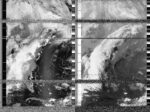
2025-05-03 21:28:00
Oppressive Heat Project
Phnom Penh, Cambodia
Cambodia
NOAA-19

2025-05-03 19:22:00
Cosmos Astronomy Club MIT WPU
Pune, India
India
NOAA-15

2025-05-03 08:48:00
Filip Shatlan and Diana Engelmann
Gainesville, Florida , United States
United States
NOAA-15

2025-05-03 12:33:00
Hospitalfield
Arbroath, Scotland
Scotland
NOAA-18

2025-05-02 22:39:00
Filip Shatlan and Diana Engelmann
Gainesville, Florida , United States
United States
NOAA-19

2025-05-02 22:53:00
Cyprus Amateur Radio Society
Nicosia , Cyprus
Cyprus
NOAA-18

2025-05-02 21:53:00
Cosmos Astronomy Club MIT WPU
Pune, India
India
NOAA-19
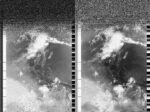
2025-05-02 11:15:00
Heidi Neilson
Gilboa, New York, United States
United States
NOAA-19

2025-05-02 12:46:00
Hospitalfield
Arbroath, Scotland
Scotland
NOAA-18
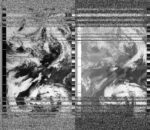
2025-05-02 09:06:00
Goownown Growers
The Seaweed Institute
CAST, Helston, Cornwall, United Kingdom
United Kingdom
NOAA-15

2025-05-01 22:55:00
Heidi Neilson
Gilboa, New York, United States
United States
NOAA-18
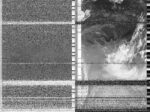
2025-05-01 22:52:00
Hospitalfield
Arbroath, Scotland
Scotland
NOAA-18
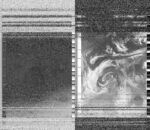
2025-05-01 22:06:00
Cosmos Astronomy Club MIT WPU
Pune, India
India
NOAA-19
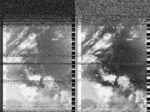
2025-05-01 11:31:00
Filip Shatlan and Diana Engelmann
Gainesville, Florida , United States
United States
NOAA-19
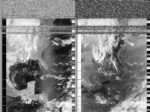
2025-05-01 13:02:00
Goownown Growers
The Seaweed Institute
CAST, Helston, Cornwall, United Kingdom
United Kingdom
NOAA-18

2025-05-01 08:15:00
Cyprus Amateur Radio Society
Nicosia , Cyprus
Cyprus
NOAA-15
2025-04-30 23:07:00
Heidi Neilson
Gilboa, New York, United States
United States
NOAA-18
2025-04-30 23:04:00
Filip Shatlan and Diana Engelmann
Gainesville, Florida , United States
United States
NOAA-19
2025-04-30 23:05:00
Hospitalfield
Arbroath, Scotland
Scotland
NOAA-18
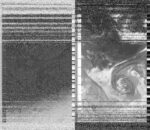
2025-04-30 19:43:00
Goownown Growers
The Seaweed Institute
CAST, Helston, Cornwall, United Kingdom
United Kingdom
NOAA-15

2025-04-30 11:56:00
Cyprus Amateur Radio Society
Nicosia , Cyprus
Cyprus
NOAA-18

2025-04-29 23:20:00
Heidi Neilson
Gilboa, New York, United States
United States
NOAA-18
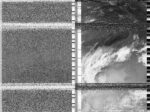
2025-04-30 07:53:00
Cosmos Astronomy Club MIT WPU
Pune, India
India
NOAA-15
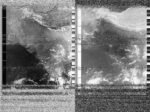
2025-04-30 06:08:00
Oppressive Heat Project
Phnom Penh, Cambodia
Cambodia
NOAA-15

2025-04-29 21:50:00
Cyprus Amateur Radio Society
Nicosia , Cyprus
Cyprus
NOAA-19

2025-04-29 19:27:00
Cosmos Astronomy Club MIT WPU
Pune, India
India
NOAA-15

2025-04-29 08:53:00
Filip Shatlan and Diana Engelmann
Gainesville, Florida , United States
United States
NOAA-15
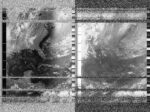
2025-04-29 11:46:00
Goownown Growers
The Seaweed Institute
CAST, Helston, Cornwall, United Kingdom
United Kingdom
NOAA-19

2025-04-29 11:43:00
Hospitalfield
Arbroath, Scotland
Scotland
NOAA-19

2025-04-28 22:17:00
Zack Wettstein
Seattle, United States
United States
NOAA-19

2025-04-28 19:19:00
Zack Wettstein
Seattle, United States
United States
NOAA-15

2025-04-28 20:32:00
Filip Shatlan and Diana Engelmann
Gainesville, Florida , United States
United States
NOAA-15

2025-04-29 06:32:00
Oppressive Heat Project
Phnom Penh, Cambodia
Cambodia
NOAA-15

2025-04-28 21:49:00
Hospitalfield
Arbroath, Scotland
Scotland
NOAA-19

2025-04-28 12:30:00
Zack Wettstein
Seattle, United States
United States
NOAA-18

2025-04-28 22:02:00
Cyprus Amateur Radio Society
Nicosia , Cyprus
Cyprus
NOAA-19

2025-04-28 22:46:00
Cosmos Astronomy Club MIT WPU
Pune, India
India
NOAA-18

2025-04-28 12:07:00
Heidi Neilson
Gilboa, New York, United States
United States
NOAA-18
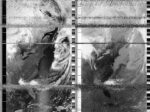
2025-04-28 09:11:00
Goownown Growers
The Seaweed Institute
CAST, Helston, Cornwall, United Kingdom
United Kingdom
NOAA-15

2025-04-27 19:45:00
Zack Wettstein
Seattle, United States
United States
NOAA-15

2025-04-27 22:04:00
Heidi Neilson
Gilboa, New York, United States
United States
NOAA-19
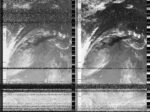
2025-04-28 06:57:00
Oppressive Heat Project
Phnom Penh, Cambodia
Cambodia
NOAA-15

2025-04-27 22:02:00
Goownown Growers
The Seaweed Institute
CAST, Helston, Cornwall, United Kingdom
United Kingdom
NOAA-19

2025-04-27 12:43:00
Zack Wettstein
Seattle, United States
United States
NOAA-18

2025-04-27 19:21:00
Hospitalfield
Arbroath, Scotland
Scotland
NOAA-15
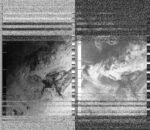
2025-04-27 12:24:00
Filip Shatlan and Diana Engelmann
Gainesville, Florida , United States
United States
NOAA-18

2025-04-27 10:52:00
Cyprus Amateur Radio Society
Nicosia , Cyprus
Cyprus
NOAA-19

2025-04-26 22:14:00
Goownown Growers
The Seaweed Institute
CAST, Helston, Cornwall, United Kingdom
United Kingdom
NOAA-19

2025-04-26 22:14:00
Hospitalfield
Arbroath, Scotland
Scotland
NOAA-19
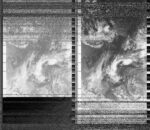
2025-04-26 23:11:00
Cosmos Astronomy Club MIT WPU
Pune, India
India
NOAA-18

2025-04-26 12:37:00
Filip Shatlan and Diana Engelmann
Gainesville, Florida , United States
United States
NOAA-18

2025-04-26 08:27:00
Heidi Neilson
Gilboa, New York, United States
United States
NOAA-15
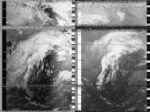
2025-04-26 18:53:00
Oppressive Heat Project
Phnom Penh, Cambodia
Cambodia
NOAA-15


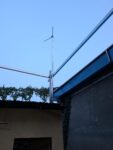
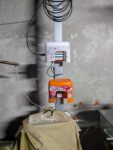

2025-04-26 11:05:00
Cyprus Amateur Radio Society
Nicosia , Cyprus
Cyprus
NOAA-19

2025-04-25 20:10:00
Filip Shatlan and Diana Engelmann
Gainesville, Florida , United States
United States
NOAA-15

2025-04-25 22:42:00
Cyprus Amateur Radio Society
Nicosia , Cyprus
Cyprus
NOAA-18

2025-04-25 11:03:00
Heidi Neilson
Gilboa, New York, United States
United States
NOAA-19

2025-04-25 19:31:00
Cosmos Astronomy Club MIT WPU
Pune, India
India
NOAA-15

2025-04-25 12:39:00
Goownown Growers
The Seaweed Institute
CAST, Helston, Cornwall, United Kingdom
United Kingdom
NOAA-18

2025-04-25 12:35:00
Hospitalfield
Arbroath, Scotland
Scotland
NOAA-18
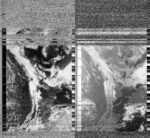
2025-04-24 22:55:00
Cyprus Amateur Radio Society
Nicosia , Cyprus
Cyprus
NOAA-18

2025-04-24 11:19:00
Filip Shatlan and Diana Engelmann
Gainesville, Florida , United States
United States
NOAA-19

2025-04-24 11:15:00
Heidi Neilson
Gilboa, New York, United States
United States
NOAA-19
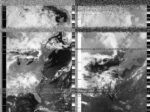
2025-04-24 09:15:00
Goownown Growers
The Seaweed Institute
CAST, Helston, Cornwall, United Kingdom
United Kingdom
NOAA-15

2025-04-24 09:12:00
Hospitalfield
Arbroath, Scotland
Scotland
NOAA-15
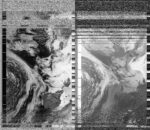
2025-04-23 22:51:00
Filip Shatlan and Diana Engelmann
Gainesville, Florida , United States
United States
NOAA-19
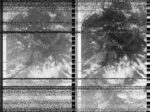
2025-04-23 19:25:00
Heidi Neilson
Gilboa, New York, United States
United States
NOAA-15

2025-04-23 23:08:00
Cyprus Amateur Radio Society
Nicosia , Cyprus
Cyprus
NOAA-18

2025-04-23 19:26:00
Goownown Growers
The Seaweed Institute
CAST, Helston, Cornwall, United Kingdom
United Kingdom
NOAA-15

2025-04-23 19:26:00
Hospitalfield
Arbroath, Scotland
Scotland
NOAA-15
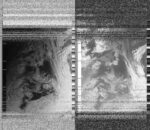
2025-04-22 19:52:00
Goownown Growers
The Seaweed Institute
CAST, Helston, Cornwall, United Kingdom
United Kingdom
NOAA-15

2025-04-22 22:20:00
Cosmos Astronomy Club MIT WPU
Pune, India
India
NOAA-19

2025-04-22 11:44:00
Filip Shatlan and Diana Engelmann
Gainesville, Florida , United States
United States
NOAA-19

2025-04-22 08:31:00
Heidi Neilson
Gilboa, New York, United States
United States
NOAA-15

2025-04-22 11:31:00
Hospitalfield
Arbroath, Scotland
Scotland
NOAA-19
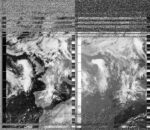
2025-04-22 11:59:00
Cyprus Amateur Radio Society
Nicosia , Cyprus
Cyprus
NOAA-18

2025-04-22 08:03:00
Cosmos Astronomy Club MIT WPU
Pune, India
India
NOAA-15

2025-04-21 20:15:00
Filip Shatlan and Diana Engelmann
Gainesville, Florida , United States
United States
NOAA-15
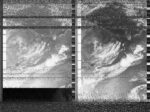
2025-04-21 23:20:00
Goownown Growers
The Seaweed Institute
CAST, Helston, Cornwall, United Kingdom
United Kingdom
NOAA-18

2025-04-21 21:50:00
Cyprus Amateur Radio Society
Nicosia , Cyprus
Cyprus
NOAA-19

2025-04-21 22:37:00
Cosmos Astronomy Club MIT WPU
Pune, India
India
NOAA-18

2025-04-21 11:56:00
Heidi Neilson
Gilboa, New York, United States
United States
NOAA-18
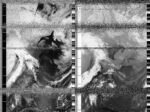
2025-04-21 19:36:00
Cosmos Astronomy Club MIT WPU
Pune, India
India
NOAA-15

2025-04-21 11:43:00
Hospitalfield
Arbroath, Scotland
Scotland
NOAA-19
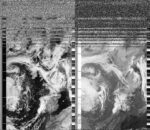
2025-04-21 11:23:00
Cosmos Astronomy Club MIT WPU
Pune, India
India
NOAA-18

2025-04-20 23:32:00
Filip Shatlan and Diana Engelmann
Gainesville, Florida , United States
United States
NOAA-18

2025-04-20 23:33:00
Goownown Growers
The Seaweed Institute
CAST, Helston, Cornwall, United Kingdom
United Kingdom
NOAA-18

2025-04-20 21:50:00
Hospitalfield
Arbroath, Scotland
Scotland
NOAA-19
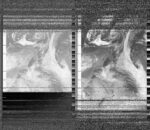
2025-04-20 22:03:00
Cyprus Amateur Radio Society
Nicosia , Cyprus
Cyprus
NOAA-19

2025-04-20 12:09:00
Heidi Neilson
Gilboa, New York, United States
United States
NOAA-18

2025-04-20 11:35:00
Cosmos Astronomy Club MIT WPU
Pune, India
India
NOAA-18




2025-04-19 23:46:00
Filip Shatlan and Diana Engelmann
Gainesville, Florida , United States
United States
NOAA-18

2025-04-19 22:04:00
Heidi Neilson
Gilboa, New York, United States
United States
NOAA-19
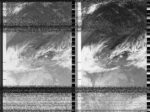
2025-04-19 22:02:00
Goownown Growers
The Seaweed Institute
CAST, Helston, Cornwall, United Kingdom
United Kingdom
NOAA-19

2025-04-19 22:02:00
Hospitalfield
Arbroath, Scotland
Scotland
NOAA-19
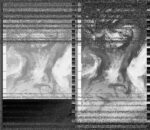
2025-04-19 23:02:00
Cosmos Astronomy Club MIT WPU
Pune, India
India
NOAA-18

2025-04-19 10:53:00
Cyprus Amateur Radio Society
Nicosia , Cyprus
Cyprus
NOAA-19

2025-04-18 23:58:00
Filip Shatlan and Diana Engelmann
Gainesville, Florida , United States
United States
NOAA-18

2025-04-18 22:15:00
Goownown Growers
The Seaweed Institute
CAST, Helston, Cornwall, United Kingdom
United Kingdom
NOAA-19

2025-04-18 23:14:00
Cosmos Astronomy Club MIT WPU
Pune, India
India
NOAA-18

2025-04-18 08:36:00
Heidi Neilson
Gilboa, New York, United States
United States
NOAA-15

2025-04-18 12:25:00
Hospitalfield
Arbroath, Scotland
Scotland
NOAA-18
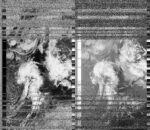
2025-04-18 11:06:00
Cyprus Amateur Radio Society
Nicosia , Cyprus
Cyprus
NOAA-19

2025-04-17 22:45:00
Cyprus Amateur Radio Society
Nicosia , Cyprus
Cyprus
NOAA-18

2025-04-17 11:04:00
Heidi Neilson
Gilboa, New York, United States
United States
NOAA-19
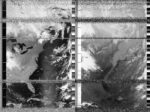
2025-04-17 12:41:00
Goownown Growers
The Seaweed Institute
CAST, Helston, Cornwall, United Kingdom
United Kingdom
NOAA-18

2025-04-17 12:38:00
Hospitalfield
Arbroath, Scotland
Scotland
NOAA-18
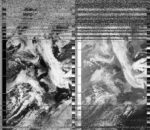
2025-04-16 11:16:00
Heidi Neilson
Gilboa, New York, United States
United States
NOAA-19
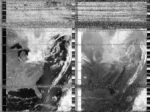
2025-04-16 12:54:00
Goownown Growers
The Seaweed Institute
CAST, Helston, Cornwall, United Kingdom
United Kingdom
NOAA-18

2025-04-16 12:51:00
Hospitalfield
Arbroath, Scotland
Scotland
NOAA-18
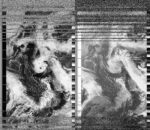
2025-04-15 22:59:00
Heidi Neilson
Gilboa, New York, United States
United States
NOAA-18

2025-04-15 22:57:00
Hospitalfield
Arbroath, Scotland
Scotland
NOAA-18
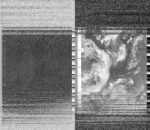
2025-04-15 19:35:00
Goownown Growers
The Seaweed Institute
CAST, Helston, Cornwall, United Kingdom
United Kingdom
NOAA-15

2025-04-15 22:08:00
Cosmos Astronomy Club MIT WPU
Pune, India
India
NOAA-19

2025-04-14 23:10:00
Goownown Growers
The Seaweed Institute
CAST, Helston, Cornwall, United Kingdom
United Kingdom
NOAA-18

2025-04-14 23:09:00
Hospitalfield
Arbroath, Scotland
Scotland
NOAA-18

2025-04-14 12:09:00
Zack Wettstein
Seattle, United States
United States
NOAA-18

2025-04-14 09:02:00
Zack Wettstein
Seattle, United States
United States
NOAA-15

2025-04-14 08:41:00
Heidi Neilson
Gilboa, New York, United States
United States
NOAA-15

2025-04-13 22:06:00
Zack Wettstein
Seattle, United States
United States
NOAA-19

2025-04-13 19:11:00
Zack Wettstein
Seattle, United States
United States
NOAA-15

2025-04-13 20:24:00
Filip Shatlan and Diana Engelmann
Gainesville, Florida , United States
United States
NOAA-15

2025-04-13 12:22:00
Zack Wettstein
Seattle, United States
United States
NOAA-18

2025-04-13 11:59:00
Heidi Neilson
Gilboa, New York, United States
United States
NOAA-18

2025-04-13 11:47:00
Goownown Growers
The Seaweed Institute
CAST, Helston, Cornwall, United Kingdom
United Kingdom
NOAA-19

2025-04-13 08:59:00
Hospitalfield
Arbroath, Scotland
Scotland
NOAA-15
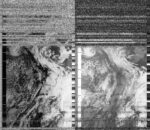
2025-04-12 22:18:00
Zack Wettstein
Seattle, United States
United States
NOAA-19

2025-04-12 19:37:00
Zack Wettstein
Seattle, United States
United States
NOAA-15

2025-04-12 21:50:00
Hospitalfield
Arbroath, Scotland
Scotland
NOAA-19
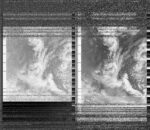
2025-04-12 12:35:00
Zack Wettstein
Seattle, United States
United States
NOAA-18

2025-04-12 12:16:00
Filip Shatlan and Diana Engelmann
Gainesville, Florida , United States
United States
NOAA-18

2025-04-12 12:12:00
Heidi Neilson
Gilboa, New York, United States
United States
NOAA-18

2025-04-12 12:00:00
Goownown Growers
The Seaweed Institute
CAST, Helston, Cornwall, United Kingdom
United Kingdom
NOAA-19

2025-04-11 22:31:00
Zack Wettstein
Seattle, United States
United States
NOAA-19

2025-04-11 23:48:00
Filip Shatlan and Diana Engelmann
Gainesville, Florida , United States
United States
NOAA-18

2025-04-11 22:05:00
Heidi Neilson
Gilboa, New York, United States
United States
NOAA-19
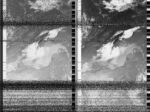
2025-04-11 22:02:00
Hospitalfield
Arbroath, Scotland
Scotland
NOAA-19
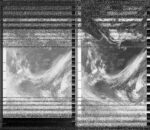
2025-04-11 12:47:00
Zack Wettstein
Seattle, United States
United States
NOAA-18

2025-04-11 19:39:00
Goownown Growers
The Seaweed Institute
CAST, Helston, Cornwall, United Kingdom
United Kingdom
NOAA-15

2025-04-11 08:40:00
Zack Wettstein
Seattle, United States
United States
NOAA-15

2025-04-10 22:49:00
Zack Wettstein
Seattle, United States
United States
NOAA-18

2025-04-10 22:15:00
Goownown Growers
The Seaweed Institute
CAST, Helston, Cornwall, United Kingdom
United Kingdom
NOAA-19

2025-04-10 11:14:00
Zack Wettstein
Seattle, United States
United States
NOAA-19

2025-04-10 09:06:00
Zack Wettstein
Seattle, United States
United States
NOAA-15

2025-04-10 19:24:00
Cosmos Astronomy Club MIT WPU
Pune, India
India
NOAA-15

2025-04-10 08:48:00
Filip Shatlan and Diana Engelmann
Gainesville, Florida , United States
United States
NOAA-15
2025-04-10 08:45:00
Heidi Neilson
Gilboa, New York, United States
United States
NOAA-15

2025-04-10 12:27:00
Hospitalfield
Arbroath, Scotland
Scotland
NOAA-18
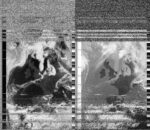
Unseasonably hot for April. A sustained period of dry weather and clear skies. Dusty streets, high pollution and tree pollen adrift. Throat scratch. Can't actually remember the last time it rained. Reports of wild fires on the west coast, on Arran and Bute. It's the school holidays. Another news report of chaos at East coast beaches, masses of people flocking to the sea. Ice cream headaches for North sea dookers. As one of them, met an unexpected headwind cycling east from Arbroath to a beach, but the breeze felt hot. Wind sock dancing. And still cold at night.
2025-04-09 22:57:00
Zack Wettstein
Seattle, United States
United States
NOAA-19

2025-04-09 21:16:00
Zack Wettstein
Seattle, United States
United States
NOAA-19

2025-04-09 23:31:00
Vienna Automatic
Vienna, Austria
Austria
NOAA-18

2025-04-09 21:43:00
Cosmos Astronomy Club MIT WPU
Pune, India
India
NOAA-19

2025-04-09 11:04:00
Heidi Neilson
Gilboa, New York, United States
United States
NOAA-19

2025-04-09 09:07:00
Goownown Growers
The Seaweed Institute
CAST, Helston, Cornwall, United Kingdom
United Kingdom
NOAA-15

2025-04-09 09:03:00
Hospitalfield
Arbroath, Scotland
Scotland
NOAA-15

2025-04-08 23:15:00
Zack Wettstein
Seattle, United States
United States
NOAA-18

2025-04-08 19:41:00
Zack Wettstein
Seattle, United States
United States
NOAA-15

2025-04-08 11:40:00
Zack Wettstein
Seattle, United States
United States
NOAA-19

2025-04-08 19:18:00
Hospitalfield
Arbroath, Scotland
Scotland
NOAA-15

2025-04-08 21:56:00
Cosmos Astronomy Club MIT WPU
Pune, India
India
NOAA-19

2025-04-08 11:20:00
Filip Shatlan and Diana Engelmann
Gainesville, Florida , United States
United States
NOAA-19

2025-04-08 11:17:00
Heidi Neilson
Gilboa, New York, United States
United States
NOAA-19

2025-04-08 12:56:00
Goownown Growers
The Seaweed Institute
CAST, Helston, Cornwall, United Kingdom
United Kingdom
NOAA-18

2025-04-07 23:28:00
Zack Wettstein
Seattle, United States
United States
NOAA-18

2025-04-07 21:41:00
Zack Wettstein
Seattle, United States
United States
NOAA-19

2025-04-07 23:02:00
Heidi Neilson
Gilboa, New York, United States
United States
NOAA-18

2025-04-07 22:52:00
Filip Shatlan and Diana Engelmann
Gainesville, Florida , United States
United States
NOAA-19
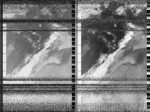
2025-04-07 22:59:00
Hospitalfield
Arbroath, Scotland
Scotland
NOAA-18
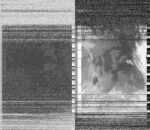
2025-04-07 19:44:00
Goownown Growers
The Seaweed Institute
CAST, Helston, Cornwall, United Kingdom
United Kingdom
NOAA-15

2025-04-07 12:29:00
Vienna Automatic
Vienna, Austria
Austria
NOAA-18

2025-04-06 21:54:00
Zack Wettstein
Seattle, United States
United States
NOAA-19

2025-04-06 23:15:00
Heidi Neilson
Gilboa, New York, United States
United States
NOAA-18

2025-04-06 23:12:00
Goownown Growers
The Seaweed Institute
CAST, Helston, Cornwall, United Kingdom
United Kingdom
NOAA-18

2025-04-06 12:11:00
Zack Wettstein
Seattle, United States
United States
NOAA-18

2025-04-06 19:29:00
Vienna Automatic
Vienna, Austria
Austria
NOAA-15

2025-04-06 09:11:00
Zack Wettstein
Seattle, United States
United States
NOAA-15

2025-04-06 08:53:00
Filip Shatlan and Diana Engelmann
Gainesville, Florida , United States
United States
NOAA-15

2025-04-06 11:31:00
Hospitalfield
Arbroath, Scotland
Scotland
NOAA-19
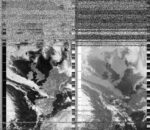
2025-04-05 22:06:00
Zack Wettstein
Seattle, United States
United States
NOAA-19

2025-04-05 19:20:00
Zack Wettstein
Seattle, United States
United States
NOAA-15

2025-04-05 23:25:00
Goownown Growers
The Seaweed Institute
CAST, Helston, Cornwall, United Kingdom
United Kingdom
NOAA-18

2025-04-05 12:24:00
Zack Wettstein
Seattle, United States
United States
NOAA-18

2025-04-05 12:01:00
Heidi Neilson
Gilboa, New York, United States
United States
NOAA-18

2025-04-05 11:08:00
Vienna Automatic
Vienna, Austria
Austria
NOAA-19

2025-04-05 09:08:00
Hospitalfield
Arbroath, Scotland
Scotland
NOAA-15
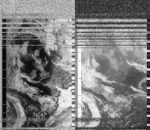
"To discuss the weather together = this it’s all the same of talking/ not talking about love." Barthes, The Preparation of The Novel
Familiar but ever shifting images. A view from above. From the ground it’s been clear skies, daffodils, fire crackle, cold hands, cold breeze, hot cheeks, happy tears. Familiar but ever shifting images.
Always contradictions. To talk/ not talk about love in times of genocide. To talk/ not talk about weather in times like these.
2025-04-04 22:19:00
Zack Wettstein
Seattle, United States
United States
NOAA-19

2025-04-04 23:37:00
Filip Shatlan and Diana Engelmann
Gainesville, Florida , United States
United States
NOAA-18

2025-04-04 19:46:00
Zack Wettstein
Seattle, United States
United States
NOAA-15

2025-04-04 22:57:00
Vienna Automatic
Vienna, Austria
Austria
NOAA-18

2025-04-04 12:37:00
Zack Wettstein
Seattle, United States
United States
NOAA-18

2025-04-04 19:22:00
Hospitalfield
Arbroath, Scotland
Scotland
NOAA-15

2025-04-04 12:14:00
Heidi Neilson
Gilboa, New York, United States
United States
NOAA-18

2025-04-04 12:00:00
Goownown Growers
The Seaweed Institute
CAST, Helston, Cornwall, United Kingdom
United Kingdom
NOAA-19

2025-04-04 08:21:00
Cyprus Amateur Radio Society
Nicosia , Cyprus
Cyprus
NOAA-15

2025-04-03 23:09:00
Vienna Automatic
Vienna, Austria
Austria
NOAA-18

2025-04-03 22:02:00
Hospitalfield
Arbroath, Scotland
Scotland
NOAA-19
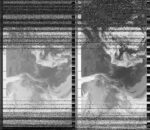
2025-04-03 12:50:00
Zack Wettstein
Seattle, United States
United States
NOAA-18

2025-04-03 19:49:00
Goownown Growers
The Seaweed Institute
CAST, Helston, Cornwall, United Kingdom
United Kingdom
NOAA-15

2025-04-03 11:02:00
Zack Wettstein
Seattle, United States
United States
NOAA-19

2025-04-03 08:49:00
Zack Wettstein
Seattle, United States
United States
NOAA-15

2025-04-03 08:28:00
Heidi Neilson
Gilboa, New York, United States
United States
NOAA-15

2025-04-03 10:54:00
Cyprus Amateur Radio Society
Nicosia , Cyprus
Cyprus
NOAA-19

2025-04-02 22:51:00
Zack Wettstein
Seattle, United States
United States
NOAA-18

2025-04-02 22:15:00
Goownown Growers
The Seaweed Institute
CAST, Helston, Cornwall, United Kingdom
United Kingdom
NOAA-19

2025-04-02 22:15:00
Hospitalfield
Arbroath, Scotland
Scotland
NOAA-19
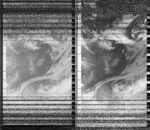
2025-04-02 11:15:00
Zack Wettstein
Seattle, United States
United States
NOAA-19

2025-04-02 19:34:00
Vienna Automatic
Vienna, Austria
Austria
NOAA-15

2025-04-02 09:15:00
Zack Wettstein
Seattle, United States
United States
NOAA-15

2025-04-02 10:52:00
Heidi Neilson
Gilboa, New York, United States
United States
NOAA-19

2025-04-02 08:57:00
Filip Shatlan and Diana Engelmann
Gainesville, Florida , United States
United States
NOAA-15

2025-04-02 12:30:00
Hospitalfield
Arbroath, Scotland
Scotland
NOAA-18





At 12.30 the ground station recorded this pass. At 13.00 I was on the other side of town and heard a sonic boom. Squinted up in the sun to see two low flying jets at high speed, heading out to sea, leaving white trails on a bright blue sky. We aren't far from a military base, after all. Around 15.00 I head to the tower for some checks: increase buffer mins to 2, ensure ventilation around the AGS, check antenna's position. On the roof this time the puddles have dried up and the sky is clear. Some of the old bricks holding the tarp in place have Arbroath imprinted on them, and I wonder when and where in the town they were made. Just a small cold breeze to remind that it's spring, not summer. Daffodils almost seem luminescent in the strong light. Around 16.00 I'm down at the beach, the tide is high, almost all the way up to the sea wall. There's a dead seal that's lost its head and a solid pink plastic bottle left on the stair pillar like an extra ornate twirl. It looks recently left and goes in the bin, the seal looks like it's been there a while.
2025-04-01 23:05:00
Zack Wettstein
Seattle, United States
United States
NOAA-18

2025-04-01 22:38:00
Heidi Neilson
Gilboa, New York, United States
United States
NOAA-18

2025-04-01 22:28:00
Filip Shatlan and Diana Engelmann
Gainesville, Florida , United States
United States
NOAA-19

2025-04-01 19:25:00
Zack Wettstein
Seattle, United States
United States
NOAA-15

2025-04-01 22:28:00
Goownown Growers
The Seaweed Institute
CAST, Helston, Cornwall, United Kingdom
United Kingdom
NOAA-19

2025-04-01 21:47:00
Vienna Automatic
Vienna, Austria
Austria
NOAA-19

2025-04-01 11:05:00
Heidi Neilson
Gilboa, New York, United States
United States
NOAA-19

2025-04-01 09:16:00
Goownown Growers
The Seaweed Institute
CAST, Helston, Cornwall, United Kingdom
United Kingdom
NOAA-15

2025-04-01 09:13:00
Hospitalfield
Arbroath, Scotland
Scotland
NOAA-15
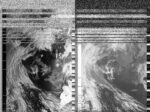
2025-03-31 23:17:00
Zack Wettstein
Seattle, United States
United States
NOAA-18

2025-03-31 22:40:00
Filip Shatlan and Diana Engelmann
Gainesville, Florida , United States
United States
NOAA-19

2025-03-31 19:27:00
Hospitalfield
Arbroath, Scotland
Scotland
NOAA-15
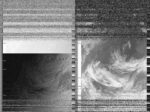
2025-03-31 11:18:00
Heidi Neilson
Gilboa, New York, United States
United States
NOAA-19

2025-03-31 12:58:00
Goownown Growers
The Seaweed Institute
CAST, Helston, Cornwall, United Kingdom
United Kingdom
NOAA-18


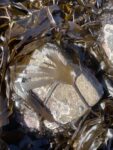

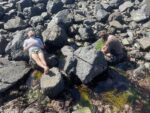
It’s forecast to be an astrological 0m tide in Falmouth – one of the lowest of the year. These extreme tides always sit relatively close to the equinox and, with the high pressure, the tides will creep even lower than expected.
We clear the day and head to one of our favourite spots on The Lizard peninsular.
This spot is very familiar to us, a tidal pool that offers calm water even when the sea is choppy and rough. The breeze today disrupts the sea and a swell is hitting this part of the coast – we find the pool to be the sanctuary we always hope it to be.
Spring brings beautiful rock pooling – no seaweed has become large enough to swamp out other species, most are in their main growing season, so there is lots of beautiful fresh fronds. The sun-bleaching we see later in the year, as the temperature and UV increase, hasn’t yet happened. The water is still cool, not warm enough to support many fouling organisms. The results are clear diverse healthy-looking rock pools.
Kelp semi-drys splayed over rocks, waiting to be freed by the incoming tide. Ruth, inspired, partially dries her Sea Lettuce harvest on a bolder.
This sky is so blue, with just the wispiest clouds high above – a blue that makes any other weather seem implausible. On this little spot of coast its hard to belief there will be any visible weather systems on the image we receive today,- but there is lots, you can see The Lizard though, sitting under a pool of clear sky.
We were here on the equivalent low tide in 2024, the 12 March. It was so cold we had to bring flasks of tea, hats, gloves and thermals so we could last a few hours out here. Today we bath in the sun, agreeing, with relief, that we’ve made it through winter. Sometimes on days like this we do surveys and try to document what we see – today we just enjoy the space. We wonder how we can incorporate more days like this back into our lives.
The Seaweed Institute
2025-03-31 12:19:00
Vienna Automatic
Vienna, Austria
Austria
NOAA-18

2025-03-30 23:30:00
Zack Wettstein
Seattle, United States
United States
NOAA-18

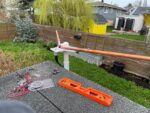
Our inaugural recording for our AGS came at the tail end of a string of storms, including thunderstorms and hail, which are rare for Seattle let alone in March.
2025-03-30 23:05:00
Heidi Neilson
Gilboa, New York, United States
United States
NOAA-18

2025-03-30 23:02:00
Hospitalfield
Arbroath, Scotland
Scotland
NOAA-18
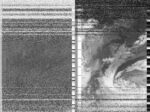
2025-03-30 19:53:00
Goownown Growers
The Seaweed Institute
CAST, Helston, Cornwall, United Kingdom
United Kingdom
NOAA-15

2025-03-30 11:33:00
Filip Shatlan and Diana Engelmann
Gainesville, Florida , United States
United States
NOAA-19

2025-03-30 12:31:00
Vienna Automatic
Vienna, Austria
Austria
NOAA-18

2025-03-29 23:17:00
Heidi Neilson
Gilboa, New York, United States
United States
NOAA-18

2025-03-29 20:16:00
Filip Shatlan and Diana Engelmann
Gainesville, Florida , United States
United States
NOAA-15

2025-03-29 22:14:00
Goownown Growers
The Seaweed Institute
CAST, Helston, Cornwall, United Kingdom
United Kingdom
NOAA-18

2025-03-29 18:39:00
Vienna Automatic
Vienna, Austria
Austria
NOAA-15

2025-03-28 23:27:00
Filip Shatlan and Diana Engelmann
Gainesville, Florida , United States
United States
NOAA-18

2025-03-28 20:38:00
Hospitalfield
Arbroath, Scotland
Scotland
NOAA-19

2025-03-28 12:04:00
Heidi Neilson
Gilboa, New York, United States
United States
NOAA-18

2025-03-28 10:48:00
Goownown Growers
The Seaweed Institute
CAST, Helston, Cornwall, United Kingdom
United Kingdom
NOAA-19

2025-03-28 10:46:00
Hospitalfield
Arbroath, Scotland
Scotland
NOAA-19



Today I visited the antenna on top of the tower after it was installed yesterday (thanks to Ross and Kirsten!). There's a bright enough sun to squint but not enough to warm the body, just flush my face. Or that could be the walk up spiralling stairway and the sudden exposure to wind. The AGS is further down the stairs, in the collections store room, just next to the Victorian telescope that I'm told is rumoured to have be used out here on the tower. Now, the gleaming copper v-dipole antenna is standing firm – just a slight wibble in its arms in the gusting wind. Strapped to the eroding sandstone. A lightning rod is a nearby companion, a much older installation. Strong shadows and pools of water sit on the roof from last night's rain. Fast moving clouds make a repeating rhythm of sensations, like drum beats. One beat sun, one beat rain flecks, beat cloud, beat sun, beat rain etc. The wind buffeting is a constant through the day. The sea is silvery in the distance with a slightly hazy horizon. Looking down to ground level, daffodils smile back. Dots of primrose. Bluebells are on the cusp. Perhaps less distinct waves of their flowering than in the past. The beats quicken. Up here it's just me, but down from the tower it's a busy day, the garden club volunteers have lots of spring jobs to do, the Travelling Gallery bus is visiting, the cafe is packed, and there's more going on than I know about. I shout to Andy (who drives the bus) – he can't hear me over the wind, but I take a photo.
2025-03-28 10:08:00
Vienna Automatic
Vienna, Austria
Austria
NOAA-19

2025-03-28 08:19:00
Hospitalfield
Arbroath, Scotland
Scotland
NOAA-15

2025-03-27 23:40:00
Filip Shatlan and Diana Engelmann
Gainesville, Florida , United States
United States
NOAA-18
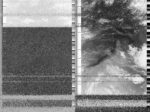
2025-03-27 19:32:00
Heidi Neilson
Gilboa, New York, United States
United States
NOAA-15

2025-03-27 20:53:00
Hospitalfield
Arbroath, Scotland
Scotland
NOAA-19

2025-03-27 18:31:00
Goownown Growers
The Seaweed Institute
CAST, Helston, Cornwall, United Kingdom
United Kingdom
NOAA-15

2025-03-27 10:59:00
Hospitalfield
Arbroath, Scotland
Scotland
NOAA-19

First daytime image from the antenna at Hospitalfield. Weather: Increasingly drizzly and windy from the start of the day. Hoods up. Rain that sounds like it might be hail. Dry ground means big puddles.
2025-03-26 21:05:00
Hospitalfield
Arbroath, Scotland
Scotland
NOAA-19

2025-03-26 18:59:00
Hospitalfield
Arbroath, Scotland
Scotland
NOAA-15

2025-03-26 18:57:00
Goownown Growers
The Seaweed Institute
CAST, Helston, Cornwall, United Kingdom
United Kingdom
NOAA-15

2025-03-26 23:09:00
Cosmos Astronomy Club
Pune, India
India
NOAA-18

2025-03-26 18:17:00
Vienna Automatic
Vienna, Austria
Austria
NOAA-15

2025-03-26 12:33:00
Filip Shatlan and Diana Engelmann
Gainesville, Florida , United States
United States
NOAA-18

2025-03-26 08:38:00
Heidi Neilson
Gilboa, New York, United States
United States
NOAA-15

2025-03-25 22:19:00
Heidi Neilson
Gilboa, New York, United States
United States
NOAA-19

2025-03-25 20:20:00
Filip Shatlan and Diana Engelmann
Gainesville, Florida , United States
United States
NOAA-15

2025-03-25 21:16:00
Goownown Growers
The Seaweed Institute
CAST, Helston, Cornwall, United Kingdom
United Kingdom
NOAA-19

2025-03-25 20:35:00
Vienna Automatic
Vienna, Austria
Austria
NOAA-19

2025-03-25 10:53:00
Heidi Neilson
Gilboa, New York, United States
United States
NOAA-19

2025-03-25 10:18:00
Cosmos Astronomy Club
Pune, India
India
NOAA-19

2025-03-24 20:48:00
Vienna Automatic
Vienna, Austria
Austria
NOAA-19

2025-03-24 21:45:00
Cosmos Astronomy Club
Pune, India
India
NOAA-19

2025-03-24 11:08:00
Filip Shatlan and Diana Engelmann
Gainesville, Florida , United States
United States
NOAA-19

2025-03-24 11:06:00
Heidi Neilson
Gilboa, New York, United States
United States
NOAA-19

2025-03-24 11:48:00
Goownown Growers
The Seaweed Institute
CAST, Helston, Cornwall, United Kingdom
United Kingdom
NOAA-18

2025-03-23 22:40:00
Filip Shatlan and Diana Engelmann
Gainesville, Florida , United States
United States
NOAA-19

2025-03-23 19:36:00
Heidi Neilson
Gilboa, New York, United States
United States
NOAA-15

2025-03-23 21:00:00
Vienna Automatic
Vienna, Austria
Austria
NOAA-19


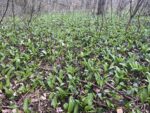


It is the third day after the spring equinox. When spring arrives, we tend to know with a certainty that perhaps only the onset of autumn compares. I woke to bird song. It was only 5 am yet a Blackbird's voice cut through the night. I have seen the Blackbird during the day, perched on the balcony railing next to the bedroom window. It sung for perhaps 10 or 15 minutes before other birds joined, and the dawn chorus kicked in. I lay in bed in the greying light and wondered: how does the first bird know when to sing? It felt as if the Blackbird had sung up the sun, not the other way around.
2025-03-23 18:36:00
Goownown Growers
The Seaweed Institute
CAST, Helston, Cornwall, United Kingdom
United Kingdom
NOAA-15

2025-03-22 23:07:00
Heidi Neilson
Gilboa, New York, United States
United States
NOAA-18

2025-03-22 18:21:00
Vienna Automatic
Vienna, Austria
Austria
NOAA-15

2025-03-22 10:23:00
Goownown Growers
The Seaweed Institute
CAST, Helston, Cornwall, United Kingdom
United Kingdom
NOAA-19

2025-03-21 23:20:00
Heidi Neilson
Gilboa, New York, United States
United States
NOAA-18

2025-03-21 20:25:00
Filip Shatlan and Diana Engelmann
Gainesville, Florida , United States
United States
NOAA-15

2025-03-21 22:16:00
Goownown Growers
The Seaweed Institute
CAST, Helston, Cornwall, United Kingdom
United Kingdom
NOAA-18

2025-03-21 21:36:00
Vienna Automatic
Vienna, Austria
Austria
NOAA-18

2025-03-20 22:30:00
The Seaweed Institute and Goonown Growers
CAST, Helston, Cornwall, United Kingdom
United Kingdom
NOAA-18

2025-03-20 22:45:00
Cosmos Astronomy Club
Pune, India
India
NOAA-18

2025-03-20 12:09:00
Filip Shatlan and Diana Engelmann
Gainesville, Florida , United States
United States
NOAA-18

2025-03-20 12:06:00
Heidi Neilson
Gilboa, New York, United States
United States
NOAA-18

2025-03-20 10:43:00
The Seaweed Institute and Goonown Growers
CAST, Helston, Cornwall, UK
UK
NOAA-19

2025-03-20 10:08:00
Vienna Automatic
Vienna, Austria
Austria
NOAA-19

2025-03-19 23:41:00
Filip Shatlan and Diana Engelmann
Gainesville, Florida , United States
United States
NOAA-18
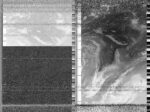
2025-03-19 19:41:00
Heidi Neilson
Gilboa, New York, United States
United States
NOAA-15

2025-03-19 18:35:00
The Seaweed Institute and Goonown Growers
CAST, Helston, Cornwall, UK
UK
NOAA-15

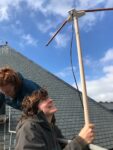
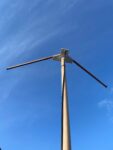
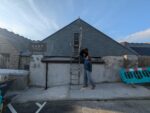
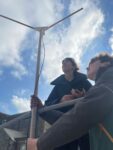
Blue skies for installing the ground station the day before this first image uploaded, we worked together with Ray from Goonown. It was warm and springlike in Helston, the magnolias on the streets around CAST had just come into their element.
We thought we knew the aspect of the building but we were surprised by the direction of true north, we had been looking closer to north north west. Spent some time pondering magnetic deviation, unsure if the smart phone compass already accounted for it, wished we had a proper compass with us.
We chatted with Ray about the dry weather and how different it’s for them planting this year compared to last.
A few passers-by already stopped and mused on the new feature - ‘are you installing Sky TV?’.
The computer, sitting under the desk of the buildings office, seemed to be working okay and we were intrigued to see if it would upload. Ruth listened to the audio file before we saw the first image, as the automatic upload didn’t work the first time - a strange sound.
Seeing this first image we couldn’t quite comprehend any features poking through the noise, it wasn’t until someone else pointed out Scotland and Ireland beneath the clouds, upside down. We worried the granite building was obscuring the reading too much but were excited to see if we could trouble shoot the image with help from Sasha and Soph.
The Seaweed Institute
2025-03-19 22:58:00
Cosmos Astronomy Club
Pune, India
India
NOAA-18

2025-03-18 22:07:00
Heidi Neilson
Gilboa, New York, United States
United States
NOAA-19

2025-03-18 23:55:00
Filip Shatlan and Diana Engelmann
Gainesville, Florida , United States
United States
NOAA-18

2025-03-18 18:26:00
Vienna Automatic
Vienna, Austria
Austria
NOAA-15

2025-03-17 20:29:00
Filip Shatlan and Diana Engelmann
Gainesville, Florida , United States
United States
NOAA-15

2025-03-17 10:54:00
Heidi Neilson
Gilboa, New York, United States
United States
NOAA-19

2025-03-17 07:28:00
Vienna Automatic
Vienna, Austria
Austria
NOAA-15

2025-03-16 11:09:00
Filip Shatlan and Diana Engelmann
Gainesville, Florida , United States
United States
NOAA-19

2025-03-16 15:06:00
Heidi Neilson
Gilboa, New York, United States
United States
NOAA-19

2025-03-16 11:10:00
Vienna Automatic
Vienna, Austria
Austria
NOAA-18

2025-03-16 02:56:00
Heidi Neilson
Gilboa, New York, United States
United States
NOAA-18

2025-03-15 22:41:00
Filip Shatlan and Diana Engelmann
Gainesville, Florida , United States
United States
NOAA-19

2025-03-15 21:01:00
Vienna Automatic
Vienna, Austria
Austria
NOAA-19

2025-03-15 03:09:00
Heidi Neilson
Gilboa, New York, United States
United States
NOAA-18

2025-03-15 07:56:00
Cosmos Astronomy Club
Pune, India
India
NOAA-15

2025-03-14 18:30:00
Vienna Automatic
Vienna, Austria
Austria
NOAA-15

2025-03-14 19:29:00
Cosmos Astronomy Club
Pune, India
India
NOAA-15

2025-03-14 08:54:00
Filip Shatlan and Diana Engelmann
Gainesville, Florida , United States
United States
NOAA-15

2025-03-13 20:34:00
Filip Shatlan and Diana Engelmann
Gainesville, Florida , United States
United States
NOAA-15
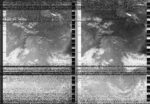
2025-03-13 21:39:00
Vienna Automatic
Vienna, Austria
Austria
NOAA-18

2025-03-13 22:23:00
Cosmos Astronomy Club
Pune, India
India
NOAA-19

2025-03-13 15:55:00
Heidi Neilson
Gilboa, New York, United States
United States
NOAA-18

2025-03-13 09:53:00
Vienna Automatic
Vienna, Austria
Austria
NOAA-19
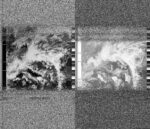
2025-03-12 21:48:00
Vienna Automatic
Vienna, Austria
Austria
NOAA-18

2025-03-12 12:11:00
Filip Shatlan and Diana Engelmann
Gainesville, Florida , United States
United States
NOAA-18
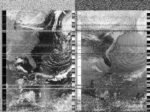
2025-03-12 16:09:00
Heidi Neilson
Gilboa, New York, United States
United States
NOAA-18

2025-03-12 10:07:00
Vienna Automatic
Vienna, Austria
Austria
NOAA-19


2025-03-12 03:48:00
Heidi Neilson
Gilboa, New York, United States
United States
NOAA-18

2025-03-11 23:43:00
Filip Shatlan and Diana Engelmann
Gainesville, Florida , United States
United States
NOAA-18

2025-03-11 10:20:00
Vienna Automatic
Vienna, Austria
Austria
NOAA-19

2025-03-10 23:56:00
Filip Shatlan and Diana Engelmann
Gainesville, Florida , United States
United States
NOAA-18
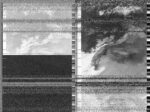
2025-03-10 20:12:00
Filip Shatlan and Diana Engelmann
Gainesville, Florida , United States
United States
NOAA-15

2025-03-10 18:33:00
Vienna Automatic
Vienna, Austria
Austria
NOAA-15

2025-03-09 22:16:00
Filip Shatlan and Diana Engelmann
Gainesville, Florida , United States
United States
NOAA-19

2025-03-09 07:37:00
Vienna Automatic
Vienna, Austria
Austria
NOAA-15

2025-03-08 23:22:00
Filip Shatlan and Diana Engelmann
Gainesville, Florida , United States
United States
NOAA-18

2025-03-08 20:46:00
Vienna Automatic
Vienna, Austria
Austria
NOAA-19

2025-03-07 21:41:00
Filip Shatlan and Diana Engelmann
Gainesville, Florida , United States
United States
NOAA-19

2025-03-07 11:24:00
Vienna Automatic
Vienna, Austria
Austria
NOAA-18

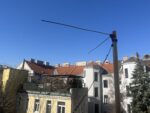
We've skipped from winter to summer. It's already t-shirt weather.
2025-03-06 18:38:00
Vienna Automatic
Vienna, Austria
Austria
NOAA-15

2025-03-05 21:38:00
Vienna Automatic
Vienna, Austria
Austria
NOAA-18

This is the first test transmission from the Vienna Automatic station.
2025-03-05 10:47:00
Filip Shatlan and Diana Engelmann
Gainesville, Florida , United States
United States
NOAA-19

2025-03-04 22:33:00
Filip Shatlan and Diana Engelmann
Gainesville, Florida , United States
United States
NOAA-18

2025-03-02 22:58:00
Filip Shatlan and Diana Engelmann
Gainesville, Florida , United States
United States
NOAA-18

2025-02-26 19:24:00
Filip Shatlan and Diana Engelmann
Gainesville, Florida , United States
United States
NOAA-15

2025-02-25 10:46:00
Filip Shatlan and Diana Engelmann
Gainesville, Florida , United States
United States
NOAA-19

2025-02-25 11:25:00
Cosmos Astronomy Club
Pune, India
India
NOAA-18

2025-02-24 22:51:00
Cosmos Astronomy Club
Pune, India
India
NOAA-18

2025-02-24 11:15:00
Filip Shatlan and Diana Engelmann
Gainesville, Florida , United States
United States
NOAA-18

2025-02-23 22:48:00
Filip Shatlan and Diana Engelmann
Gainesville, Florida , United States
United States
NOAA-18

2025-02-22 11:41:00
Filip Shatlan and Diana Engelmann
Gainesville, Florida , United States
United States
NOAA-18

2025-02-21 11:53:00
Filip Shatlan and Diana Engelmann
Gainesville, Florida , United States
United States
NOAA-18

2025-02-20 21:28:00
Filip Shatlan and Diana Engelmann
Gainesville, Florida , United States
United States
NOAA-19

2025-02-19 10:21:00
Filip Shatlan and Diana Engelmann
Gainesville, Florida , United States
United States
NOAA-19

2025-02-18 10:34:00
Filip Shatlan and Diana Engelmann
Gainesville, Florida , United States
United States
NOAA-19
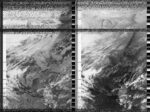
2025-02-17 10:46:00
Filip Shatlan and Diana Engelmann
Gainesville, Florida , United States
United States
NOAA-19

2025-02-17 11:27:00
Cosmos Astronomy Club
Pune, India
India
NOAA-18

2025-02-16 11:17:00
Filip Shatlan and Diana Engelmann
Gainesville, Florida , United States
United States
NOAA-18
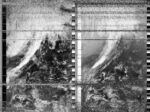
2025-02-15 22:49:00
Filip Shatlan and Diana Engelmann
Gainesville, Florida , United States
United States
NOAA-18

2025-02-14 11:43:00
Filip Shatlan and Diana Engelmann
Gainesville, Florida , United States
United States
NOAA-18

2025-02-13 09:56:00
Filip Shatlan and Diana Engelmann
Gainesville, Florida , United States
United States
NOAA-19

2025-02-12 21:29:00
Filip Shatlan and Diana Engelmann
Gainesville, Florida , United States
United States
NOAA-19

2025-02-11 10:21:00
Filip Shatlan and Diana Engelmann
Gainesville, Florida , United States
United States
NOAA-19
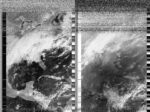
2025-02-10 10:35:00
Filip Shatlan and Diana Engelmann
Gainesville, Florida , United States
United States
NOAA-19
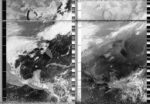
2025-02-08 11:19:00
Filip Shatlan and Diana Engelmann
Gainesville, Florida , United States
United States
NOAA-18
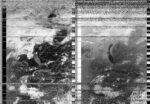
2025-02-07 11:31:00
Filip Shatlan and Diana Engelmann
Gainesville, Florida , United States
United States
NOAA-18

2025-02-06 11:44:00
Filip Shatlan and Diana Engelmann
Gainesville, Florida , United States
United States
NOAA-18
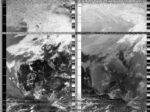
2025-02-05 09:56:00
Filip Shatlan and Diana Engelmann
Gainesville, Florida , United States
United States
NOAA-19

2025-02-04 07:45:00
Filip Shatlan and Diana Engelmann
Gainesville, Florida , United States
United States
NOAA-15

2025-02-03 10:21:00
Filip Shatlan and Diana Engelmann
Gainesville, Florida , United States
United States
NOAA-19

2025-02-02 10:34:00
Filip Shatlan and Diana Engelmann
Gainesville, Florida , United States
United States
NOAA-19
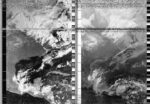
2025-02-01 22:44:00
Cosmos Astronomy Club
Pune, India
India
NOAA-18

2025-02-01 11:07:00
Filip Shatlan and Diana Engelmann
Gainesville, Florida , United States
United States
NOAA-18

2025-01-31 11:20:00
Filip Shatlan and Diana Engelmann
Gainesville, Florida , United States
United States
NOAA-18
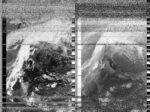
2025-01-30 11:33:00
Filip Shatlan and Diana Engelmann
Gainesville, Florida , United States
United States
NOAA-18

2025-01-28 09:57:00
Filip Shatlan and Diana Engelmann
Gainesville, Florida , United States
United States
NOAA-19
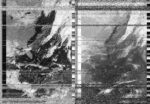
2025-01-27 07:53:00
Filip Shatlan and Diana Engelmann
Gainesville, Florida , United States
United States
NOAA-15
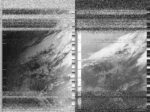
After days of chill and even snow in parts of Florida, today was a bright, sunny day and less cold. Older residents tell me that freezing temperatures rarely happened in the past. Most indigenous plants survived, but on my walk I observed that many non native shrubs have wilted under icy rain a few nights ago. Birds flocked to my feeder and some strange cloud formations passed in the afternoon.
2025-01-26 10:21:00
Filip Shatlan and Diana Engelmann
Gainesville, Florida , United States
United States
NOAA-19

2025-01-24 11:09:00
Filip Shatlan and Diana Engelmann
Gainesville, Florida , United States
United States
NOAA-18

It's been very cloudy over the past week, and school was out for a day across central to upper-Florida high schools due to super low temperatures. Pensacola saw some snow interestingly enough! Today (the 25th of January) is the first clear and sunny day we've had in a week.
2025-01-23 07:57:00
Filip Shatlan and Diana Engelmann
Gainesville, Florida , United States
United States
NOAA-15

2025-01-22 22:55:00
Filip Shatlan and Diana Engelmann
Gainesville, Florida , United States
United States
NOAA-18

2025-01-22 11:35:00
Filip Shatlan and Diana Engelmann
Gainesville, Florida , United States
United States
NOAA-18

2025-01-21 11:48:00
Filip Shatlan and Diana Engelmann
Gainesville, Florida , United States
United States
NOAA-18
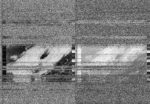
2025-01-18 10:09:00
Automatic Ground Station 12 London
London, United Kingdom
United Kingdom
NOAA-19


2025-01-16 11:11:00
Filip Shatlan and Diana Engelmann
Gainesville, Florida , United States
United States
NOAA-18
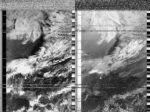
2025-01-16 17:17:00
Cosmos Astronomy Club
Pune, India
India
NOAA-18

2025-01-14 11:37:00
Filip Shatlan and Diana Engelmann
Gainesville, Florida , United States
United States
NOAA-18

2025-01-13 04:36:00
Cosmos Astronomy Club
Pune, India
India
NOAA-19

2025-01-12 16:02:00
Cosmos Astronomy Club
Pune, India
India
NOAA-19

2025-01-12 07:44:00
Filip Shatlan and Diana Engelmann
Gainesville, Florida , United States
United States
NOAA-15

2025-01-11 10:08:00
Filip Shatlan and Diana Engelmann
Gainesville, Florida , United States
United States
NOAA-19

2025-01-10 10:21:00
Filip Shatlan and Diana Engelmann
Gainesville, Florida , United States
United States
NOAA-19

2025-01-09 10:33:00
Filip Shatlan and Diana Engelmann
Gainesville, Florida , United States
United States
NOAA-19
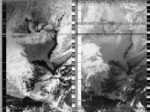
2025-01-08 07:48:00
Filip Shatlan and Diana Engelmann
Gainesville, Florida , United States
United States
NOAA-15

2025-01-07 11:25:00
Filip Shatlan and Diana Engelmann
Gainesville, Florida , United States
United States
NOAA-18
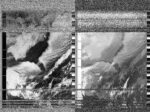
2025-01-06 11:39:00
Filip Shatlan and Diana Engelmann
Gainesville, Florida , United States
United States
NOAA-18
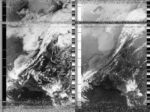
2025-01-05 11:52:00
Filip Shatlan and Diana Engelmann
Gainesville, Florida , United States
United States
NOAA-18


Another cool, crisp day. Turkey vultures soar on invisible updrafts in the sky. The dry grass is filled with tiny capped nuts, acorn-like but smaller. Surprisingly, dogs search them out and crunch their shells- an unlikely snack. Spanish moss hangs serenely from oak branches, sometimes reaching the ground.
2025-01-04 09:56:00
Filip Shatlan and Diana Engelmann
Gainesville, Florida , United States
United States
NOAA-19
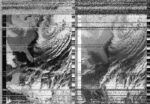




The ‘Cheshire Cat’ moon hung ponderously over the old golf course at West End in Newberry. The sky was a spectrum starting at the palest yellow to blue and violet. In the tract housing that surrounds a good part of the field, I noticed paper taped to windows with the writing facing out, like a label of completeness, while in other windows Christmas tree lights shone out. On this last of many walks in this park, I felt an eerie sense of quiet.
2025-01-03 16:14:00
Cosmos Astronomy Club
Pune, India
India
NOAA-19

2025-01-03 10:07:00
Filip Shatlan and Diana Engelmann
Gainesville, Florida , United States
United States
NOAA-19
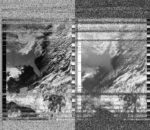
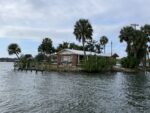
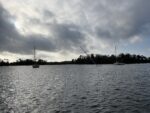


Hurricane Idalia has haunted several conversations with locals on the west coast of Florida. In Crystal River, a sleepy seaside town known for its warm springs and manatees, the severity of Idalia was attributed to “a trifecta: king tide, full moon, west wind”. This phrase stayed with me as the New Year passed and the holidays drew to a close. Before spending time in Florida, I had little knowledge of the diversity of hurricanes and which local conditions affected their impact. Hurricane Helene apparently was a “muddy one” as it dragged up tons of mud into houses, streets and dry surfaces, and so repair was even more laborious. I heard the same person from Crystal River say that “because hurricanes tend to hit at night, you never know what’s around you”. They were pointing to Christmas Island, a small patch of land in the middle of the mouth of the river that had been the site of a single house before Idalia- after the storm hit, locals could only make out the Christmas lights strung up around the darkened house, hence its name. It was bought and rebuilt in 2024, right before Helene hit, and now stands crumbling and empty. We also passed a line up of sail boats in the rivermouth, two of which had sunk during Helene, their sailing masts pointing out of the water crookedly. “They didn’t tie up properly for the hurricane” we learned. Yet dozens of other boats were peacefully anchored adjacent and around the sunken ones. Their owners had stayed on their boats during the storm.
2025-01-02 21:39:00
Filip Shatlan and Diana Engelmann
Gainesville, Florida , United States
United States
NOAA-19
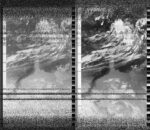
2025-01-02 18:37:00
Cosmos Astronomy Club
Pune, India
India
NOAA-18

2025-01-02 10:20:00
Filip Shatlan and Diana Engelmann
Gainesville, Florida , United States
United States
NOAA-19
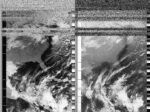
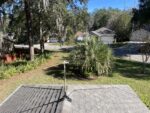


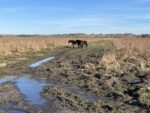
Migrating sandhill cranes, common apple snails and wild Spanish horses emerged from the tall grass and reeds of Paynes Prairie on a hike yesterday afternoon. The air was much cooler and crisper than previous days, and the humidity dropped from 90% to 50%. We came across an impression in the mud, the outline and texture of which looked strikingly like the sideways body of a pig. There were even tiny lines that looked like fur, and hoof prints where it got up after rolling around. The Paynes Prairie visitor centre had boasted a large poster of a wild boar with very black fur and gleaming eyes, and the title on top of the image said, in bold letters, 'Alien invaders'. Another section of the educational exhibit had information on the history of the prairie, and featured a wall sized display about Seminole and Potano Indigenous communities. Amidst information on Seminole pottery, hunting tools and agriculture, one sentence acknowledged that: "Seminole populations declined in the 18th and 19th centuries due to war, disease and land dispossession". But which wars? Which diseases? Land dispossession by who? These questions and answers were absent.
2025-01-01 10:33:00
Sasha Engelmann
Steve Engelmann
Gainesville, Florida , United States
United States
NOAA-19





Today marks the official permanent installation of the Gainesville Automatic Satellite Ground Station on the roof! We did one more test of two AGS's (15 and 12) running in parallel and receiving the same satellite shortly after 10:30am from the roof. Both received stunningly clear images, even though the pass was only around 65 degrees at max elevation. One V-dipole was mounted on the permanent installation site, and Steve held the second. The former received an image with less interference, which made sense, given it had nothing around it to possibly affect the antenna's radiation pattern. After drilling a pilot hole through the PVC that holds the antenna to the (now waterproof) wooden mast, we used a wood screw to solidly connect the two. We stretched out the RG8X coaxial cable throughout the backyard to make sure there were no kinks, and screwed one end into the base of the antenna on the roof, using zip ties to hold the cable against the mast. Following one edge of the roof, we bolted the cable down with small cable brackets, and looped it under the garage door overhang, following the edge of the moulding around the door to the floor, where we hooked it under a piece of wood. Steve drilled away some of the wood on the inside part of the garage door corner, where we passed the cable through to the inside, testing the garage door could open and close without causing any friction. We then bracketed the cable to the moulding along the bottom of the garage wall to the corner where there is a work desk and a power plug. We had a good metre and a half of cable left, and gently looped this around twice. After the cable was stretched out and secured, we returned to the roof, where we oriented the V-dipole to 'true north' using a professional compass, which meant we had to apply a 6 degree West declination (based on the difference between magnetic North and true North from our position in Florida). One of us oriented the antenna with the compass while the other screwed the wooden mast tightly into the steel mount with two screws. We also wrapped the UHF connector at the end of the coaxial cable with some vinyl electrical tape to protect it from UV radiation and water damage. Back inside, we cleaned up the wood shavings, glue, and spare screws. As we didn't have any extra 3D print casings for the Florida AGS, we DIY-ed a small cardboard box, and hooked up AGS 15 in its corner. It lit up, and let us know that it was going to collect a NOAA-15 pass shortly before 7pm this evening!
2025-01-01 05:54:00
Cosmos Astronomy Club
Pune, India
India
NOAA-18

2024-12-31 14:02:00
Cosmos Astronomy Club
Pune, India
India
NOAA-15

2024-12-30 11:28:00
Sasha Engelmann
Steve Engelmann
Gainesville, Florida , United States
United States
NOAA-18





We were late in plugging-in the semi-permanently mounted V-dipole antenna to the 'recording' AGS, but happy to see it standing on the peak of the garage roof, glinting orange-pink in the sunlight, without anyone attempting to hold it in place, as it received an image from NOAA-18. After several antenna radiation pattern calculations, we decided to try a test antenna height of 0.8 metres off the pinnacle of the roof. While some radio forums suggest putting the antenna as high as possible, others suggest this is not necessary, especially if one is already mounting on a semi-conductive wooden roof (as opposed to concrete or steel). Depending on what surface the v-dipole antenna takes as 'ground', the antenna height can create different patterns of reception, and can even lead to 'null' points where no signal data can be received. However, as Gainesville can get very strong, hurricane force winds, and we couldn't see many examples of tall antennas or rooftop weathervanes in the neighbourhood, we opted to keep the antenna height under one metre, and 0.8 seemed to work great today, despite our lateness. To secure the antenna mast to the roof, we used a steel 'weathervane' mount with special wood screws with deep ribbons that we had gotten at the local ACE hardware store, and a good coating of a transparent sealant gel called, somewhat counter-intuitively, 'Through the Roof!' We managed to hit a stud with one side of the steel mount, which was a good sign for the sturdiness of the antenna, but also meant that the drill pushed further into the roof on the stud side of the mount, and slightly unbalanced the mount. We unscrewed, knocked some wooden 'shims' under the metal pad at the stud side, and checked its straightness by hanging a roll of tape on a golden ribbon next to the mast. Tomorrow, hopefully, we will be able to tie the RF cable onto the mast, and bracket / secure the cable to the roof, wrapping it around the edge of the garage door and entering the garage where the AGS will stay plugged in.
2024-12-29 17:45:00
Cosmos Astronomy Club
Pune, India
India
NOAA-18

2024-12-29 11:41:00
Sasha Engelmann
Steve Engelmann
Gainesville, Florida , United States
United States
NOAA-18

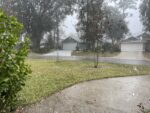

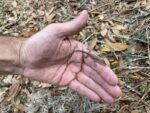
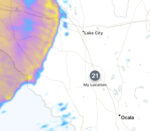
A huge amount of progress was made today with AGS reception! It is hard to contain the excitement while writing this weather note. After several months exploring ‘herringbone’ distortion patterns and deep diving into NOAA APT + Raspberry Pi tutorials, the team found an ‘instructable’ tutorial via which several people seemed to be receiving relatively long and clear NOAA images. In this tutorial, Grayson noticed a filter option for rtl_fm called -F 9 that we hadn’t tried to implement in the AGS code yet, and he added it in an update yesterday. Last night, the roof mounted turnstile in Florida had to be taken down due to a lightning storm and ‘extreme’ tornado warning. Yet even though it was up against a garage wall and under an overhang, the last evening pass of the day yesterday showed telemetry data at the top and bottom of the image, where previous captures only recorded static.
This morning, despite an ongoing storm and tornado warning, the Turnstile was positioned out on the front lawn for a 70 degree max elevation pass shortly after 11:40. In stark contrast to previous ‘letterbox’ type images in which satellite data only appeared in the central strip of the recording, today the image is significantly longer and clearer, with telemetry data clearly showing through static at the beginning and end of the pass. Also, the typical ‘herringbone’ type distortion seen in all previous images appears to be gone! More testing will verify this but at present this is something to celebrate.
2024-12-28 04:35:00
Cosmos Astronomy Club
Pune, India
India
NOAA-19

2024-12-27 09:56:00
Sasha Engelmann
Steve Engelmann
Gainesville, Florida , United States
United States
NOAA-19

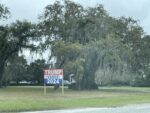


We joked that Orlando kept getting farther away as we drove south on 75, east through Ocala National Forest, over the waters of Lake Monroe, and alongside cattle pastures and skeleton scarecrows. Rain splattered intermittently on the windshield. Billboards declared that ‘at 18 days since conception, a baby’s heart is already beating’, or ‘man up: your child needs you.’ An entire single story house rolled down the highway taking up two lanes, flanked by pickup trucks. A corner ‘yard art’ shop burst with bronze eagles, brown bears, American flags and an original Bob’s Big Boy sculpture, complete with a checkered red and white outfit and a sculptural hamburger on a plate.
2024-12-27 14:06:00
Cosmos Astronomy Club
Pune, India
India
NOAA-15

2024-12-26 16:13:00
Cosmos Astronomy Club
Pune, India
India
NOAA-19

2024-12-26 10:08:00
Sasha Engelmann
Steve Engelmann
Gainesville, Florida , United States
United States
NOAA-19

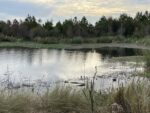
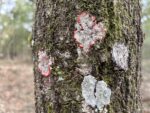
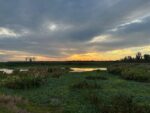

Florida balances over one big aquifer: a hidden cavernous water system fed by rainfall that stretches beneath the everglades, wetlands and an ecological system known as 'moist sandy pine / hardwood woodlands'. Walking through the Sweetwater Wetlands south of Gainesville yesterday, we met some of the water on its way into the depths. Today, at Rainbow Springs, an hour further south, we saw some of it come out, bubbling up through pale white-gray sand, so abundantly that it creates the Rainbow River, a wide, flat river sustaining alligators, turtles, catfish, frogs, coral snakes and other wildlife. Rainbow Springs exists because of the thinner karst rock separating the aquifer from the surface, while elsewhere in the state, the rock-shield is much thicker. The upwelling makes the water below feel very close, even reachable, but we learned that the water in the Floridan Aquifer is between 17,000 and 26,000 years old. The springs seemed otherworldly in their crystal clear shallows, ferns and mossy trees, and two impressive waterfalls cascaded over towering rocks. One of the waterfalls was named 'Seminole Falls', after local Indigenous peoples who never ceded their land. We speculated that the two tall waterfalls might have been built up as the upwelling spring water deposited minerals over thousands of years. Later a park ranger informed us that the waterfalls were entirely man-made in the 1930s, created with sediment dredged from the bottom of the springs, and that water has been power-pumped to the top of the rocks for decades, just so visitors can watch it fall.
2024-12-25 16:26:00
Cosmos Astronomy Club
Pune, India
India
NOAA-19

2024-12-25 10:22:00
Sasha Engelmann
Steve Engelmann
Gainesville, Florida , United States
United States
NOAA-19




"What is this obsession with 'manned' or 'unmanned'?!" jokes Bowen Yang, playing 'A Drone' on Saturday Night Live. "For the record" Bowen continues "I can get a man whenever I want!". The skit plays on political divisions haunting thousands if not millions of American Christmas Eve dinners this year. I had not heard about the reported drone sightings prior to arriving in Florida, but they have been raised by local family members at every opportunity. "What is the government really doing?" "Remember the media explosion about that one Chinese balloon?! Now there are hundreds of drones and no one is talking about it!" Or, "I just worry about what could happen in New York on New Years Eve". Earlier in the week, when Steve and I set up the turnstile antenna on the roof of my Mom's house, a family member walked over and asked if we could listen to the drones. I decided to preserve a bit of mystery: "this is for satellites, but both satellites and drones communicate via radio waves".
2024-12-24 10:34:00
Automatic Ground Station 12 Florida
Gainesville, Florida , United States
United States
NOAA-19

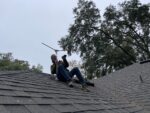


We ran two AGS at the same time to test the difference between a weatherised V-dipole and a static mounted Turnstile on the top of the roof. The pass was around 68 degrees in maximum elevation- so not ideal, but good enough for a comparison. Steve reclined on the roof and used a spare curtain rod to hold the V-dipole in a static position for eleven minutes. We ran a spare radio cable from the V-dipole through the garage door to AGS 12, while AGS 3 stayed connected to the turnstile. Comparing the images is interesting: AGS 12 / V-dipole picked up the satellite signal a little earlier, but more bands of interference run through the start of the image. In contrast, AGS 3 / Turnstile pick up the signal later, but the middle part of the image is generally clearer. The antennas lose the signal at about the same time to the South.
2024-12-24 10:34:00
Sasha Engelmann
Steve Engelmann
Gainesville, Florida , United States
United States
NOAA-19


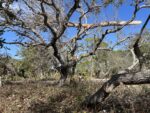
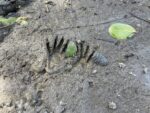
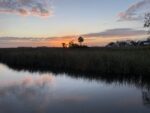
After a few hours at Florida's coast, one begins to see beyond the obvious signs of damage from Hurricane Helene to houses and infrastructure, and other more subtle signals become visible. At the edge of the marshes in Suwannee, a town at the mouth of the Suwanneee river, the land had subsided significantly. We spotted a red life jacket caught in top of a stand of high reeds near the waterline. Near the Cedar Keys museum, a bleached log had been lifted into the upper branches of a Cedar or Juniper. "Have a good time on the island- or what's left of it" said a Cedar Keys resident named Tom as we left the community garden he had set up and repaired from storm damage. We noticed how local mud clams grow in clumps, clustering on each other, rather than on rocks, like the clams and mussels of California and the UK. In the mud, the footsteps of boots traced a path to a dense outcrop of clams, presumably for a local clam harvest. Raccoon feet looked like tiny hands sunk deep in the mud. "When I was young we all used to go clam stomping" said a woman we spoke to in Cedar Keys. "You would stand in the mud and stomp your feet down over the clam. They were huge" she made a sign with her hands, fingers arranged in a large diamond shape, "nothing like what we eat today", she added.
2024-12-24 05:55:00
Cosmos Astronomy Club
Pune, India
India
NOAA-18

2024-12-23 17:22:00
Cosmos Astronomy Club
Pune, India
India
NOAA-18

2024-12-23 11:17:00
Sasha Engelmann
Steve Engelmann
Gainesville, Florida , United States
United States
NOAA-18

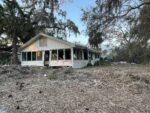



"How high did the water get?" asked Steve. Our waitress silently walked to the door of 'Steamers' cafe and pointed to a green line drawn on the wall above chest height. "The previous high water level was all the way down here" she added, bending all the way down to a wave pattern drawn with Sharpie about a foot off the ground. "Then Idalia was here" she said, referencing the 2023 Hurricane, and pointing to a black mark around two feet off the ground, not far from the lower mark. "We prepared for it to be somewhere in between" she said. In the midst of the bustling cafe at lunchtime, we all took a moment to look at the marks on the wall in silence. The distance between the water level that the town of Cedar Keys had prepared for, and how high the water rose during Hurricane Helene, was almost unbelievable.
Later, driving through Suwaneee, another Gulf-side town north of Cedar Keys, we saw tree branches hoisted into upper tree branches, boats that appeared to have been lifted and dropped in driveways, broken windows, boarded-up holes, and debris still clinging to the upper branches of palms, cedars and other bushes. The newer houses were built on stilts 16 feet high or more - the new 'code' for building, we had learned from the waitress.
2024-12-23 10:47:00
Sasha Engelmann
Steve Engelmann
Gainesville, Florida , United States
United States
NOAA-19


2024-12-22 11:29:00
Sasha Engelmann
Steve Engelmann
Patio Homes, Newberry , United States
United States
NOAA-19





Day 1 of the Florida Automatic Ground Station testing phase. A turnstile antenna is taped to a tripod sitting on the angle of the roof. An RF cable runs through a crack in the garage window to the AGS on a worktable inside.
2024-12-21 11:29:00
Hospitalfield
Arbroath, Scotland
Scotland
NOAA-18

Yellow weather warning just starting here. Bright but very very windy from 2 floors up, leaves swirling everywhere, bins falling about
2024-12-13 17:53:00
Los Angeles AGS
Los Angeles, United States
United States
NOAA-19

2024-12-07 20:23:00
Prototype Automatic Ground Station 10
London, UK
UK
NOAA-19


I woke at around 6am to winds buffeting the flat and a car alarm going off on the street. Can winds cause car alarms? I wondered as I drifted back to a light sleep. This morning, the needle of the barometer teetered far below 1000 hPa and pointed at the diagram of a storm. Indeed Storm Darragh was already swirling across the U.K., a storm so violent that the Met Office issued a red wind warning, alerting people of the threat to life – only the 19th since 2011.
2024-12-07 05:01:00
Los Angeles AGS
Los Angeles, United States
United States
NOAA-19

2024-12-06 11:19:00
Prototype Automatic Ground Station 10
London, UK
UK
NOAA-18
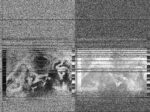
The needle on the barometer crept up from its place around 1,009 hPa yesterday afternoon to 1019 today around noon. True to the barometer, the sky opened up into a clear, crisp blue. I was reminded of Gaston Bachelard's writing on the aerial imagination, and his writing of air as 'thin matter' that is especially sensible to poets.
2024-12-05 17:52:00
Los Angeles AGS
Los Angeles, United States
United States
NOAA-19

2024-12-04 07:50:00
Prototype Automatic Ground Station 10
London, UK
UK
NOAA-15

2024-12-04 06:13:00
Los Angeles AGS
Los Angeles, United States
United States
NOAA-18

2024-12-03 21:48:00
Prototype Automatic Ground Station 10
London, UK
UK
NOAA-18

London's air is a crisp, cold air today, but the movement of the city keeps me warm. The pressure on my barometer reads over 120 hPa, and the arrow of change points to 'clear' weather. I spend the day in rooms full of students in colleagues, on multiple tube and overground trains, and on busy high streets. Walking from my university campus in Bloomsbury to Tottenham Court Road at sunset, I can almost feel the warm glow of each body as it passes by me in the crowd.
2024-12-03 18:51:00
Los Angeles AGS
Los Angeles, United States
United States
NOAA-18


2024-12-02 15:32:00
Los Angeles AGS
Los Angeles, United States
United States
NOAA-15


2024-12-01 10:07:00
Sasha Engelmann
Hackney Downs, London, United Kingdom
United Kingdom
NOAA-19
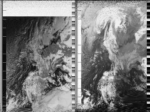


In a recent article on 'Clouding knowledge in the Anthropocene', Kate Lewis Hood proposes a "cumulative reading - where cumulative shares an etymological root with cumulus, a type of cloud (OED, 'cumulate') - that shifts from clear skies to fog, between atmospheric transparency and opacity" (2018: 83). Exploring poetry including The Weather by Lisa Robertson and Drift by Caroline Bergvall, Lewis Hood suggests that "such experimental practices enable a shift from asking whether to read or interpret in a certain way to engaging with the weather system of a text: its unpredictable changes and complex patterns" (2018: 185). If today's weather system in London was a text, it might read like this passage from Robertson's The Weather:
Our skies are inventions, durations, discoveries, quotas, forgeries, fine and grand. Fine and grand. Fresh and bright. Heavenly and bright. The day pours out space, a light red roominess, bright and fresh. Bright and oft. Bright and fresh. Sparkling and wet. Clamour and tint. (Robertson, 2001: 10)
2024-11-26 06:15:00
Los Angeles AGS
Los Angeles, United States
United States
NOAA-18


2024-11-14 10:19:00
Prototype Automatic Ground Station 13
London , United Kingdom
United Kingdom
NOAA-19


2024-11-12 11:24:00
Prototype Automatic Ground Station 13
London , United Kingdom
United Kingdom
NOAA-18

I duck-taped my turnstile antenna to the kitchen window while I went outside to capture the same satellite pass with my tape measure Yagi-Uda. Collecting two images - one from an AGS and one from a mobile station - will help us identify if there are any unusual patterns in the images collected by the AGS.
2024-10-30 10:05:00
Prototype Automatic Ground Station 11
London, United Kingdom
United Kingdom
NOAA-19

Today is humid, over 80%, and this creates blurry lines and fuzzy borders. The sky hangs low over London. In the evening, news of the flash flooding in Spain comes online, and T and I watch with horror as Channel 4 news shows images of people being airlifted from flooded homes, holding tightly to their pets, and cars having been pushed across streets and cities - piled up, water logged.
2024-10-29 10:17:00
Prototype Automatic Ground Station 11
London, United Kingdom
United Kingdom
NOAA-19


As I leave for a workshop with a PhD student in Bloomsbury, early this morning, I set up my turnstile on the kitchen windowsill. Making sure its 'reflector' spokes are inside the window, and the cable is taped to the window ledge, I leave the flat. Upon returning many hours later - after cycling over 1.5 hours in total across London, through streets heavy with mist, smog and traffic - the antenna is still there, poised to receive. I wondered, as no one was in the flat when it recorded, whether the plants sensed what was happening. I wondered if the simultaneous recording of Automatic Ground Station 11 on the kitchen table, connected via a thick coiled cable to the turnstile antenna on the window, together with two other Automatic Ground Stations in T's studio (not connected to antennas) changed the conditions of the flat in some way. I enjoyed thinking of the three stations lighting up on cue, all attempting to track and receive radio waves from NOAA-19.
2024-10-27 11:25:00
Prototype Automatic Ground Station 11
London, United Kingdom
United Kingdom
NOAA-18

2024-10-26 10:33:00
Soph Dyer
The Seaweed Institute
Helston, Cornwall, UK
UK
NOAA-18





A crisp and clear. Blue skies after yesterday's rain showers.
The Automatic Ground Station hosted by The Seaweed Institute at the visual arts organisation CAST in Helston is online! The station's weatherised v-dipole antenna will remain inside, and so reception limited, while we search for an accessible rooftop location.
The Seaweed Institute is run by Kerry Holbrook and Ruth Klückers on the south coast of Cornwall. The project connects people, seaweed and the intertidal space. Kerry and Ruth have spent the last five years working as seaweed harvesters on the Lizard Peninsula for the Cornish Seaweed Company.
Ray Dyer, Soph's sister and and co-director of Goonown Growers, was also present. The day began with a visit to the community food growing project, Loveland, in nearby Penryn. Thank you, Finn and Ray, for the tour of the new polytunnel and winter crops.
More updates in the coming weeks!
2024-10-13 17:06:00
Los Angeles AGS
Los Angeles, United States
United States
NOAA-19
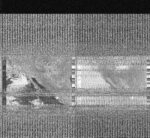

2024-10-12 11:14:00
Prototype Automatic Ground Station 10
London, UK
UK
NOAA-18


Today on BBC, Keir Starmer says he is remaining focused on the achievements of his new government, refusing to be distracted by 'side winds'. The phrase gives me pause, as it suggests that recent scandals around campaign donations or staff adjustments are akin to a tangential or minor wind. I think about the associations between wind and chaos, and the way the prime minister must be intent on distinguishing the focus of his government from any hint of entropy or agitation. Yet, if there are 'side winds', what is in the centre or the middle? Is it a storm, like a hurricane? Is it another wind, but one that is constant and measured? At the salon this morning, I was telling my hairdresser about my Mom's experience of Hurricane Milton, and the number of people who texted me about my Mom's safety, having seen Milton's imagery on the news, as well as the rumours and lies that have emerged in its wake, about the government creating and directing the hurricane, or refusing emergency relief. A woman who has just been styled for an upcoming hairdressers convention overhears me, and tells me she is from Idaho. "it's so fascinating what you were saying about everyone focusing on Milton" she says, "because where I'm from, in Idaho, we had the largest and most severe fire in US history earlier this year, and it did not make any headlines. No one was talking about it". I confessed I had not heard about the Idaho fires either, despite being an American, perhaps more attuned to US media than most people in the UK. She had to leave for her taxi before we could finish this conversation - which left me thinking again about 'side winds'.
2024-10-11 11:27:00
Prototype Automatic Ground Station 10
London, UK
UK
NOAA-18

Tropical Storm Leslie is brewing in the mid-Atlantic. By Monday, it may begin to reach the west coast of Spain, much like where the beautiful curving cyclone visible in today's image is swirling. For now, central Europe is dotted with a few clouds but is otherwise relatively clear. This image from an automatic ground station in my flat was captured by a turnstile antenna leaning on the windowsill, its metal dipoles shining in the noon sunlight.
2024-10-11 08:57:00
Prototype Automatic Ground Station 2
Vienna, Austria
Austria
NOAA-19
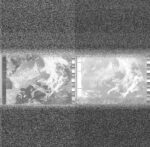
Remoteness is a position. The prototype Automatic Ground Station has freed-up my time to write more contemplative, spelling error free Weather Notes, but this has come at a cost. I no longer need to go outside in all weathers at inconvenient times of the day (when I should be in a meeting, eating dinner or just doing something unrelated to satellites and weather). For several weeks, I have not had to checked satellite orbits, hold an antenna or manually decode sound and process files. As a result, I look at today's satellite image with a sense of detachment. I treat the image more like a 'data product' than an hard-won 'weather observation'. This abstraction makes the tropical storm systems just beyond the image's frame feel remote and the weather outside my window feel comfortingly local. What's more, I have allowed a 'safe' distance to open up between me and other geopolitical heavy weather. When I manually captured longer satellite images, I often looked for Black Sea or coastlines of North Africa, the Gaza Strip, Israel and Lebanon to orientate myself. Put differently, I have put the 'remote' back into remote sensing and it has become easier for me to deny shared atmospheres and storm systems, interdependencies and breath.
2024-10-10 06:37:00
Prototype Automatic Ground Station 2
Vienna, Austria
Austria
NOAA-15
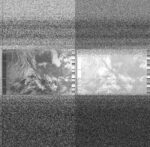


The weather today sounds like names: Milton, Kirk, and Leslie. The weather sounds too like rain, even though here it is not raining. This is because the tree outside my studio window makes a rustling, swishing, and swooshing sound in the wind. Laden with dried beanpods it has become a musical instrument. I see passersby turn to find the origin of its percussive song. While working, I tune out of the news feeds of Hurricane Milton crossing Florida and tune into the tree.
2024-10-09 18:30:00
Prototype Automatic Ground Station 10
London, UK
UK
NOAA-15



After having watched Hurricane Milton on various media throughout the day, and thinking about my family in Northern Florida, going to sleep tonight feels like a very difficult thing to do. As I try to distract myself with a book, I can still see the slowly spinning 'arms' of the hurricane, like an after-image.
2024-10-08 21:56:00
Prototype Automatic Ground Station 10
London, UK
UK
NOAA-18

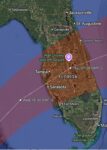
I wake up to news of Hurricane Milton, one of the most rapidly intensifying storms ever measured in the Gulf of New Mexico. The category 5 storm is on a path to make landfall in Western Florida by Wednesday evening in EST. My Mom just moved to Florida two months ago - on time for hurricane season. She lives in Gainesville, just north of the projected path of Milton. On various late night phone calls over the last two weeks, she has showed me mountains of debris on her street, still there from Hurricane Helene, which also passed close, but not directly over Gainesville. Later in the day, I am in a team supervision with one of my PhD students, and my co-supervisor, a geomorphologist and quaternary scientist, shares that he was planning on searching NOAA's National Centre's for Environmental Information the other day (researching data for a third year undergraduate course practical) but the NCEI headquarters are in Asheville (Buncombe County) in North Carolina, one of the cities hardest hit by Hurricane Helene in the last few days of September, and they have had a continuous power outage since. My colleague reports that most of the region's electricity substations were flood damaged, as are all the bridges. Initial damage estimates are coming out in the order of $30-45 bn. Out of >100,000 houses in Buncombe County only around 900 have flood insurance. A former NOAA scientist has estimated 40 trillion gallons of water fell. And now Milton has arrived. Normally, the NCEI would offer 'real time' products for tracking weather like Milton, and it is a crucial hub in packaging various forms of satellite, sensor and other data for a wide group of people including farmers, businessmen, insurance companies and weather services around the US. But as of today, none of NCEI's real-time tracking and forecasting features are available - this is a big hole in networks of weather data sharing and communicating. As I hold my turnstile antenna out the window for a satellite pass close to 11pm this evening, I read the prognosis of a Florida based meteorologist, speaking of Milton: "This is nothing short of astronomical... This hurricane is nearing the mathematical limit of what Earth's atmosphere over this ocean water can produce."
2024-10-08 19:24:00
Prototype Automatic Ground Station 2
Vienna, Austria
Austria
NOAA-19

"When the sand settles," said my sister on the phone earlier. I think that she meant to say "when the dust settles" but misspoke and created a one line poem.
2024-10-07 19:36:00
Prototype Automatic Ground Station 2
Vienna, Austria
Austria
NOAA-19

On my way to work, I see a posy of flowers and candles arranged around a group of 'stumbling stones' (Stolpersteine) for Jewish Holocaust victims. The care and thought contained in the small act of memorialising such unfathomable violence moves me. Yet, I also feel disquiet at the possible mnemonic "fusing" of the October 7 attacks with the Holocaust. In a Guardian article, 'How Israel has made trauma a weapon of war', Naomi Klein asks what are the dangers (and motivations) of making such parallels? Klein's arguments have resonances beyond Gaza to other contexts where work is being done to remember the violence and victims of war. Sasha, I am thinking of your 'pilot' research into your family's Balkan ancestry, knowledge of wind and other more-than-meteorological weathers. I am thinking too about how half a decade ago I tried and mostly failed to write about the flawed efforts of Western NGOs to record and so mark the deaths and injuries of civilians in the wake of US-led aerial bombing campaign against the so-called 'Islamic State' in Iraq and Syria. The questions that recur, for me, are about how the memorialisation of "traumatic histories can be done in ways that encourage collective healing and a sense of solidarity across divides" (Klein 2024). And, how when this is not the case, throughout history the transmission of trauma has been used to stir revenge and justify punitive campaigns of violence. Conversely, too, how when public or collective acts of remembrance are forbidden, mourning becomes an act of resistance. Remembering or "zochrot" in Hebrew, writes Klein, "in its truest sense is about putting the shattered and severed pieces of the self together (re-member-ing) in the hopes of becoming whole" (Klein 2024).
2024-10-07 07:57:00
Prototype Automatic Ground Station 10
London, UK
UK
NOAA-15



In Enemy of the Sun, Samih al-Qasim writes: I may – if you wish – lose my livelihood / I may sell my shirt and bed. / I may work as a stone cutter, / A street sweeper, a porter. / I may clean your stores / Or rummage your garbage for food. / I may lie down hungry, / O enemy of the sun, / But / I shall not compromise / And to the last pulse in my veins / I shall resist. | You may take the last strip of my land,
/ Feed my youth to prison cells. / You may plunder my heritage. / You may burn my books , my poems / Or feed my flesh to the dogs. / You may spread a web of terror / On the roofs of my village, / O enemy of the sun, / But / I shall not compromise / And to the last pulse in my veins / I shall resist.
Samih Al-Qasim, “Enemy of the sun,” in Enemy of the Sun: Poetry of Palestinian Resistance , Edited by Naseer Aruri and Edmund Ghareeb (Washington, DC and Dar es Salaam: Drum and Spear Press, 1970).
2024-10-06 06:40:00
Prototype Automatic Ground Station 2
Vienna, Austria
Austria
NOAA-15
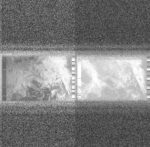

“How cold do you think it is outside?” I ask N as I hesitate between a light woollen or puffer jacket. “Now maybe it'll get cold. Until recently, with the sun it was okay,” he replies. I choose the black puffer jacket and we make a walk around the neighbourhood, appreciating the changing colours of dusk. We wander into a large Gemeindebau and weave through its ascending courtyards until, unexpectedly, exiting onto a familiar street. After three days of rain the sky is clear and air crisp. TD and GD left for Berlin this morning. Their spirits were not dampened by the wet weather. GD left an tunnel made of pillows, chairs and towels in our living room. Except for the walk, N and I spent the day in our pyjamas enjoying the afterglow of a weekend spent with friends.
2024-10-05 20:49:00
Prototype Automatic Ground Station 2
Vienna, Austria
Austria
NOAA-18
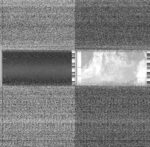

Giant Riesenbovist mushrooms, colourful Kurbis (pumpkins), and sweet Sturm made from fermenting grape must are the seasonal highlights this weekend's market. Sturm (also spelled Storm) is made from grapes picked in Austria and is named after its swirling, cloudy appearance. As well as the autumn storms that typically signal its arrival. This year Storm Boris flooded the Danube valley before the grape harvest was complete. Sturm is so volatile that bottles of it are sold without lids, so as to allow the gases to escape, and its alcohol content can vary from one to around ten percent. A fellow shopper asks the stall holder in earnest if there will be more Sturm next weekend. He responds it is likely, but stops short of offering a guarantee. By next weekend will the Sturm already be wine?
2024-10-05 18:34:00
Prototype Automatic Ground Station 10
London, UK
UK
NOAA-15

Today's night-time capture from Automatic Ground Station 10, currently in testing phase in London, looks like the 'ectoplasm' of 19th century clairvoyants, a current of veiled matter flowing over the continent.
2024-10-04 20:18:00
Prototype Automatic Ground Station 10
London, UK
UK
NOAA-19

The satellite image collected by Automatic Ground Station 10 is framed with the noise and obstructions of a London street at night, a full story of building behind and four story buildings across the street. Yet in the window of signal there is a glimmer of movement, a curve and swirl of cloud that, in the infrared channel, speaks of something moving far away. I am still in awe of the fact that this is possible with an antenna held out of a window.
2024-10-04 08:44:00
Prototype Automatic Ground Station 2
Vienna, Austria
Austria
NOAA-19
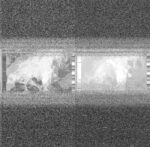
The temperature is hovering around 11 centigrade. Not quite the "baltic" but still bone chilling. It's wet and soggy. Yesterday, I learned the German word for "drizzle" is "Nieselregen". Today, Nieselregen has turned into "it's chucking it down" or depending on your mindset, "lovely weather for ducks!" My favourite word for especially grey wet weather is the Scottish, "dreich". To my ears, it sounds perfectly bleak.
2024-09-29 19:35:00
Prototype Automatic Ground Station 2
Vienna, Austria
Austria
NOAA-19
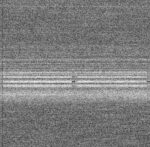
2024-10-01 10:09:00
Prototype Automatic Ground Station 2
Vienna, Austria
Austria
NOAA-18
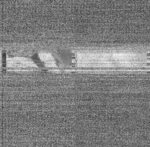
2024-10-02 06:44:00
Prototype Automatic Ground Station 2
Vienna, Austria
Austria
NOAA-15
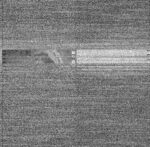


2024-10-03 20:28:00
Prototype Automatic Ground Station 10
London, UK
UK
NOAA-19



2024-10-03 17:41:00
Prototype Automatic Ground Station 2
Vienna, Austria
Austria
NOAA-15



New automatic ground station test location. Today is cold! Or perhaps I am just feeling the cold as I type this because I have to keep a small window open to run the ground station cable indoors. Brrr.
2024-09-30 17:19:00
Prototype Automatic Ground Station 2
Vienna, Austria
Austria
NOAA-15
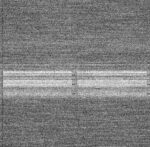
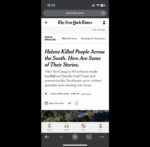
"Helene Has Killed More Than 90 People. Here Are Some Of Their Stories" read the New York Times headline. I tried to recall if I had heard of the serial killer. Woman serial killers make headlines as the embodiment of evil – women who choose to take life, rather than reproduce it. I realised that I knew Helene. She had been seen a week ago in the Gulf of Mexico, before making landfall over the Big Bend of Florida's Gulf Coast, churning out death and destruction in her wake. Helene was a hurricane. Her first name was Potential Tropical Cyclone Nine, given to her by United States meteorological service on 23 September 2024. A day later, as she grew in strength and her personhood took shape, they renamed her Helene. In writing about plants, Potawatomi botanist and author Robin Wall Kimmerer observes that “names are the way we humans build relationships, not only with each other but with the living world” (Kimmerer 2013). My home country, the UK, began naming storms in 2014, following the US which had started giving tropical storms female-only names in the 50s. It took decades of feminist fighting for the US meteorological service to assign storms names coded male too (Skilton 2018). Lately, I have been thinking about the power of naming and names to affect real-world relations. I read a British study that compared named and unnamed storms of similar strength, and found that there were fewer cars on the roads during the named storm. The study's authors reason that this is because of the media event that formed around the named storm, possibly saving lives (Charlton‐Perez 2019). In North American and European nomenclature, storms are named at their geographic origins. If a storm named by the US meteorological service crosses the Atlantic and reaches the UK, it will retain its American name. What if, I wonder, we were to reference a different origin? For example, social, historical or political? In ‘Call Them by Their True Names: American Crises (and Essays)’, Rebecca Solnit argues that to name is to “diagnose” and so to transform our ability to speak about a subject, even articulate our relations to it (Solnit 2018). What if, rather than naming storms after each other, we traced their social origins? One outcome could be that unusually large storms, such as Helene, are named after the extractive industries that make their existence statistically so much more likely. If Hurricane Helene had been introduced to us as Hurricane ExxonMobile or Storm Shell how might our relations to such 'extreme weather' events be changed? To name storms after Big Oil feels as offensive as it is flattening. Yet current naming practices fall short too. It would be apt if, in media coverage, mega storms sounded less 'woman serial killer' and more 'corporate killer' or 'colonial menace'. Could such an expressive exercise help us grasp our role as "weathermakers" (Neimanis 2014), to diagnose the social-political origins of today's weather, and so articulate our relations, our knotty response-abilities to it?
2024-09-21 19:34:00
Prototype Automatic Ground Station 2
Vienna, Austria
Austria
NOAA-19
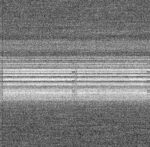
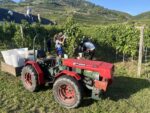
I stretch the blue plastic gloves over my hands. Harvesting grapes reminds me of Marina Abramovic's performance "Counting the Rice" in which participants count and separate grains of rice for a minimum of six hours. At first, it's a novelty to be outside cutting, sorting, and plopping the grapes into the bucket at my feet. Then the repetition becomes annoying. I even feel a little anger. But I have committed to be here so cannot stop and by the morning break of coffee, Käsebrot and gherkins, I have found peace. My experience is more solitary than that of the other volunteers whose German language chatter I struggle to follow, espcially when it slips into Viennese dialect. The grapes are small weather globes (Wetterkugeln). We remove the brown, mushy ones smelling of vinegar that did not survive Storm Boris's record rains, dumped on the Wachau region only a week ago. We leave the purple-brown ones that smell sweet and have a fuzz of 'good mould' (Edelschimmel). Their sugars index a summer of sun and heat-stress – Europe's warmest summer since records began (Copernicus 2024). Lastly, we pick out the grapes with small black bruises left by hail early in the growing season. These are mostly on the South-facing vines that I am picking. They will not be sweet, the winemaker tells us.
2024-09-17 08:54:00
Prototype Automatic Ground Station 2
Vienna, Austria
Austria
NOAA-19
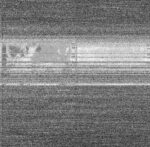
2024-09-16 09:06:00
Prototype Automatic Ground Station 2
Berlin, Germany
Germany
NOAA-19
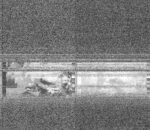
2024-09-09 06:40:00
Prototype Automatic Ground Station 2
Vienna, Austria
Austria
NOAA-15
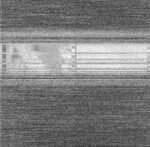

Heavy rain and cold. In the Vienna woods, mist hangs dense and low between the trees. Back in the flat, on the phone to my mum, I noticed a red balloon suspended above the rooftops. It appears to be tethered by a long string, implausibly stretching the length of the block before disappearing behind a roof. The string is long and weighs down the balloon, which despite its size must have had significant buoyancy. It looks not much larger than a child’s party balloon, but perhaps this was an illusion of perspective. I wondered if it is a weather balloon come back to Earth, however there is no visible payload. Perhaps it is a child's ambitious experiment?
2024-09-08 09:58:00
Prototype Automatic Ground Station 2
Vienna, Austria
Austria
NOAA-18
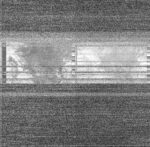
Tomorrow is Schulstartwoche (the week Austria's public schools reopen after the summer break). On Saturday, the man who I buy apples from at the market, tells me that he remembers the Schulstartwoche being cold and rainy. Today, it was so warm outside we closed the windows to keep the flat cool, only to give into the humidity and reopen them. Weather forecasts suggests that, inline with memories of Schulstartwoche, Monday will being heavy rains, causing the temperature to drop to a chilly 19C.
2024-09-07 10:11:00
Prototype Automatic Ground Station 2
Vienna, Austria
Austria
NOAA-18


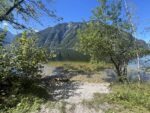
V and I, adamant that it was the last day of summer, caught the train in the opposite direction from home to Hallstattsee. The lake was blissful. Its steep sides and deep waters have kept it cool, even after the hottest of summers. This we learned this from an older couple and their two dogs, who joined us on the narrow pebble beach. I took my first dip since the operation. The cold water held me, drawing me down. Despite my caution and an unfamiliar tugging in my abdomen, I dipped under again and again. The feeling was one of release. I extended my body, unfolding and stretching it in ways that I have not since the beginning of August. The lake’s water was cloudy and its stoney bottom, quickly dropped away. With my film camera, I photographed V floating in a starfish position, her peach colour swim suit beautifully offset by the dark greens of the lake and mountain side. In that moment, I think that we both felt a supreme confidence and peace in our bodies.
2024-09-06 19:19:00
Prototype Automatic Ground Station 2
Vienna, Austria
Austria
NOAA-19
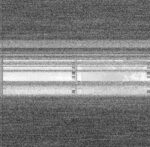
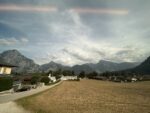
It is one month since the operation and being engulfed by the 'closest weather' of my body. Last night I dreamt that I was standing in a brackish pool near the coast, bare foot with a fine mud between my toes. N and S are nearby. The coastline could be West Scotland. N asks if I’ve stood in the pool before. I know that I have, but for reasons I cannot explain, I lie and say that I haven't. Stripy leaches appear from the mud and attach their mouths to my feet. In horror, I freeze, unable to move for fear of stirring up more leaches. N reaches over and helps me jump out of the pool. I wake distressed and go to the next room where N is sleeping. I fall asleep again, only to dream that I am at a surreal hospital check-up.
2024-09-05 19:31:00
Prototype Automatic Ground Station 2
Vienna, Austria
Austria
NOAA-19


Despite the daytime heat, the nights are cooler. Only the mosquitoes continue to be a pest. There must have been a mass hatching event as there are so many, espcially in the studio. I think that I am now able to tell part the larger black and white striped ‘common’ mosquito from the smaller brown ‘tiger’ mosquito.
With some encouragement, the last of my five scabs 'fell' came off. I pulled at the plastic surgical threads still protruding my my belly button but they wouldn’t budge and later my tummy ached. Once all the wounds are seal, I can swim again. These days, I can mostly move without pain but I am still cautious about twisting or turning too suddenly. I wonder if the doctor will find adhesions when I have my check-up in two weeks. The thin red scars look small on the surface but feel bulbous beneath the skin. In the evening, S from the hospital, WhatsApp'ed me to say that her endometriosis had already returned. The news is disturbing. She already has a new cyst! So, soon? “No one could have known,” she writes.
2024-09-03 20:50:00
Prototype Automatic Ground Station 2
Vienna, Austria
Austria
NOAA-18
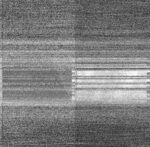
Sunny, but not too hot. A manageable heat to get work done in.
2024-09-02 21:03:00
Prototype Automatic Ground Station 2
Vienna, Austria
Austria
NOAA-19
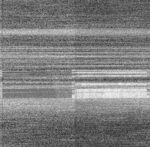
There are so many mosquitos in the studio! They bite you even when you are wearing buy spray.
2024-08-29 19:17:00
Prototype Automatic Ground Station 2
Vienna, Austria
Austria
NOAA-15
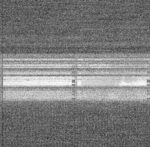
Satellite not known.
2024-08-28 19:30:00
Prototype Automatic Ground Station 2
Vienna, Austria
Austria
NOAA-15
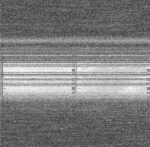
Satellite not known.
2024-08-27 19:42:00
Prototype Automatic Ground Station 2
Vienna, Austria
Austria
NOAA-15
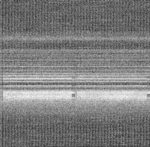
Satellite not known.
2024-08-26 20:50:00
Prototype Automatic Ground Station 2
Vienna, Austria
Austria
NOAA-15
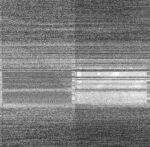
Satellite not known.
2024-08-25 08:37:00
Prototype Automatic Ground Station 2
Vienna, Austria
Austria
NOAA-15

Satellite not known.
2024-08-24 08:49:00
Prototype Automatic Ground Station 2
Vienna, Austria
Austria
NOAA-15
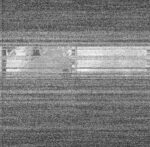
Satellite not known.
2024-08-23 09:58:00
Prototype Automatic Ground Station 2
Vienna, Austria
Austria
NOAA-15
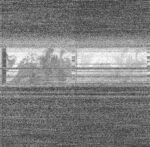
Satellite not known.
2024-08-22 17:29:00
Prototype Automatic Ground Station Wien
Vienna, Austria
Austria
NOAA-15
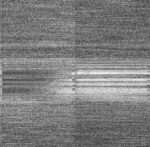
Satellite not known.
2024-08-20 19:28:00
Prototype Automatic Ground Station 2
Vienna, Austria
Austria
NOAA-15
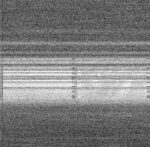
Satellite not known.
2024-08-19 20:38:00
Prototype Automatic Ground Station 2
Vienna, Austria
Austria
NOAA-15
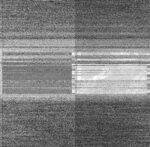
Satellite not known.
2024-08-18 20:50:00
Prototype Automatic Ground Station 2
Vienna, Austria
Austria
NOAA-15
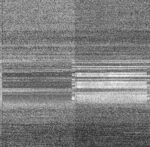
Satellite not known.
2024-08-17 06:35:00
Prototype Automatic Ground Station 2
Vienna, Austria
Austria
NOAA-15

Satellite not known.
2024-08-16 08:48:00
Prototype Automatic Ground Station 2
Vienna, Austria
Austria
NOAA-15
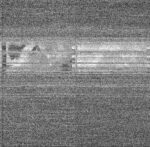
Satellite not known.
2024-08-14 17:35:00
Prototype Automatic Ground Station 2
Vienna, Austria
Austria
NOAA-15
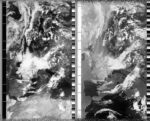
Satellite not known.
2024-08-14 10:11:00
Prototype Automatic Ground Station 2
Vienna, Austria
Austria
NOAA-15
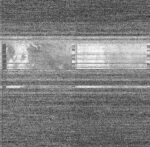
Satellite not known.
2024-08-13 06:38:00
Prototype Automatic Ground Station 2
Vienna, Austria
Austria
NOAA-15
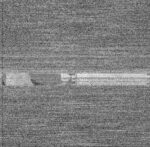
Satellite not known.
2024-08-12 19:27:00
Prototype Automatic Ground Station 2
Vienna, Austria
Austria
NOAA-15

Satellite not known.
2024-08-11 19:39:00
Prototype Automatic Ground Station 2
Vienna, Austria
Austria
NOAA-15
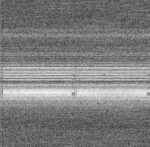
Satellite not known.
2024-08-10 20:50:00
Prototype Automatic Ground Station 2
Vienna, Austria
Austria
NOAA-15

Satellite not known.
2024-08-09 21:03:00
Prototype Automatic Ground Station 2
Vienna, Austria
Austria
NOAA-15

Today, I came home from the hospital. The weather was fair and I wore a tee white printed shirt and black slacks, loose at the waist. Satellite not known.
2024-08-06 19:00:00
Prototype Automatic Ground Station 2
Vienna, Austria
Austria
NOAA-19

There was no satellite recording today because N was still troubleshooting the prototype ground station, so a bending of time, this recording is from tomorrow, the day of my operation. As I write this, I am waiting for the 'big day'. It’s raining, I can hear but not see the water cascade onto the hard facade the 1970s hospital building as the long curtains in my room are closed. Possibly for privacy or, I speculate, because the my roommate left for the operating theatre this morning when it was still dark. Either way the yellow glow of the artificial lights makes me groggy before anyone has even laid a finger on my body. A nurse searches for the word in English, “I will tie the bandage tight so as to stop a …. hema-toma." "Your vein opened too wide," she explains. "God", I say, "that sounds bad!" She reassures me, then sticks a cannula above my wrist where there seems too little flesh between skin and bone to cushion its intrusion. It stings. I watch my blood back flow into the two plastic tiny tubes. “I think that I’m going to throw up,” I say as a nurse announces lunch. I am given a cardboard bowl to throw up in and a tray with a clear soup, asparagus, rice, lettuce leaves, and a yogurt. I skip the yogurt and throwing up, and decide that I need sunlight. Opening the long curtains brings into view a drab but solid looking Altbau opposite. The rest of the day passes with time suspended between boredom, anxiety and grief, the sources of which I guess but chose not to give shape to with words.
Satellite not known.